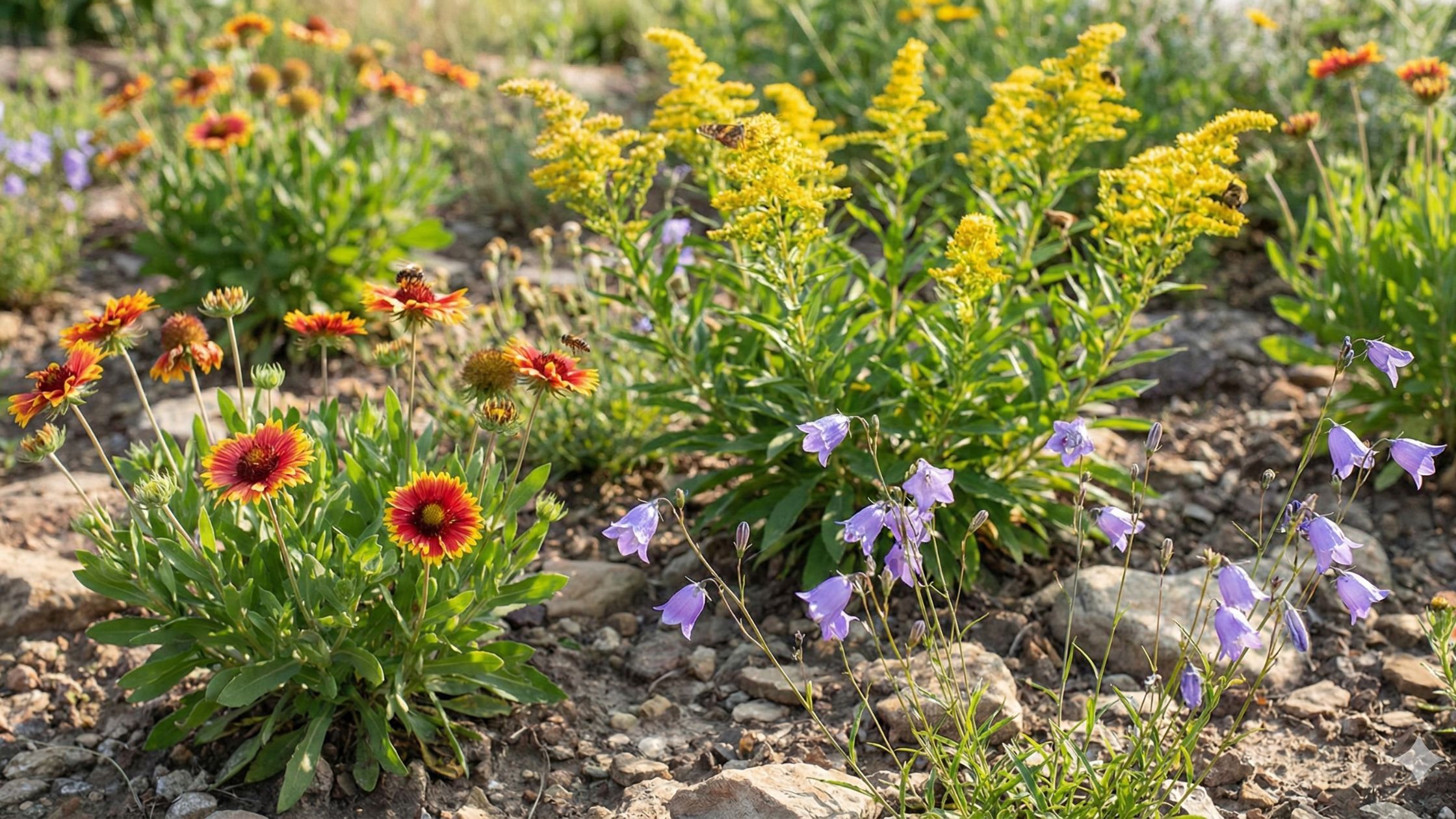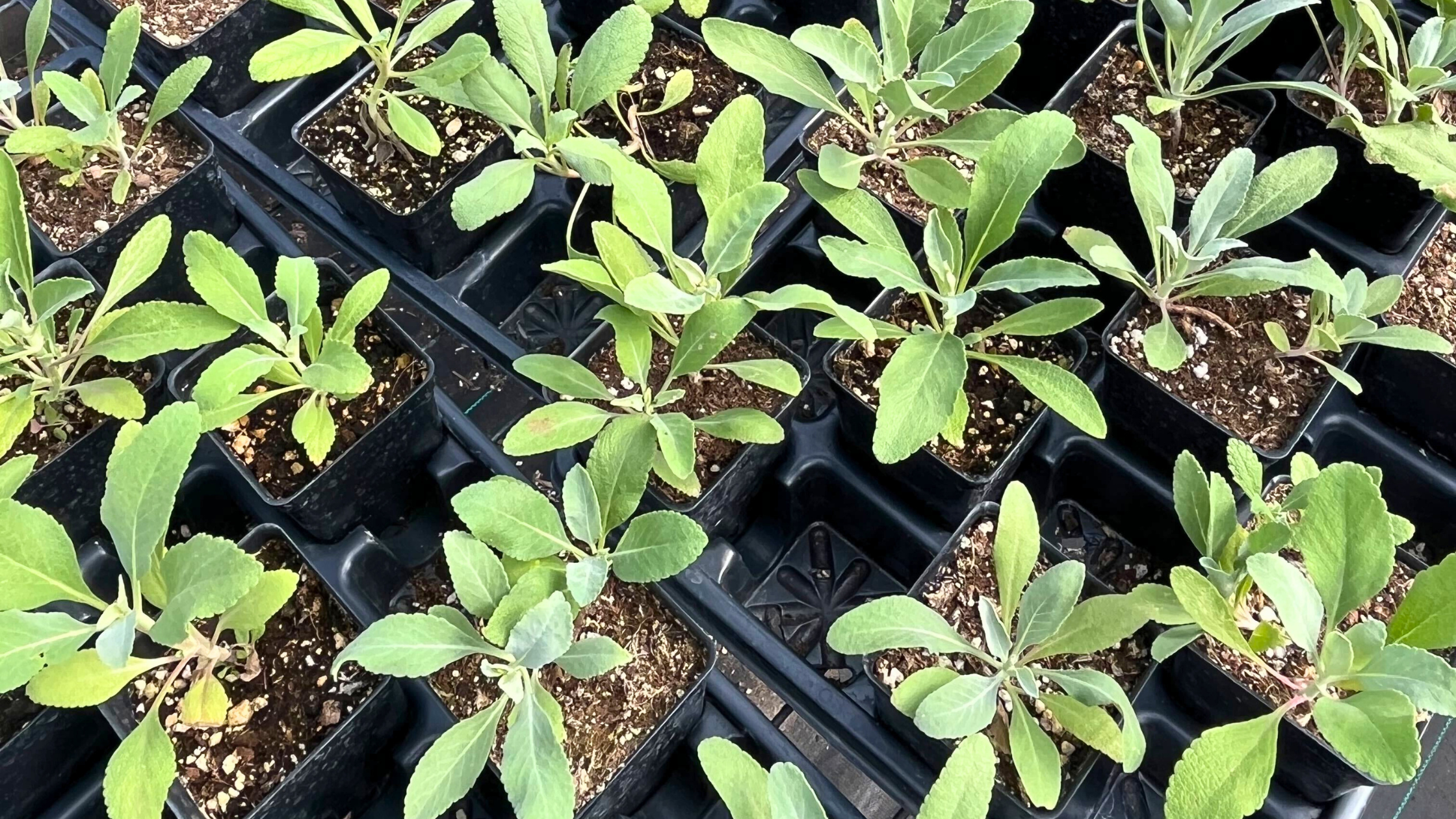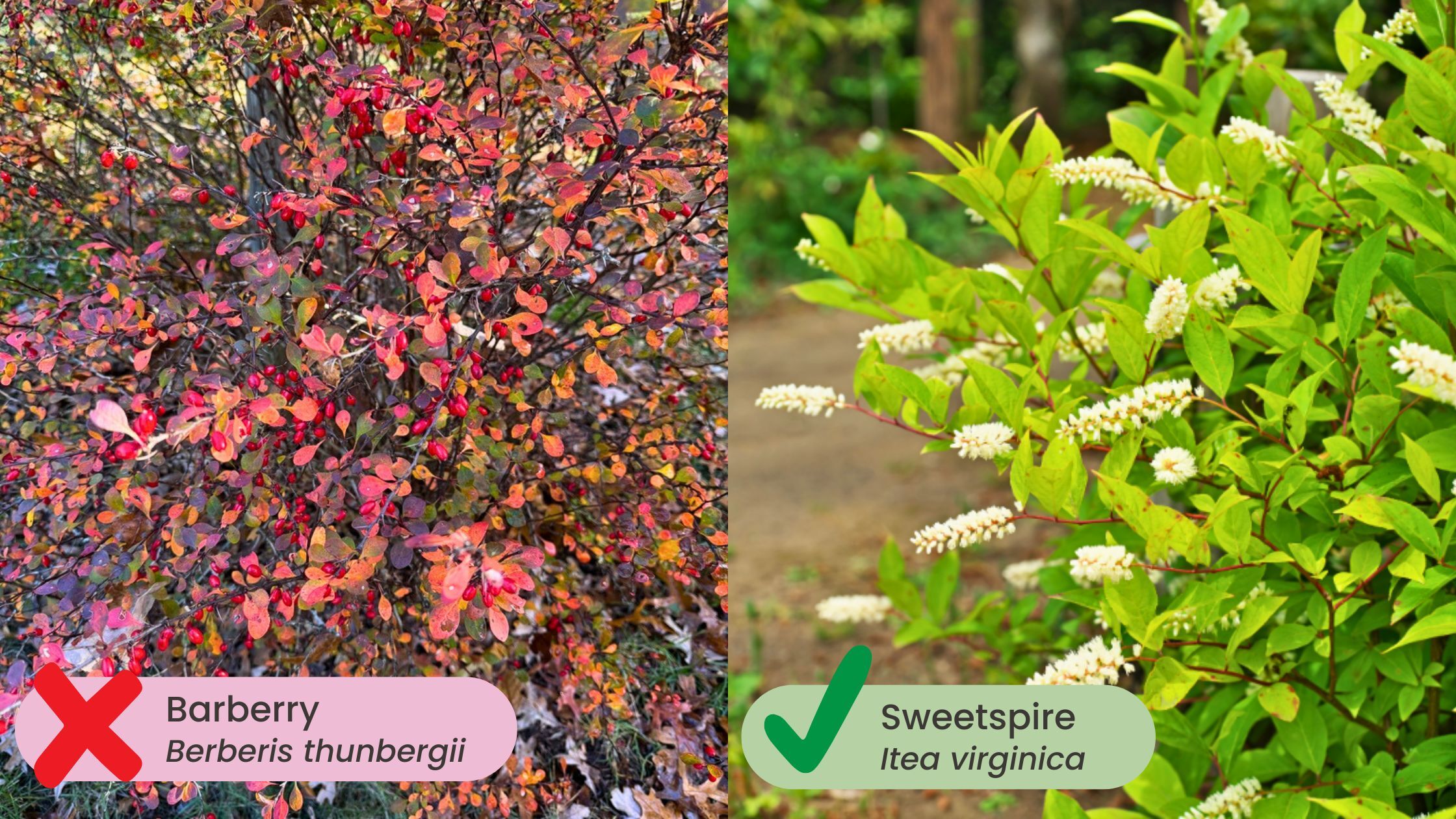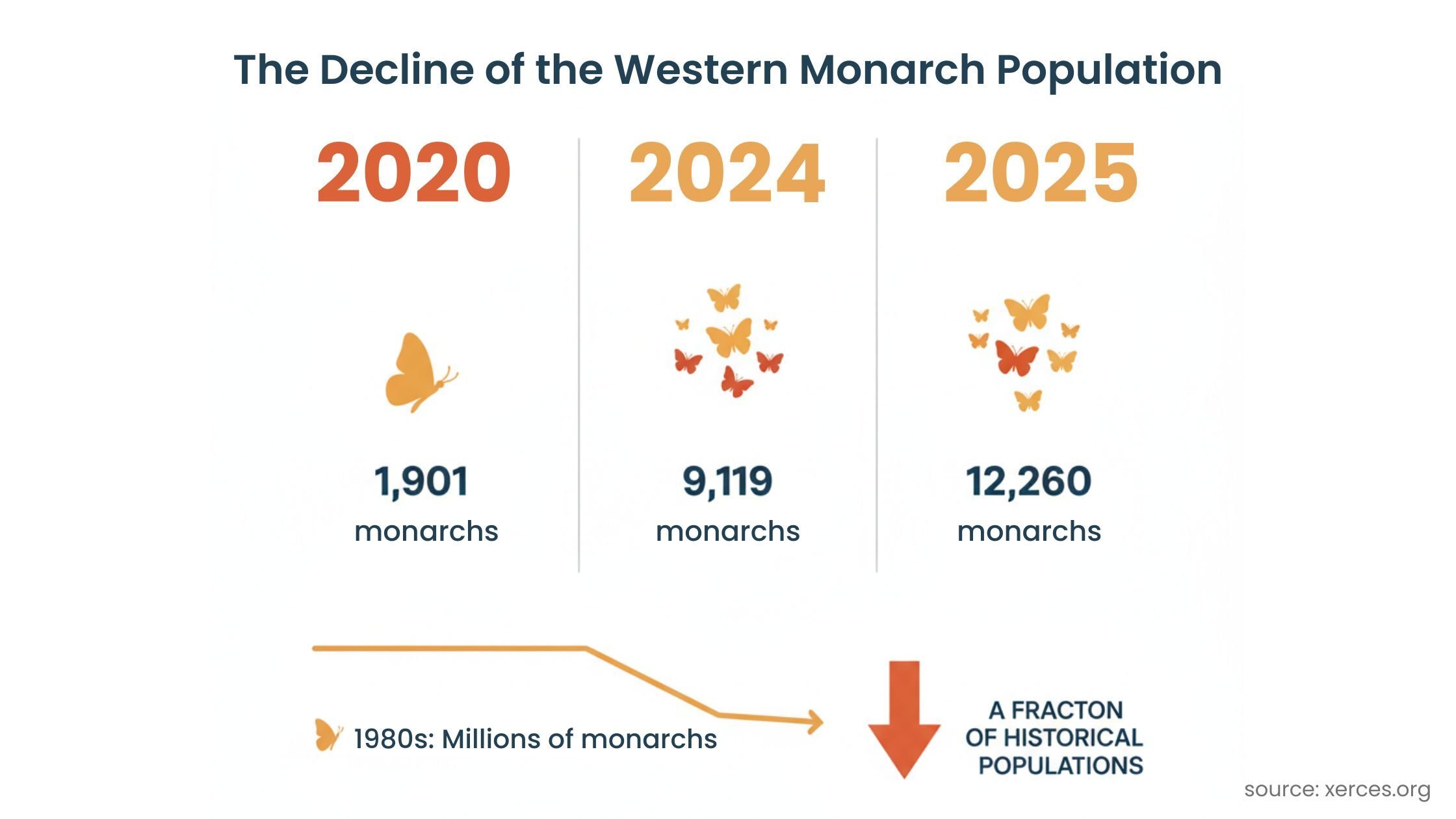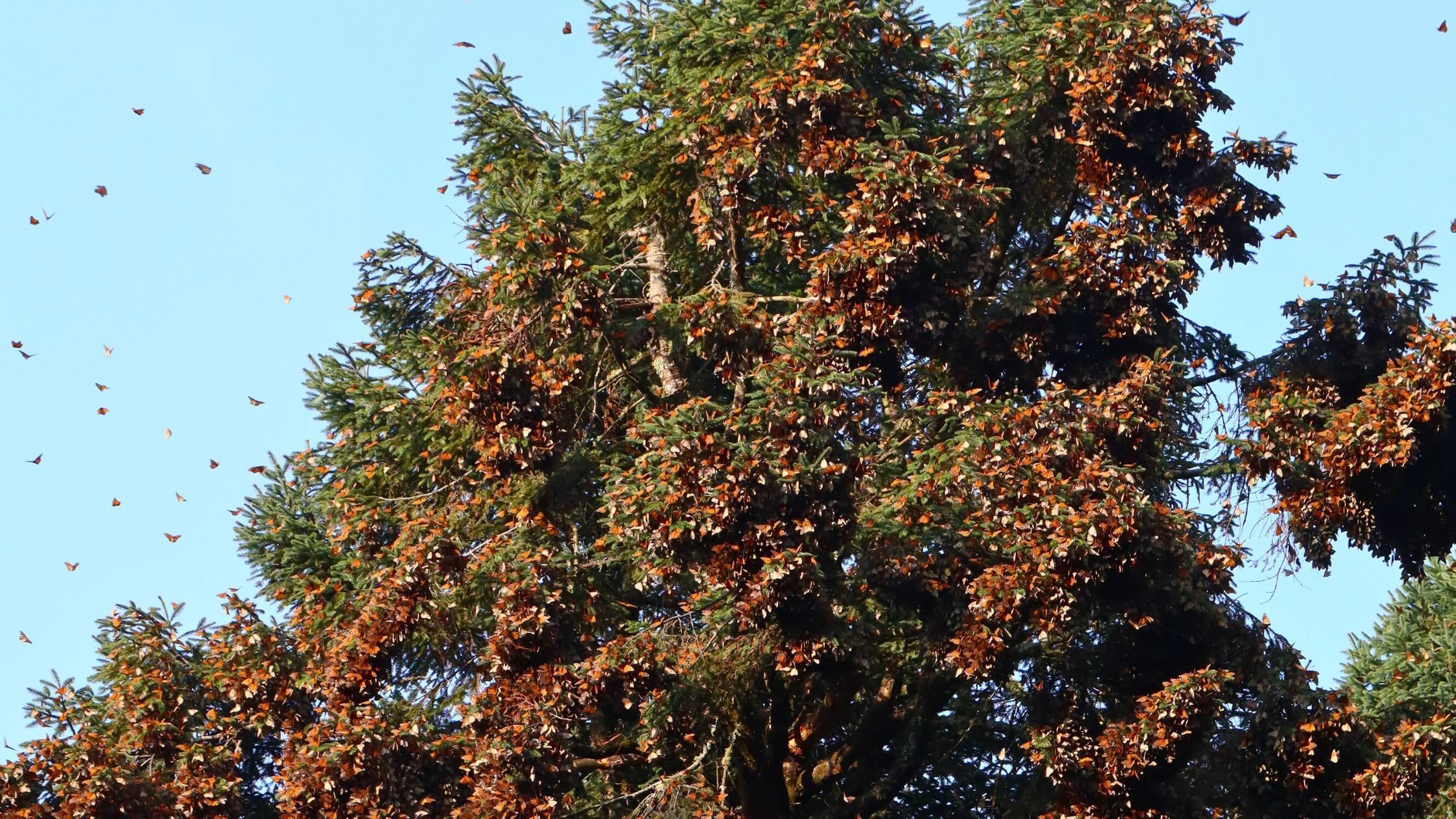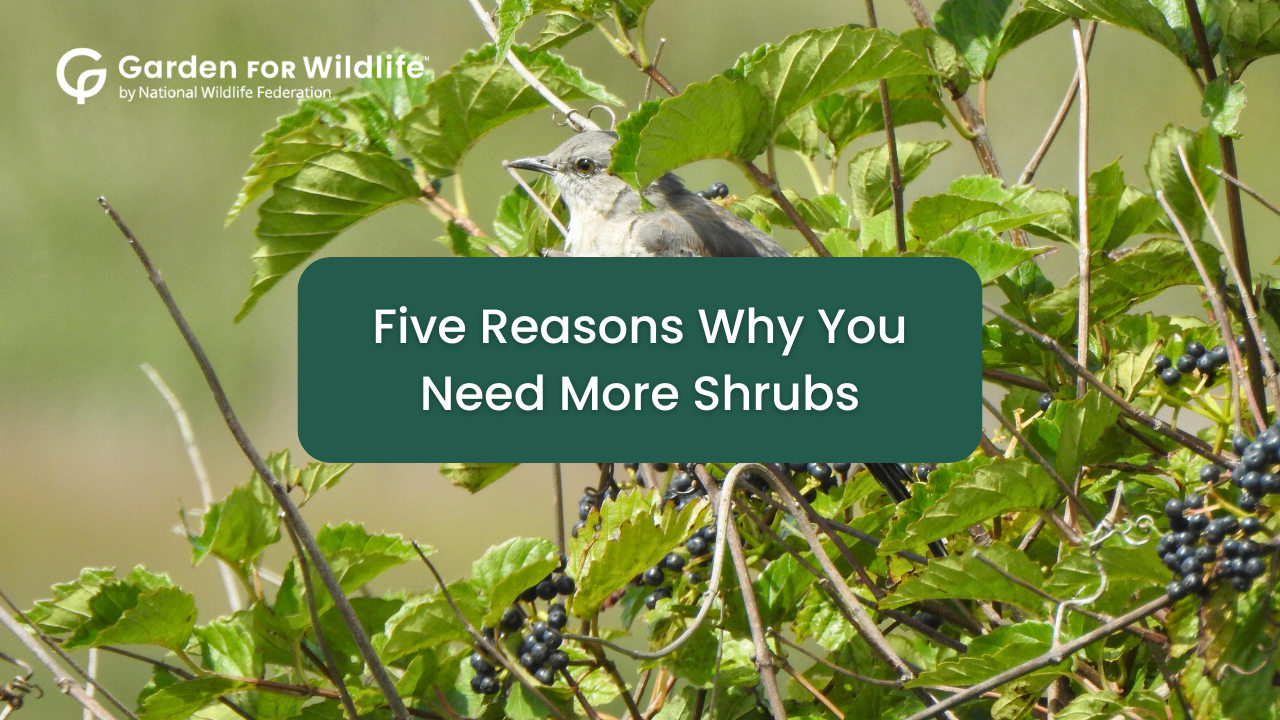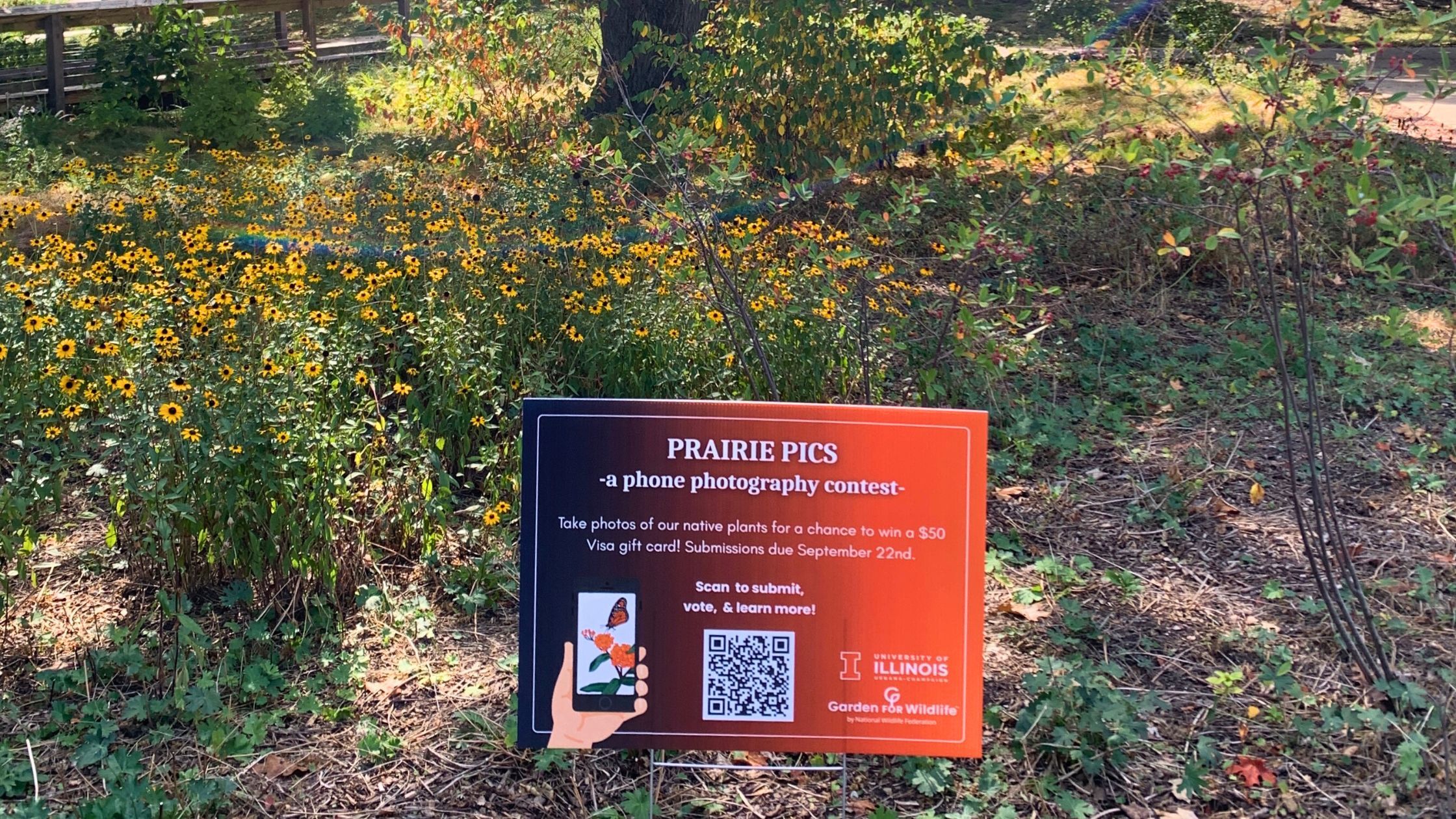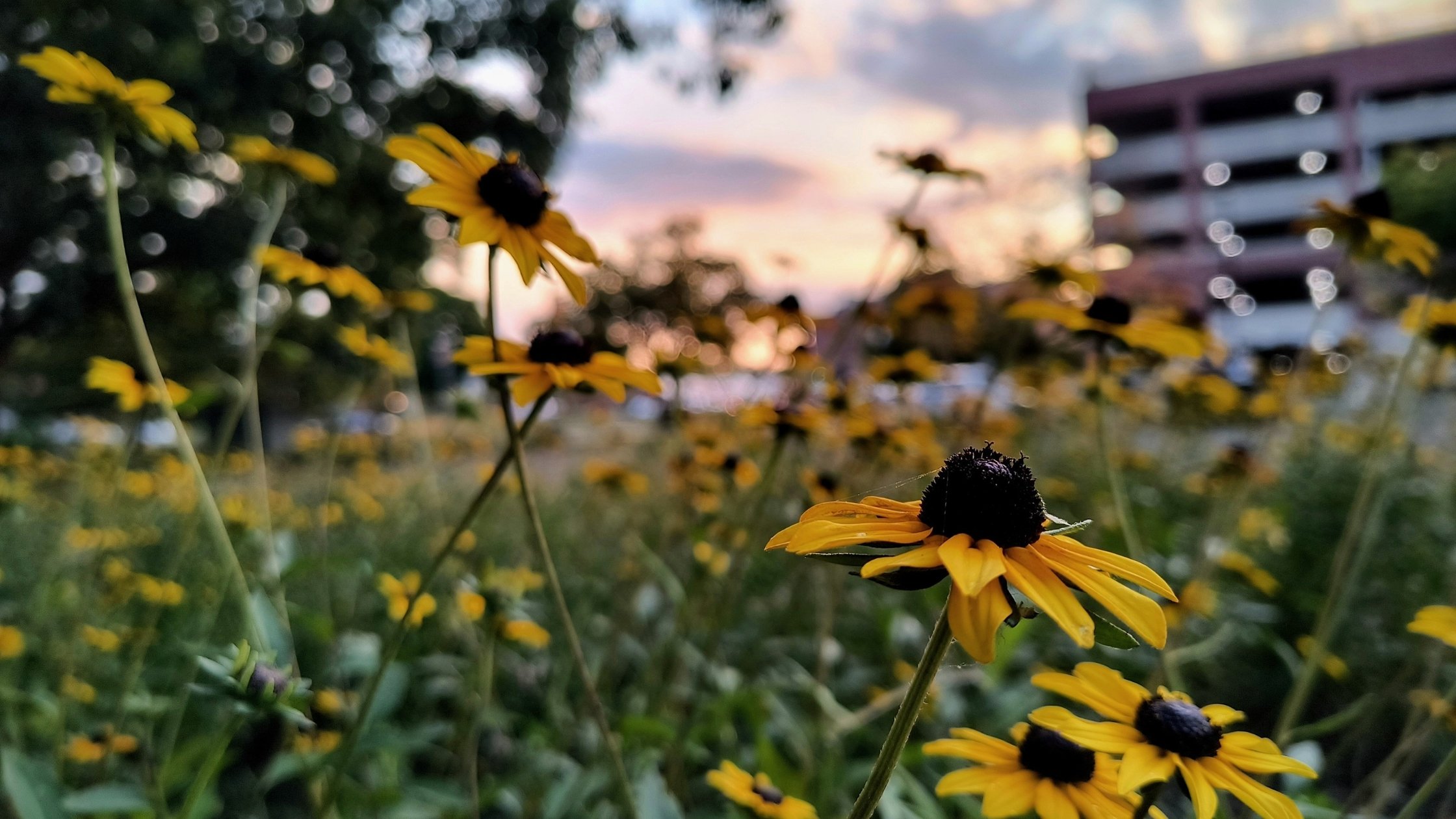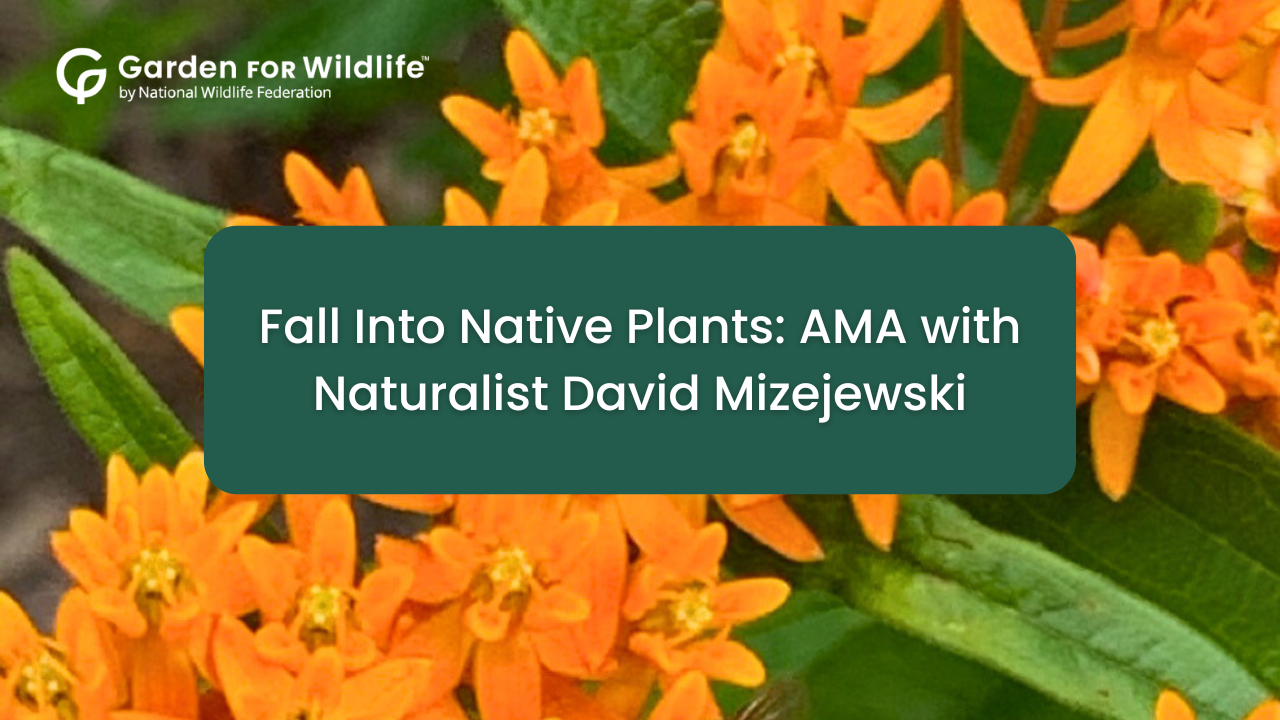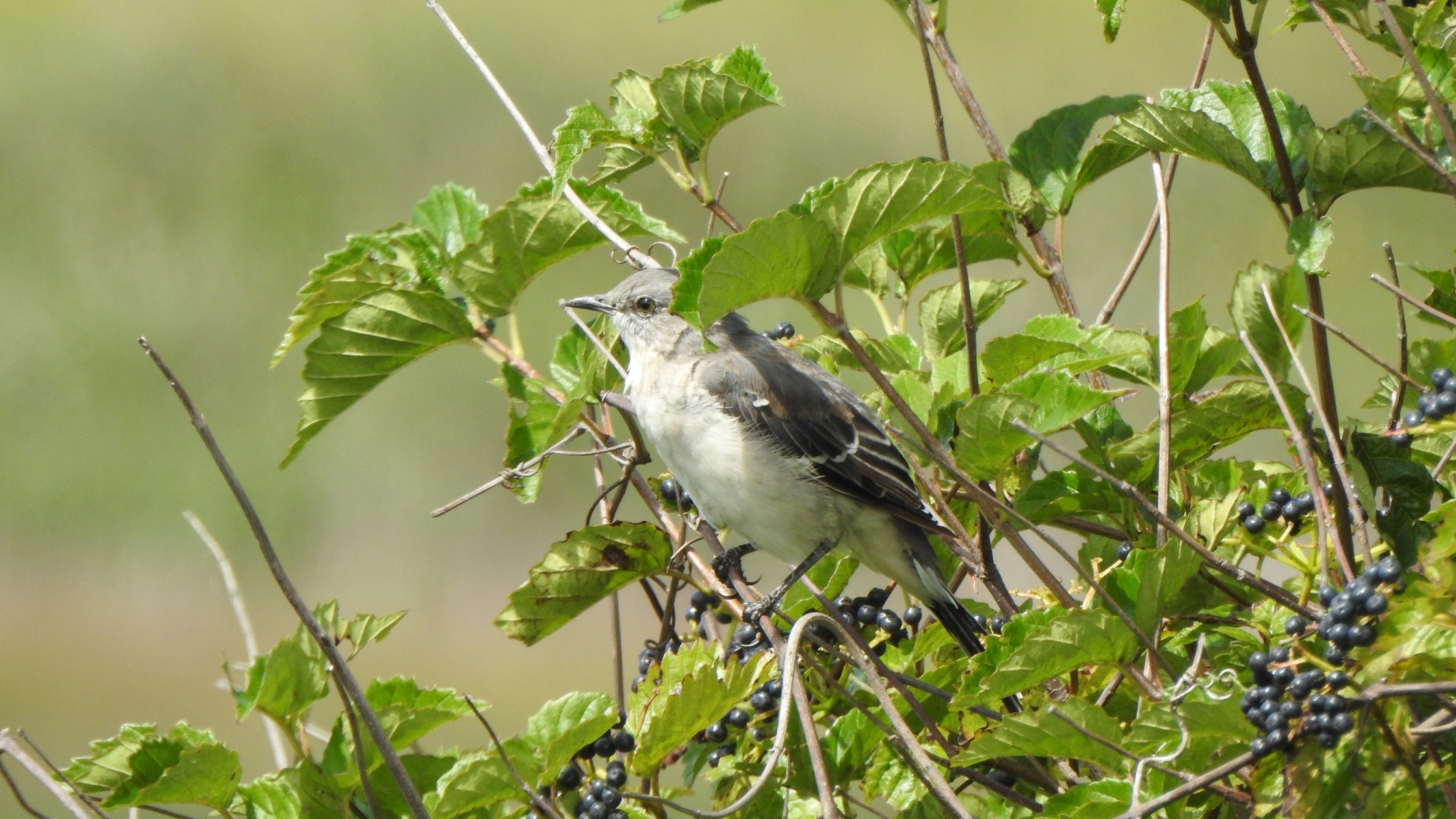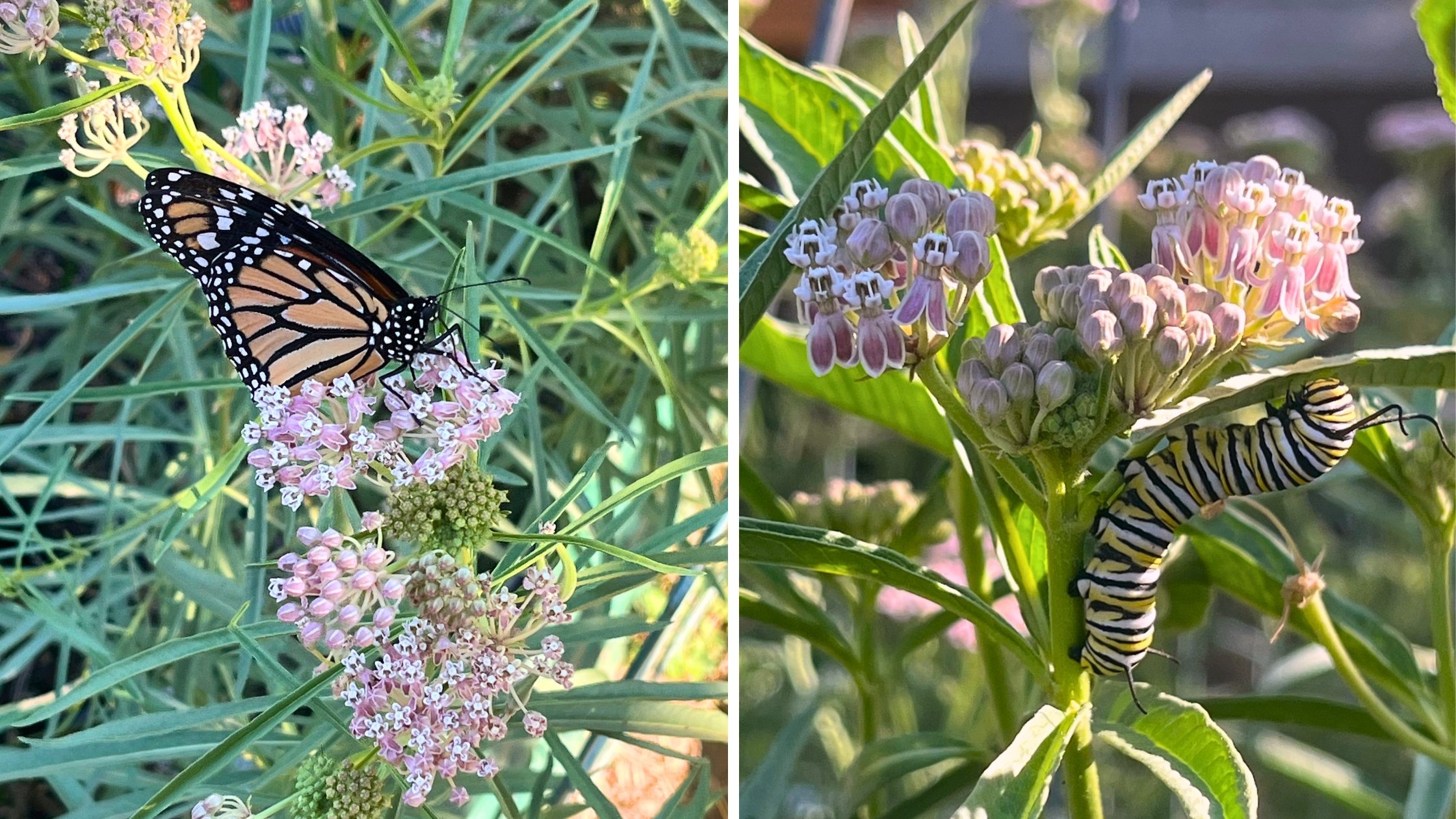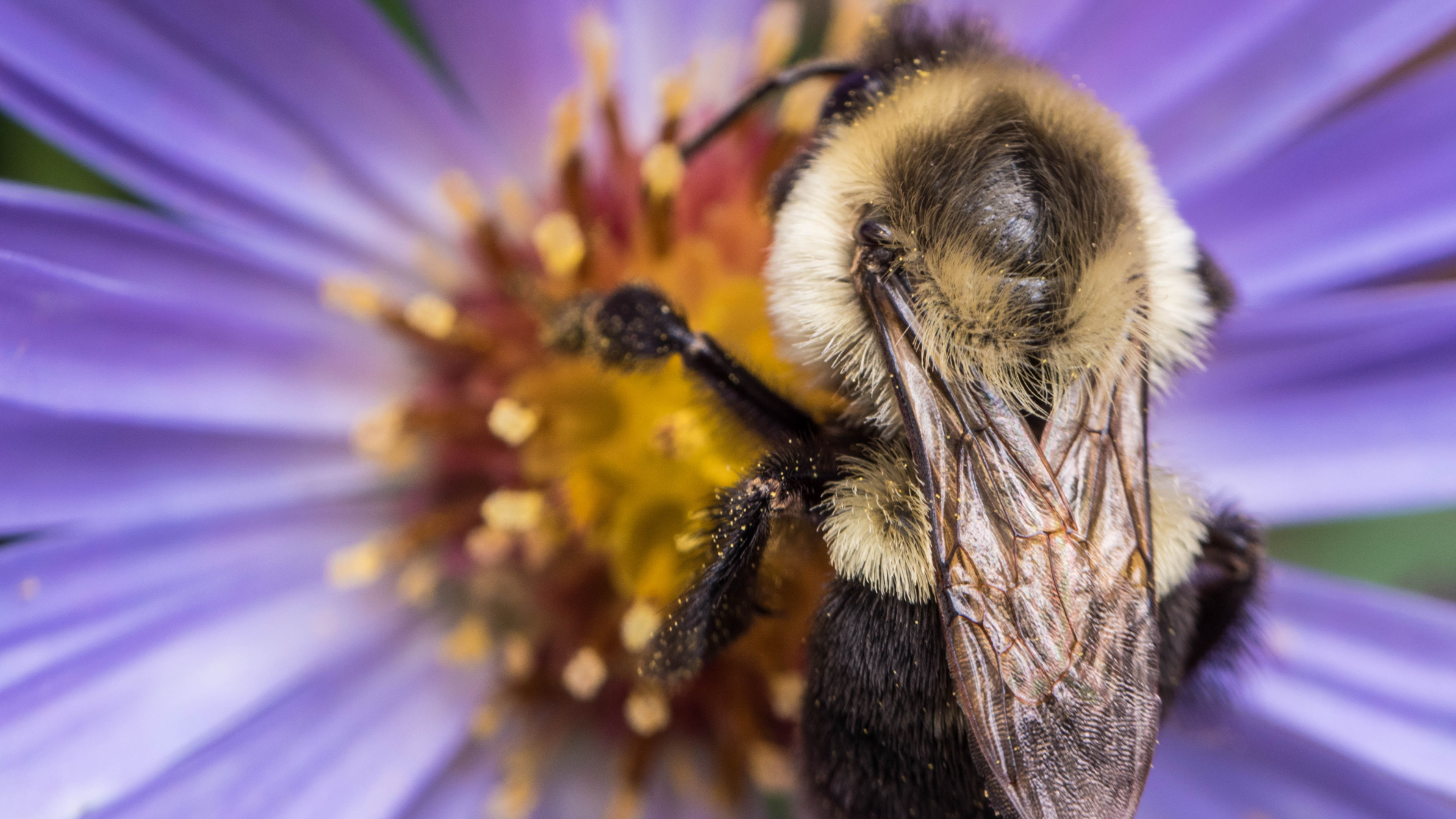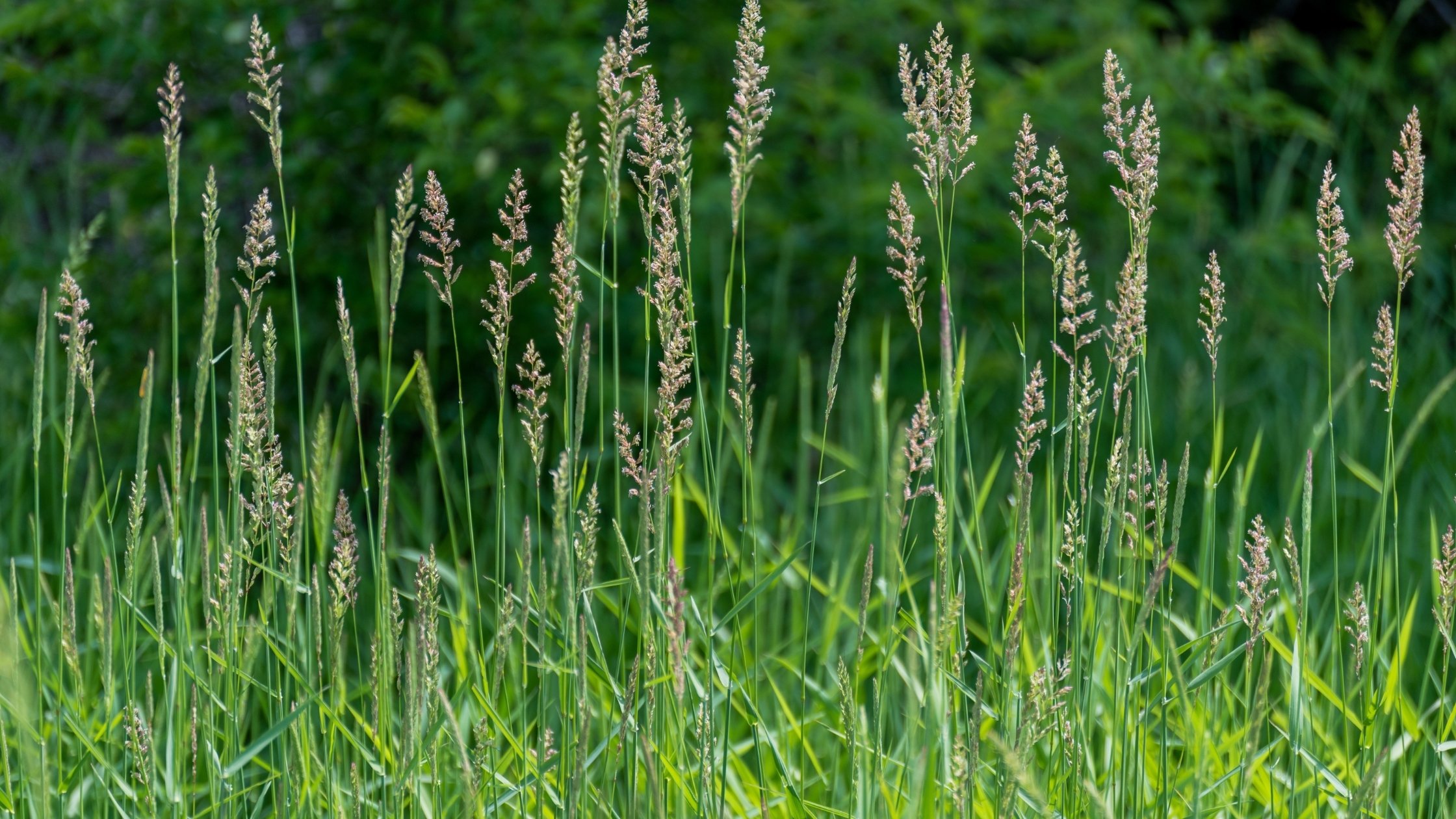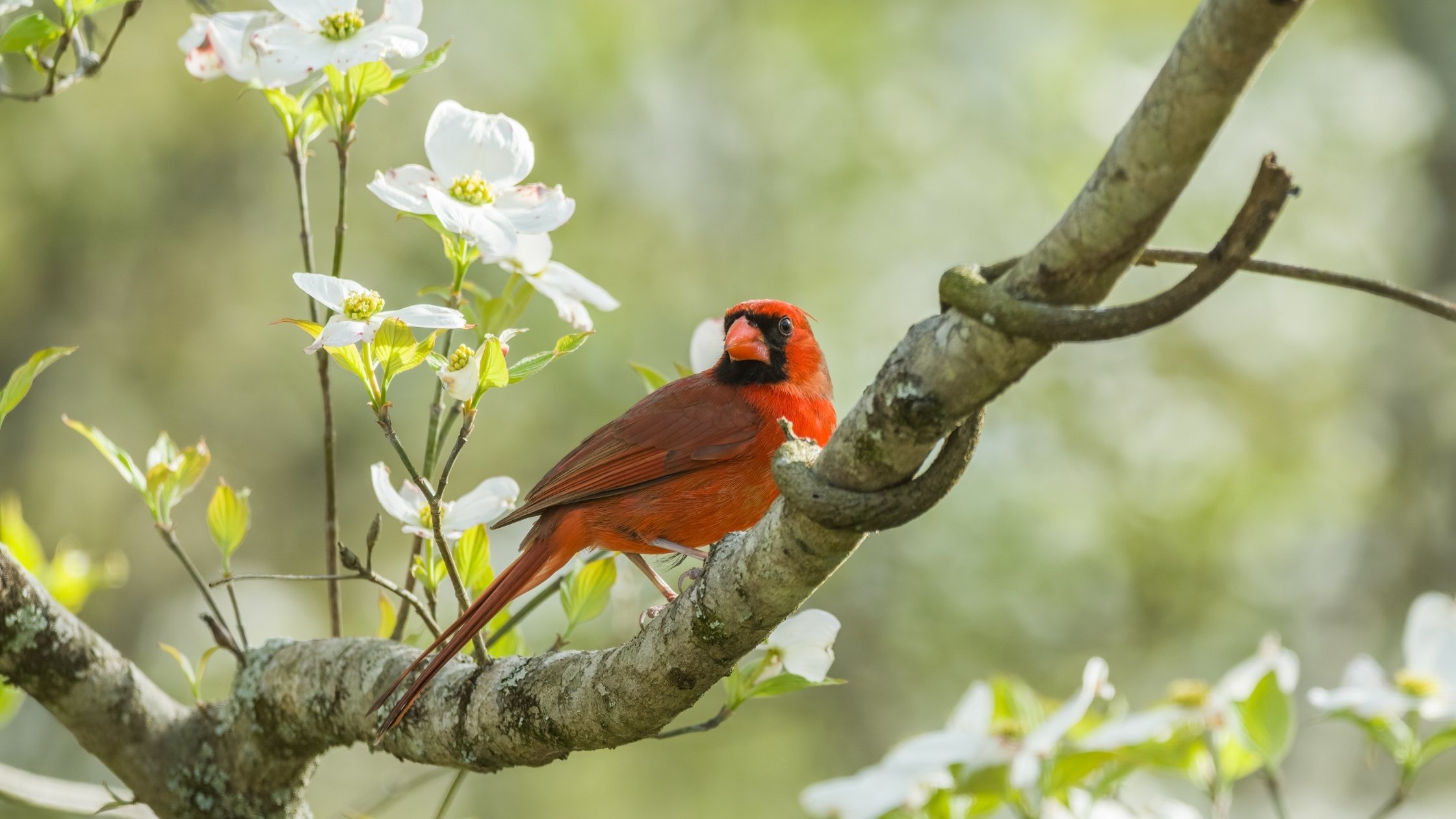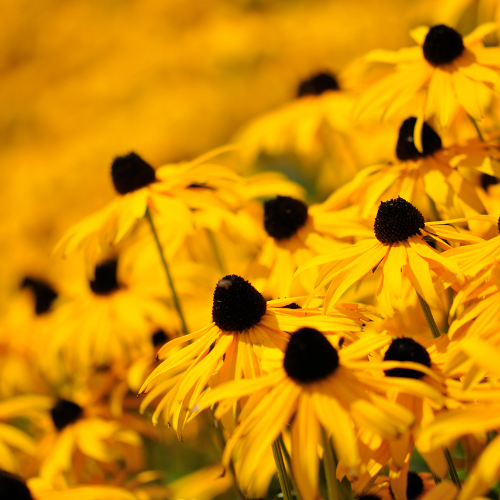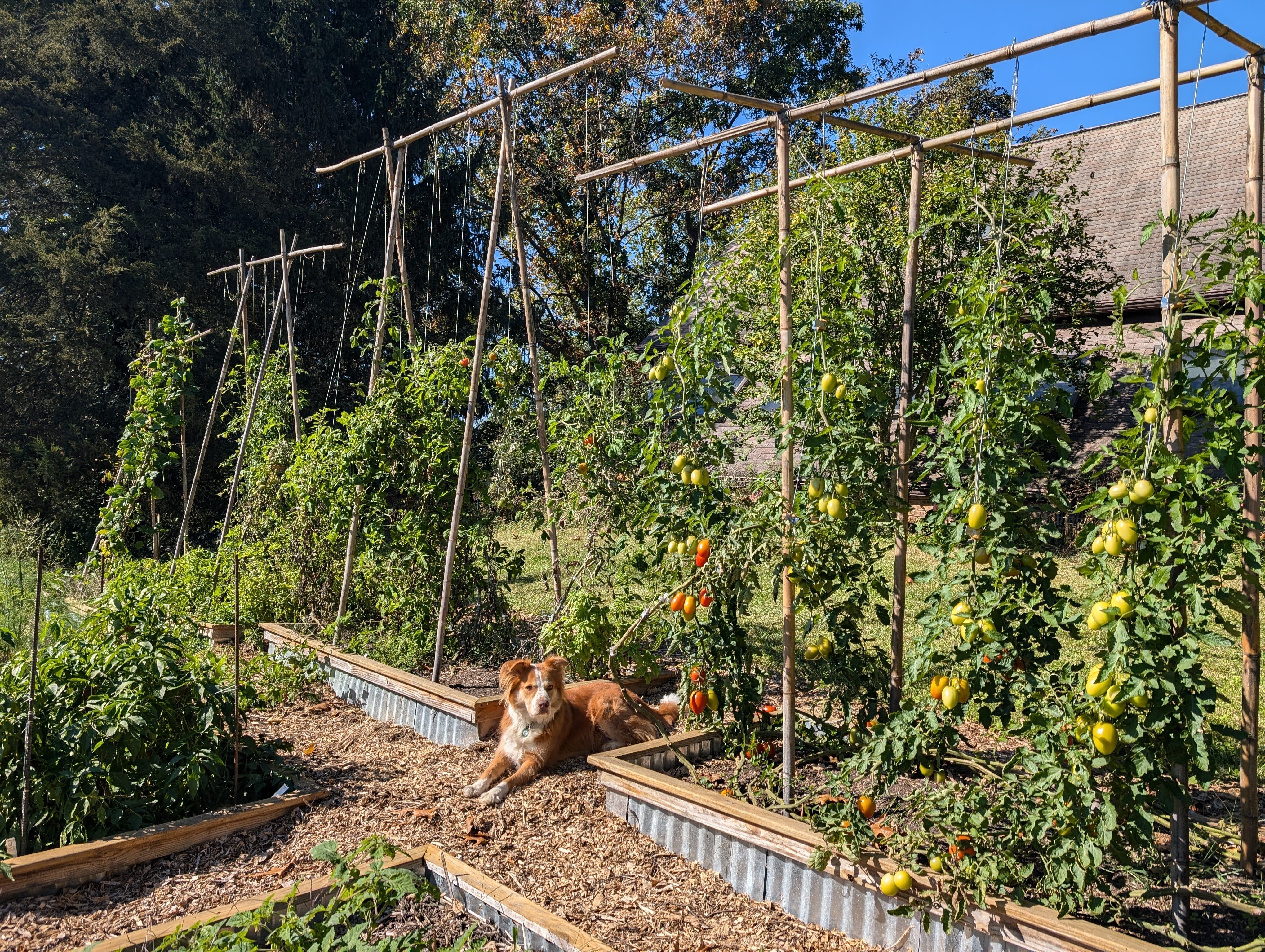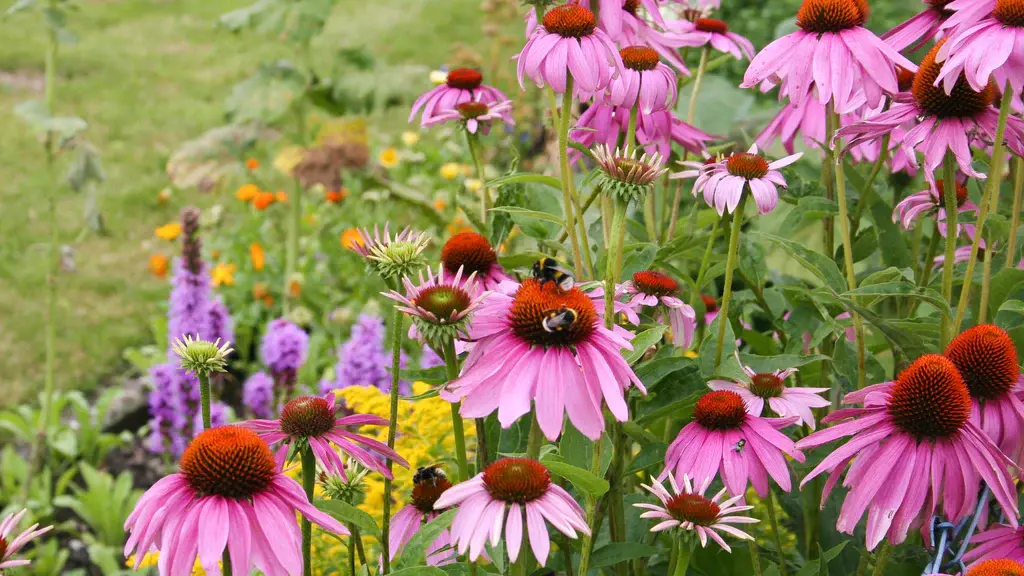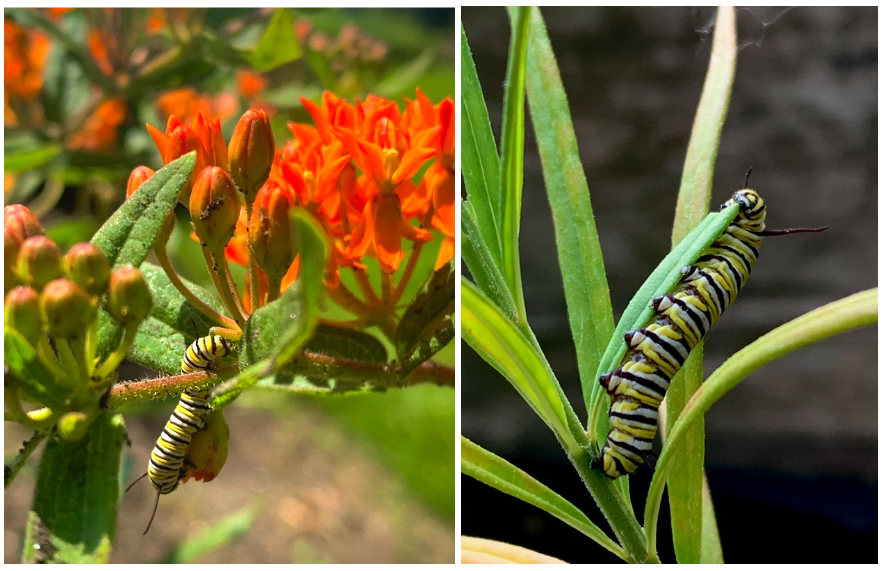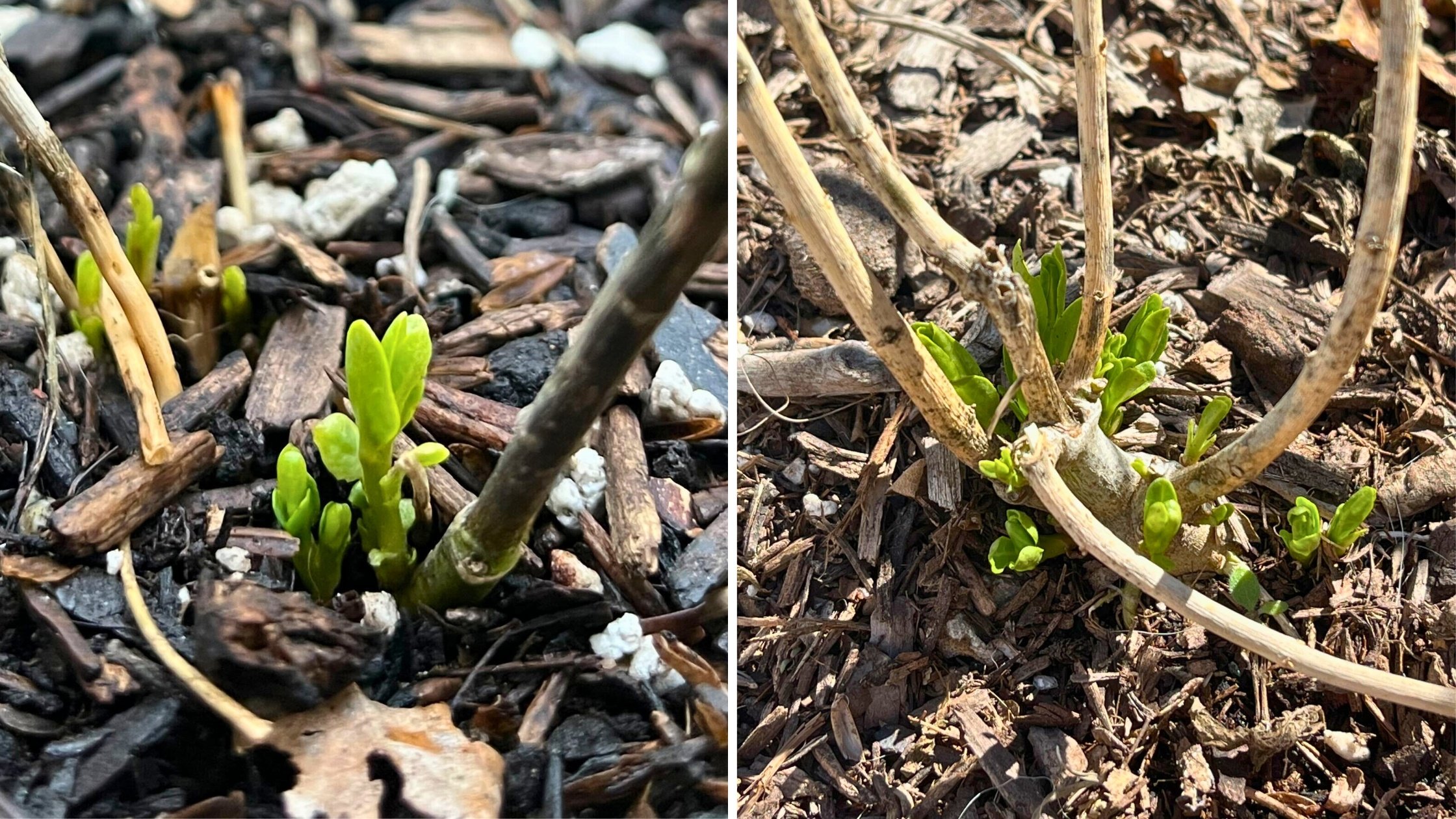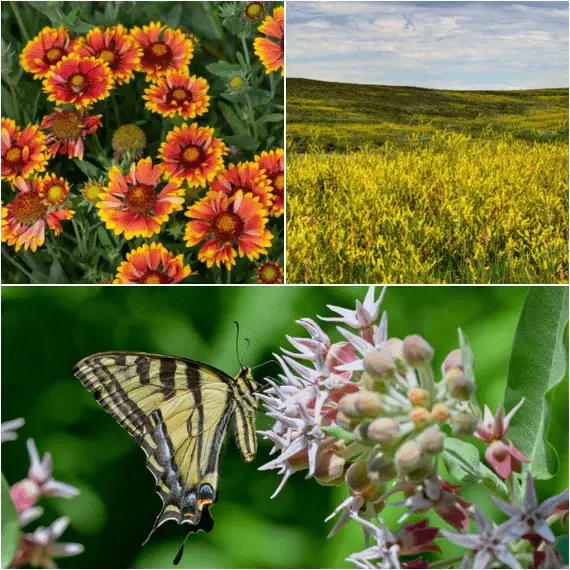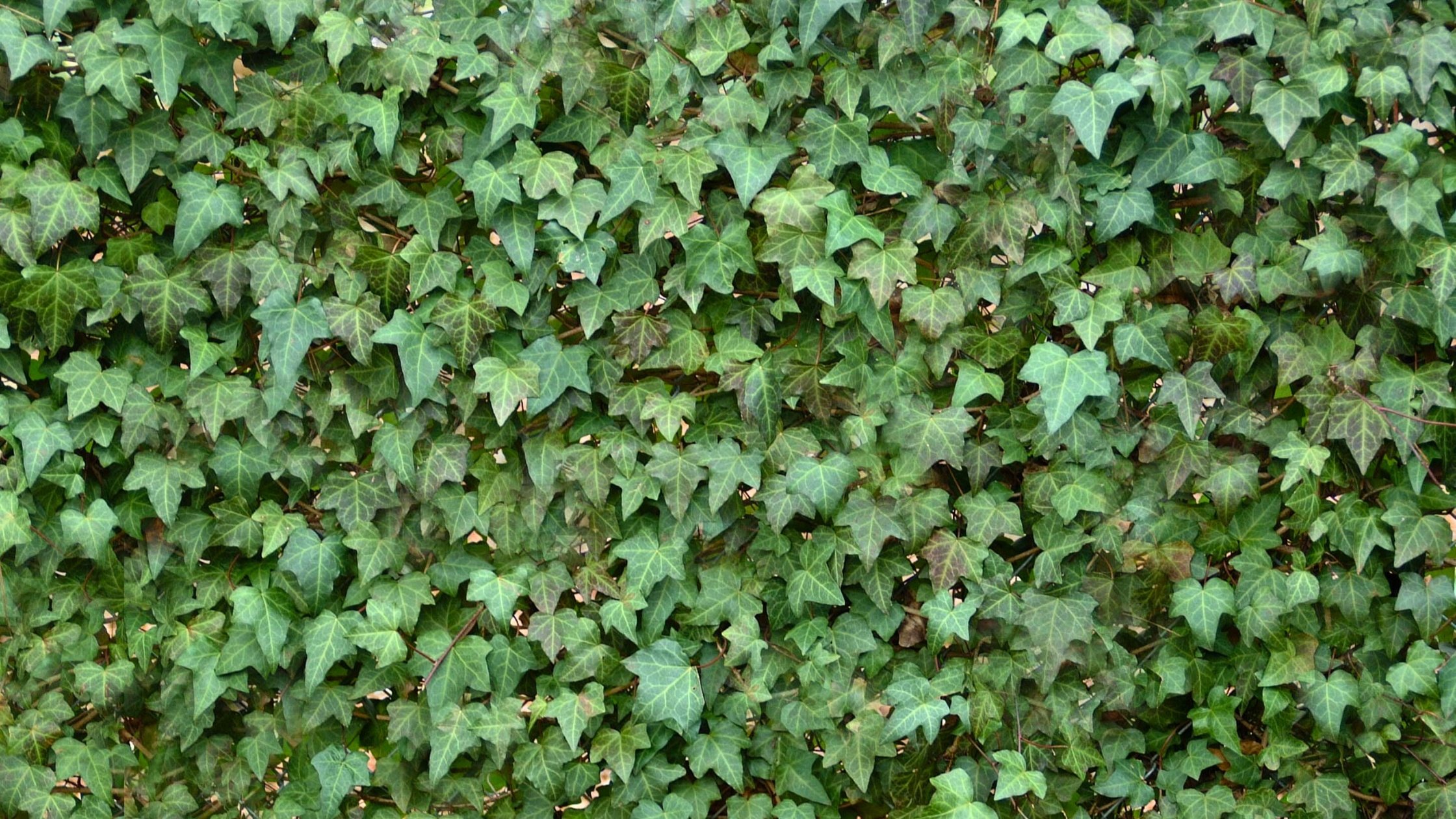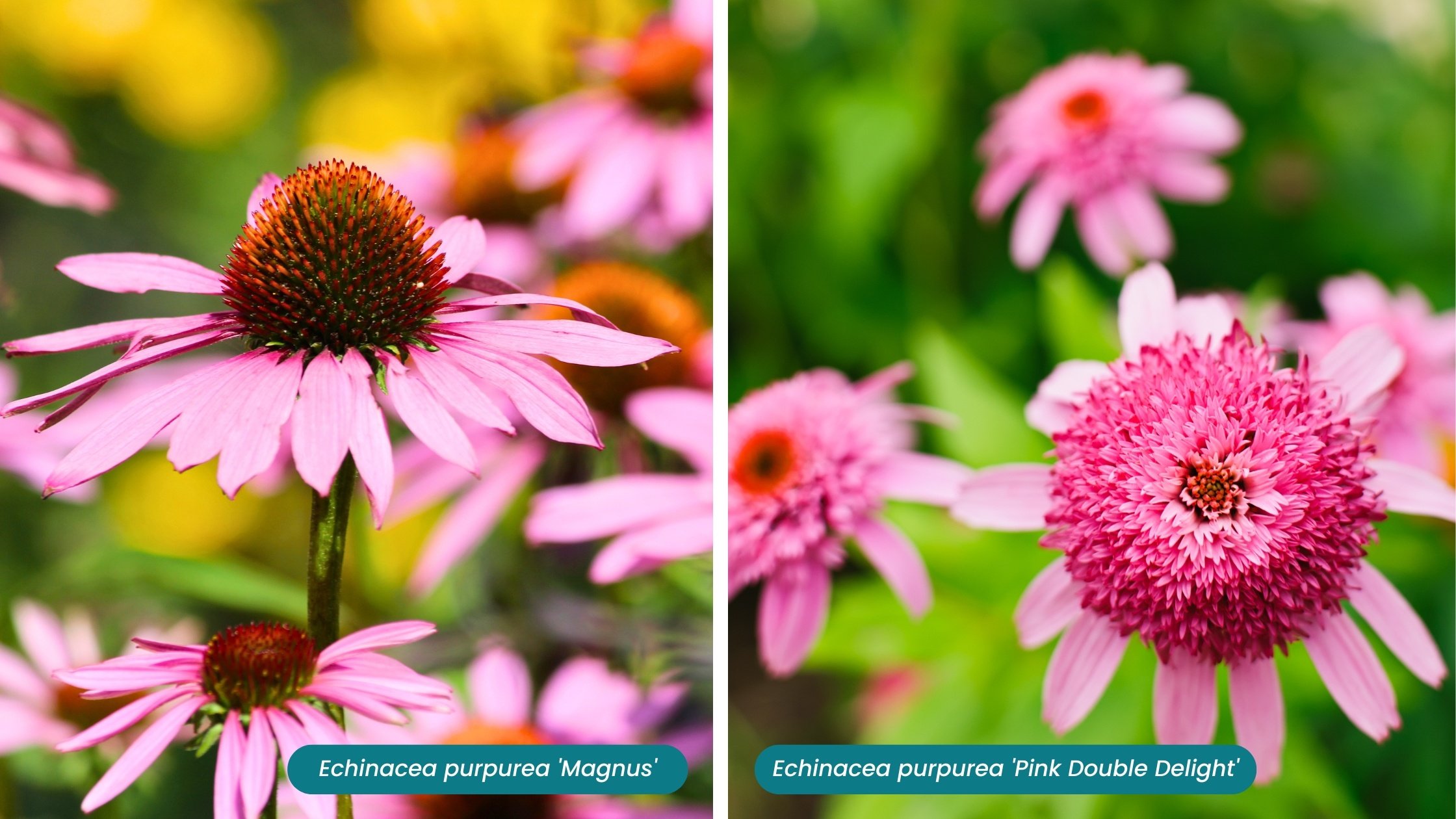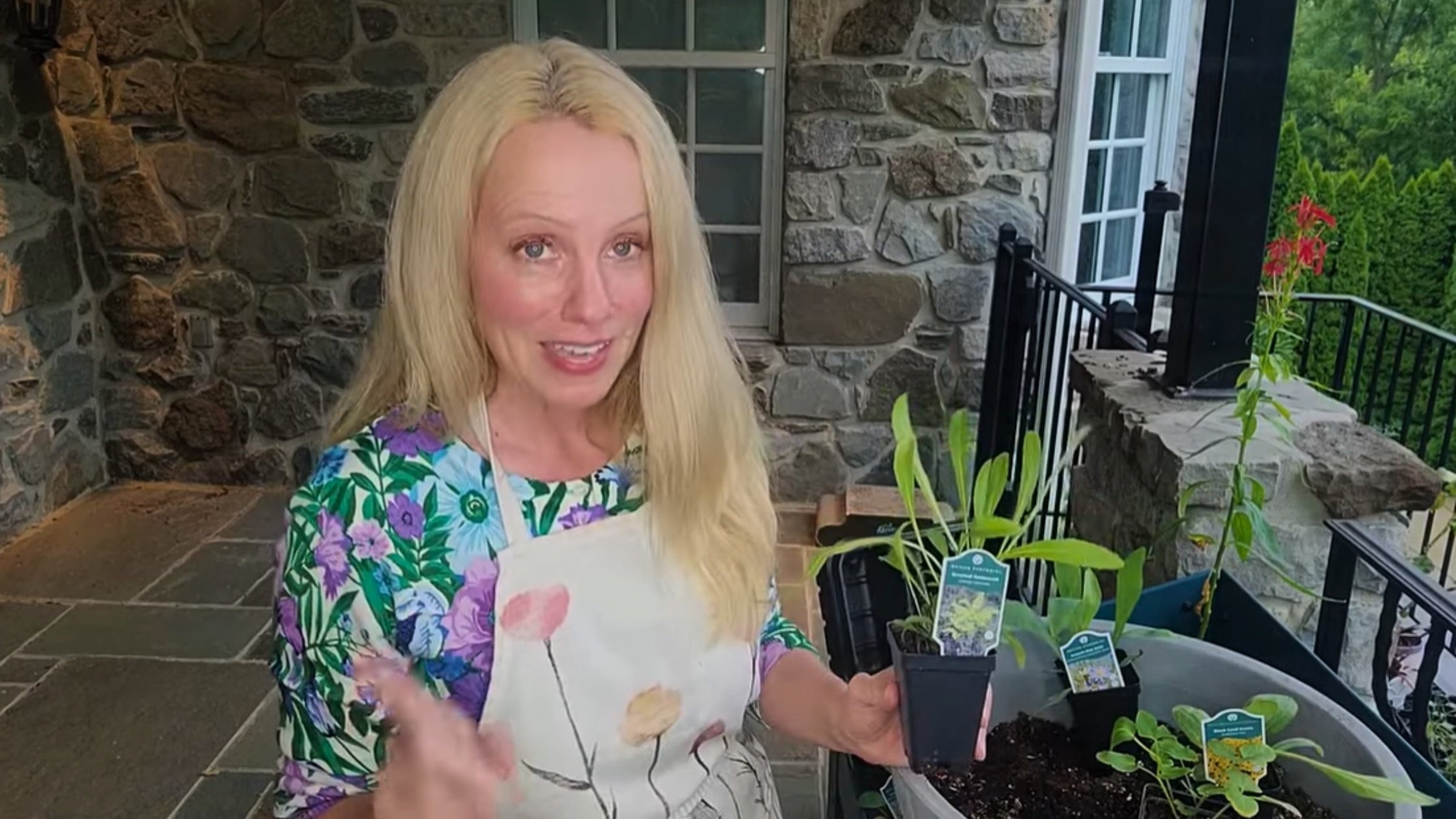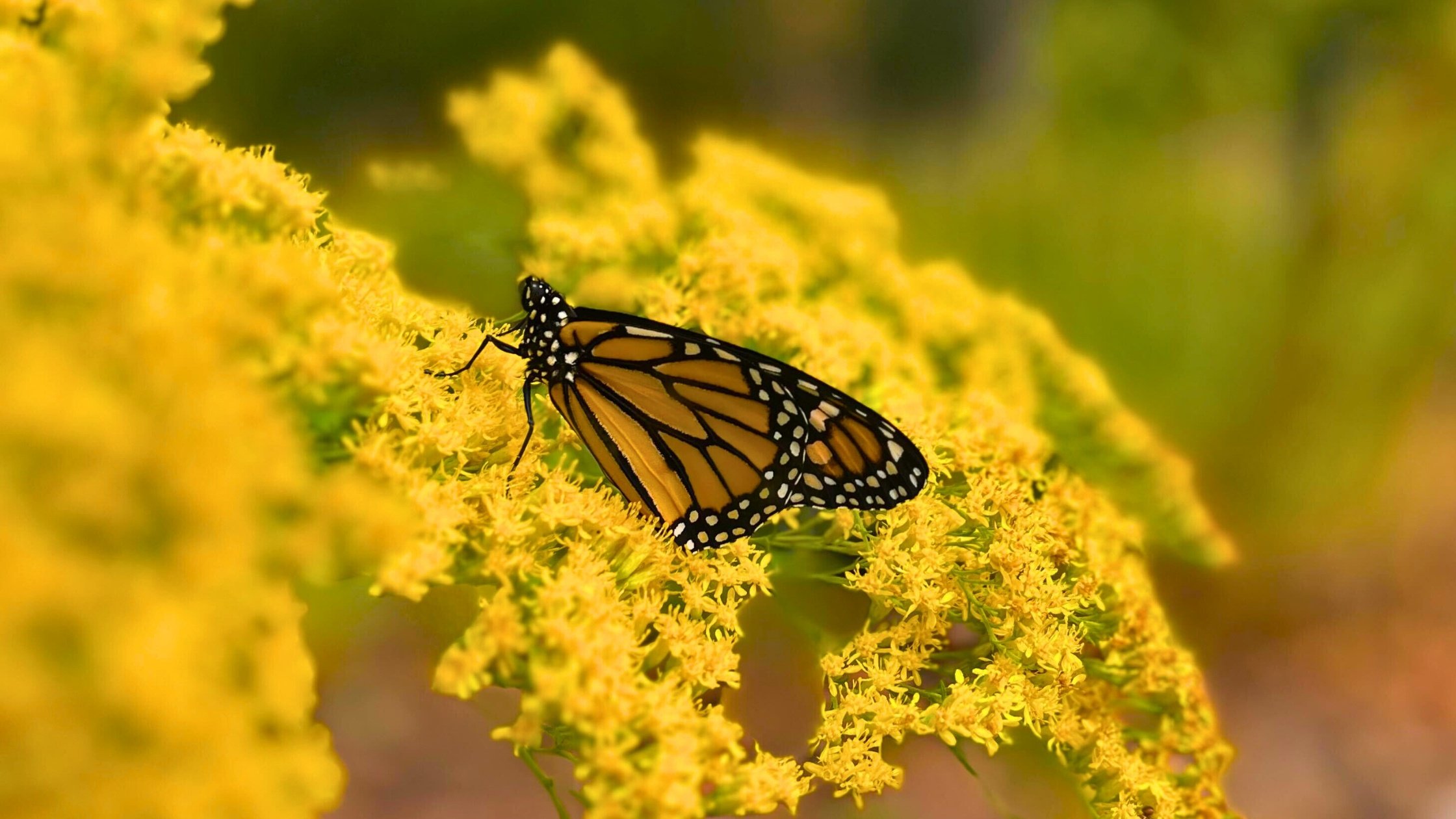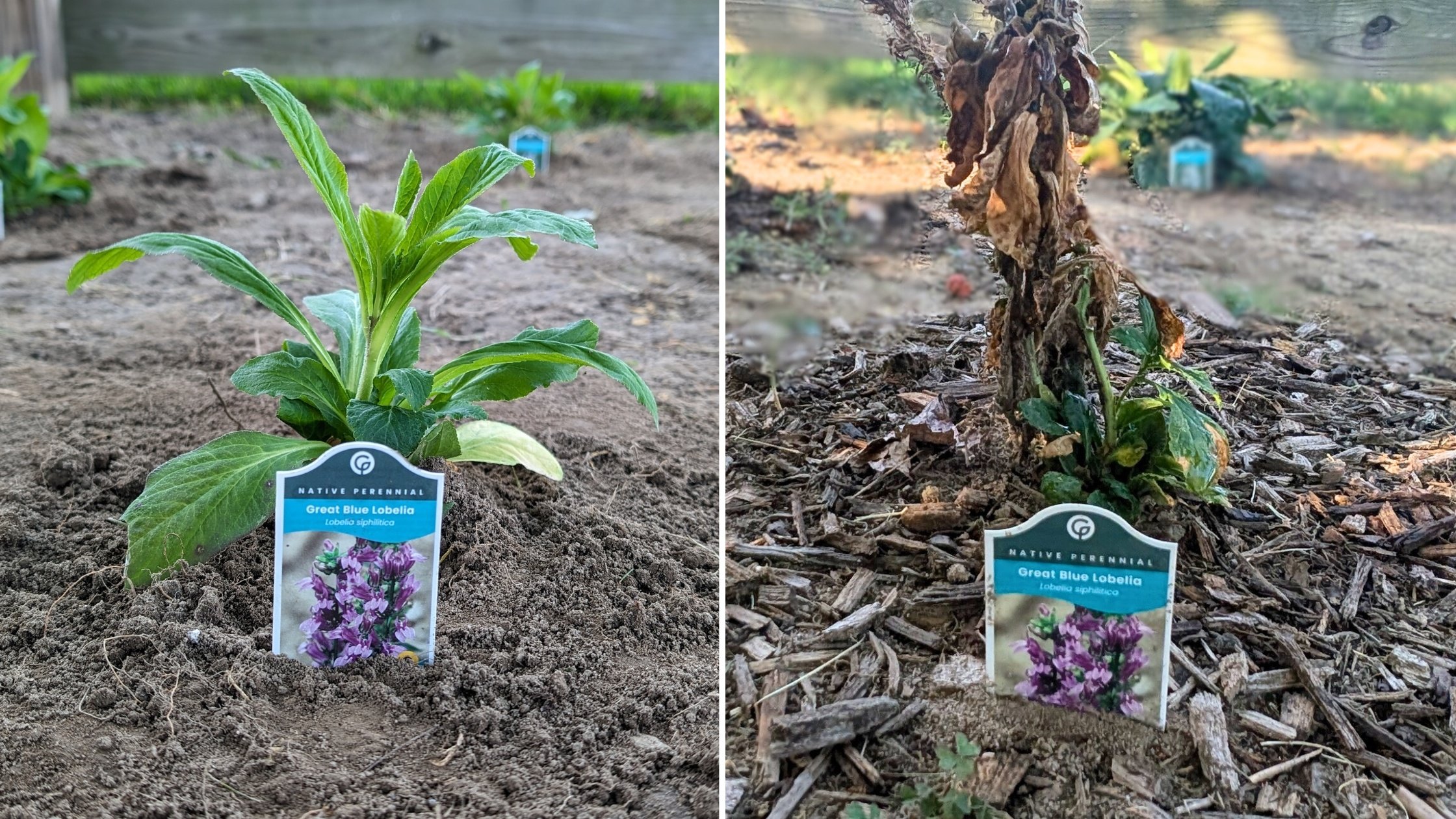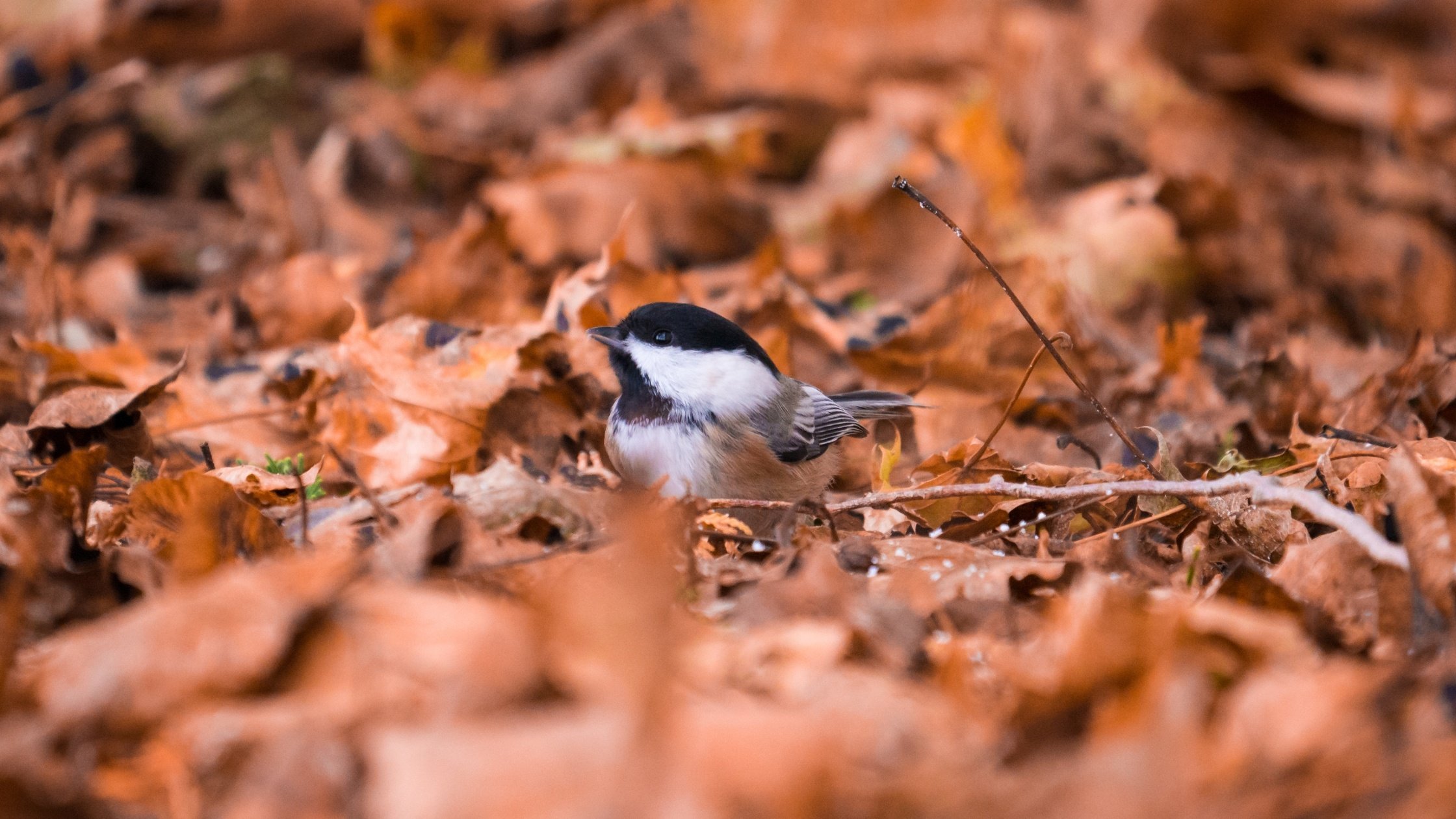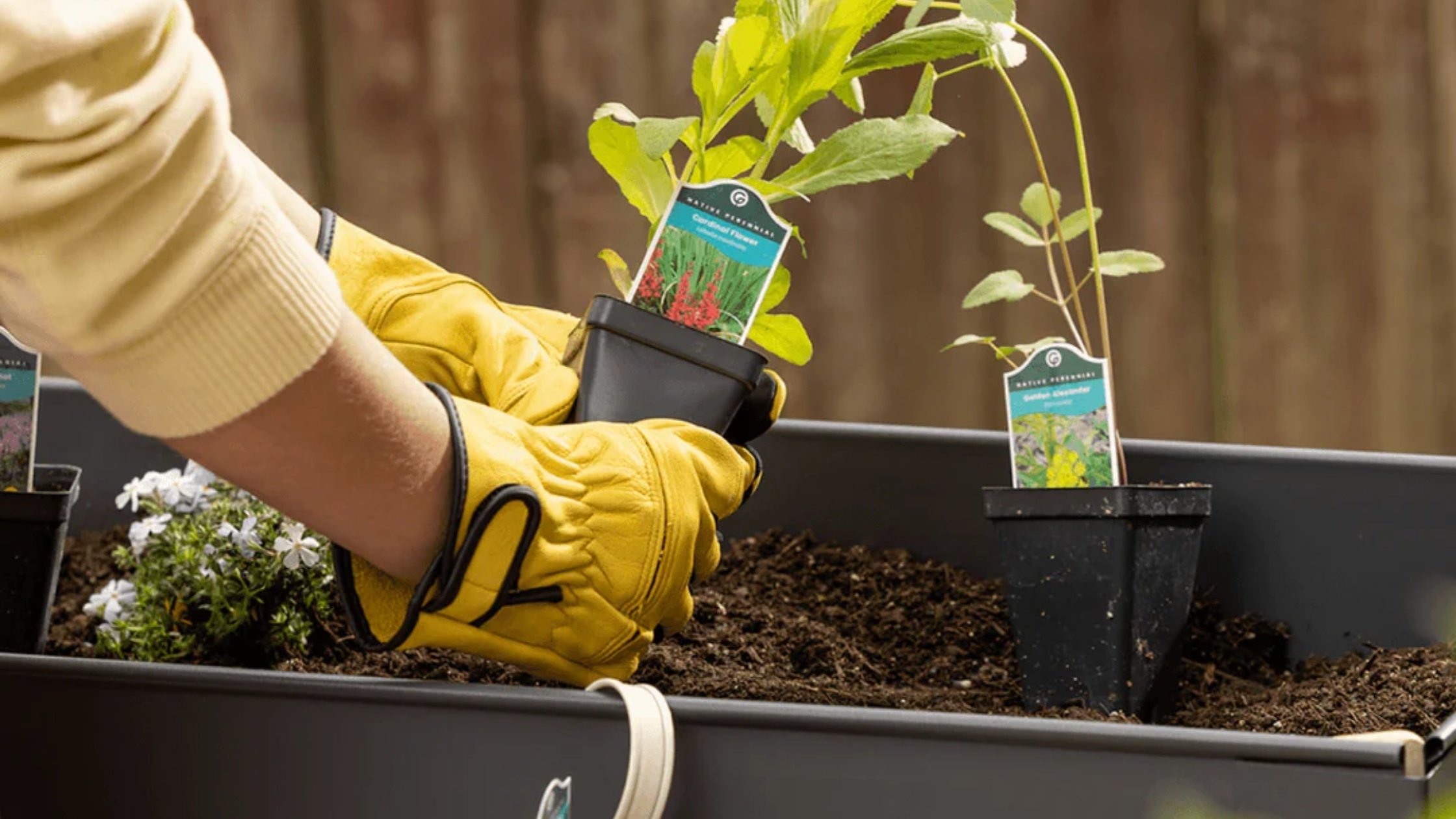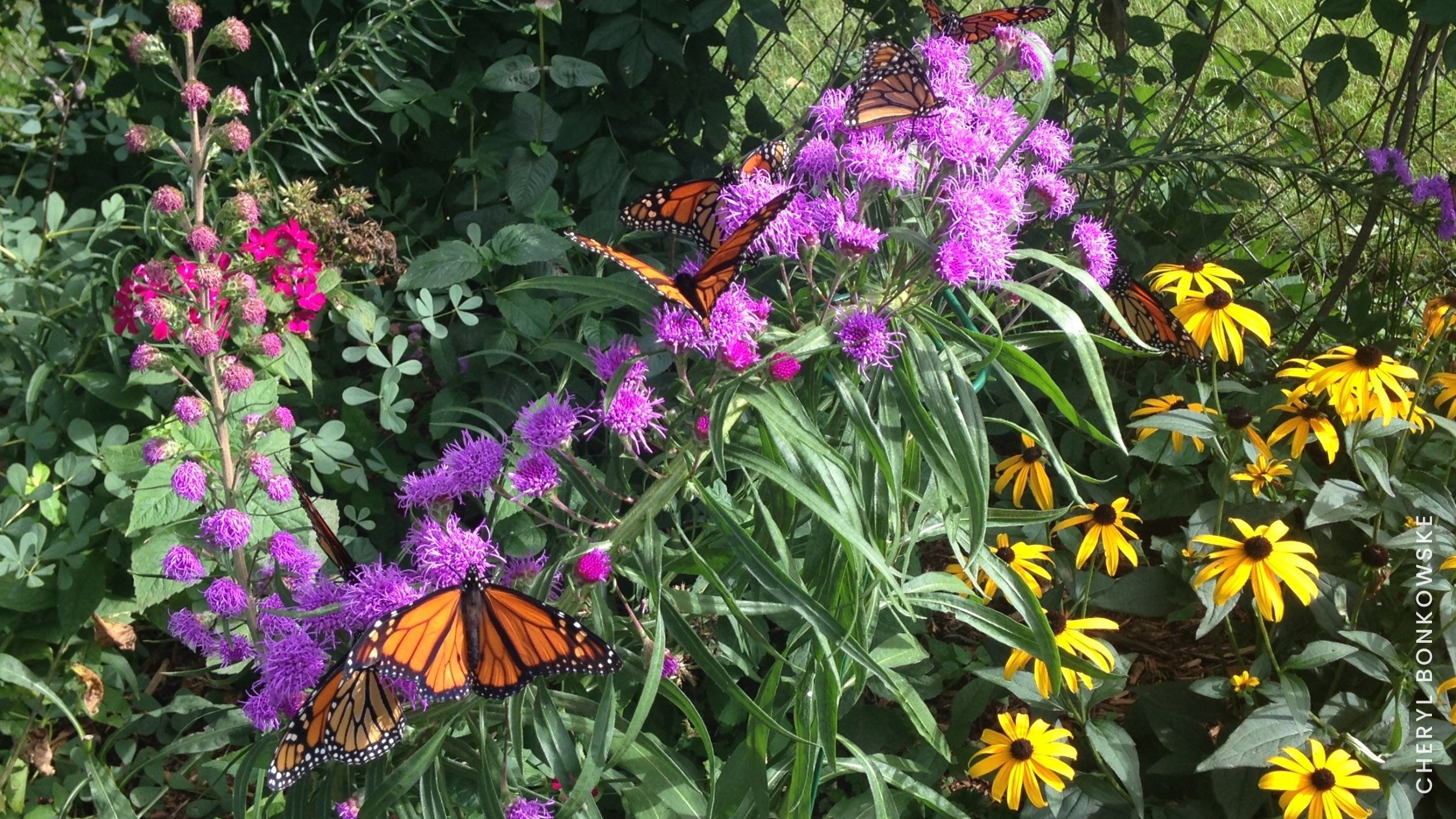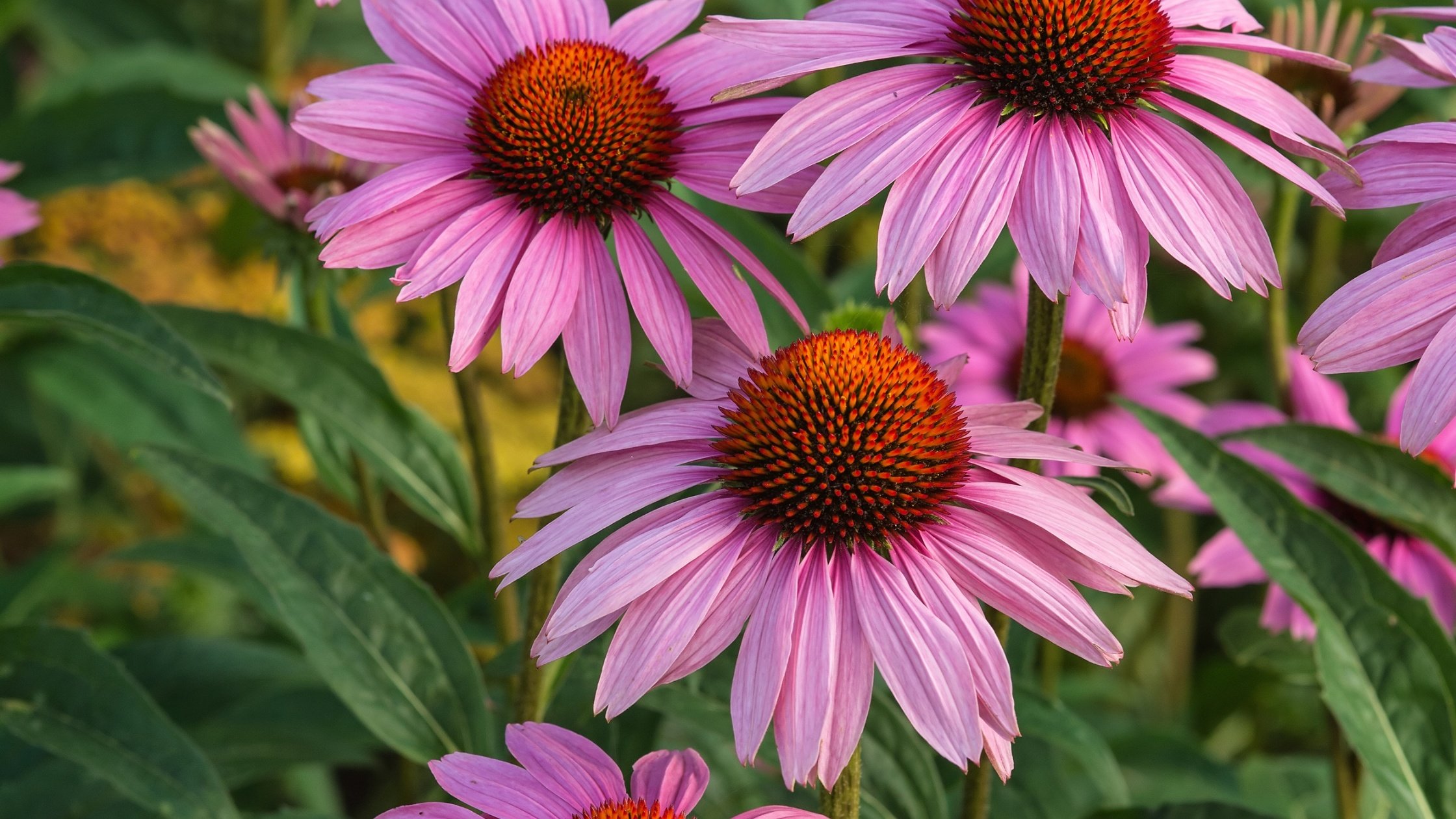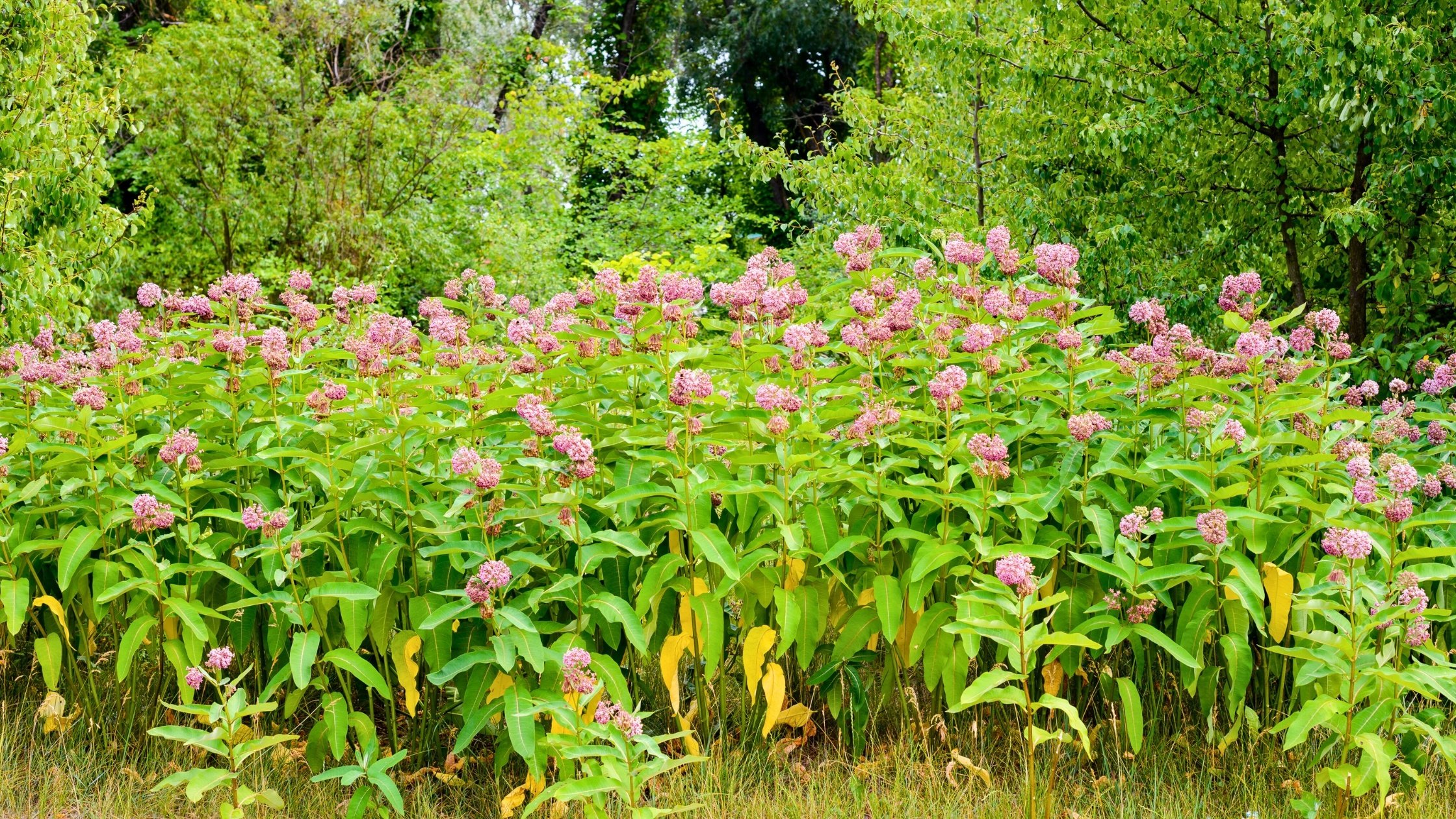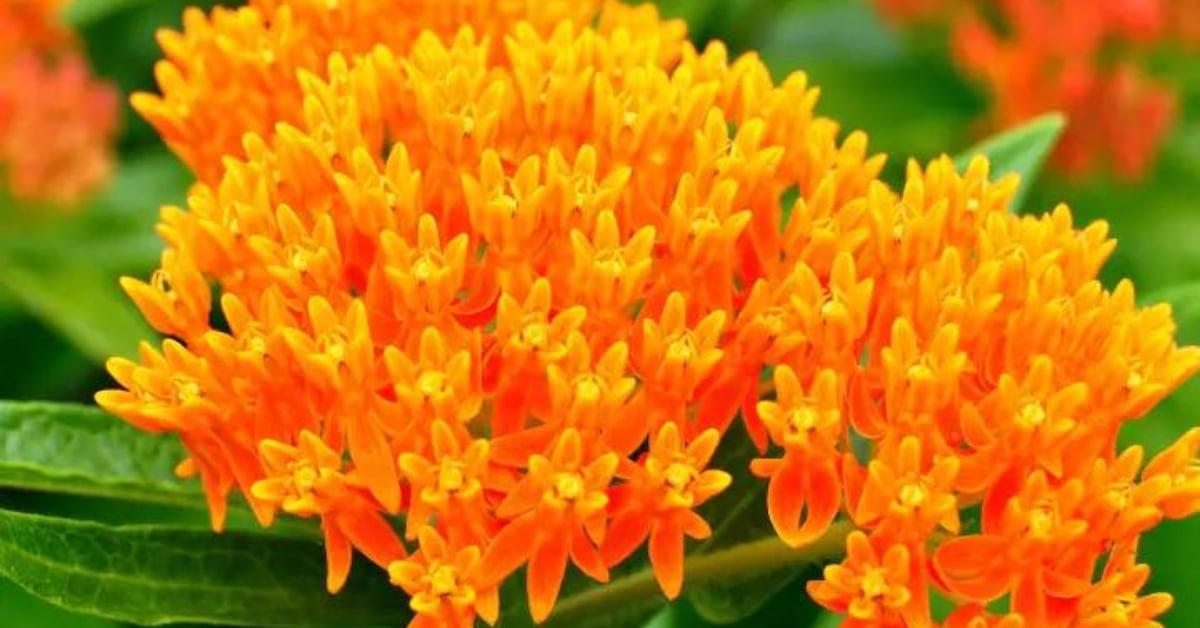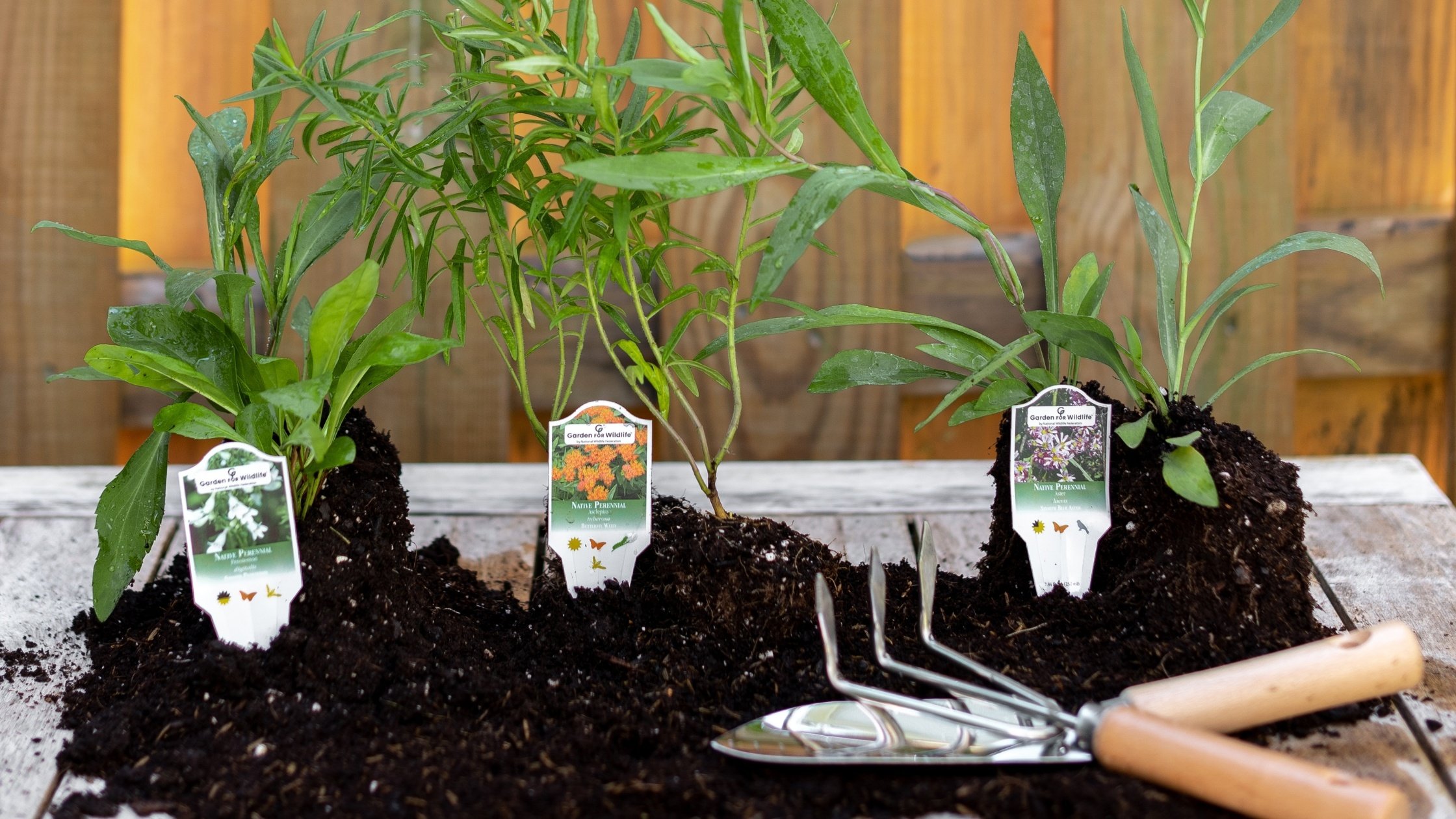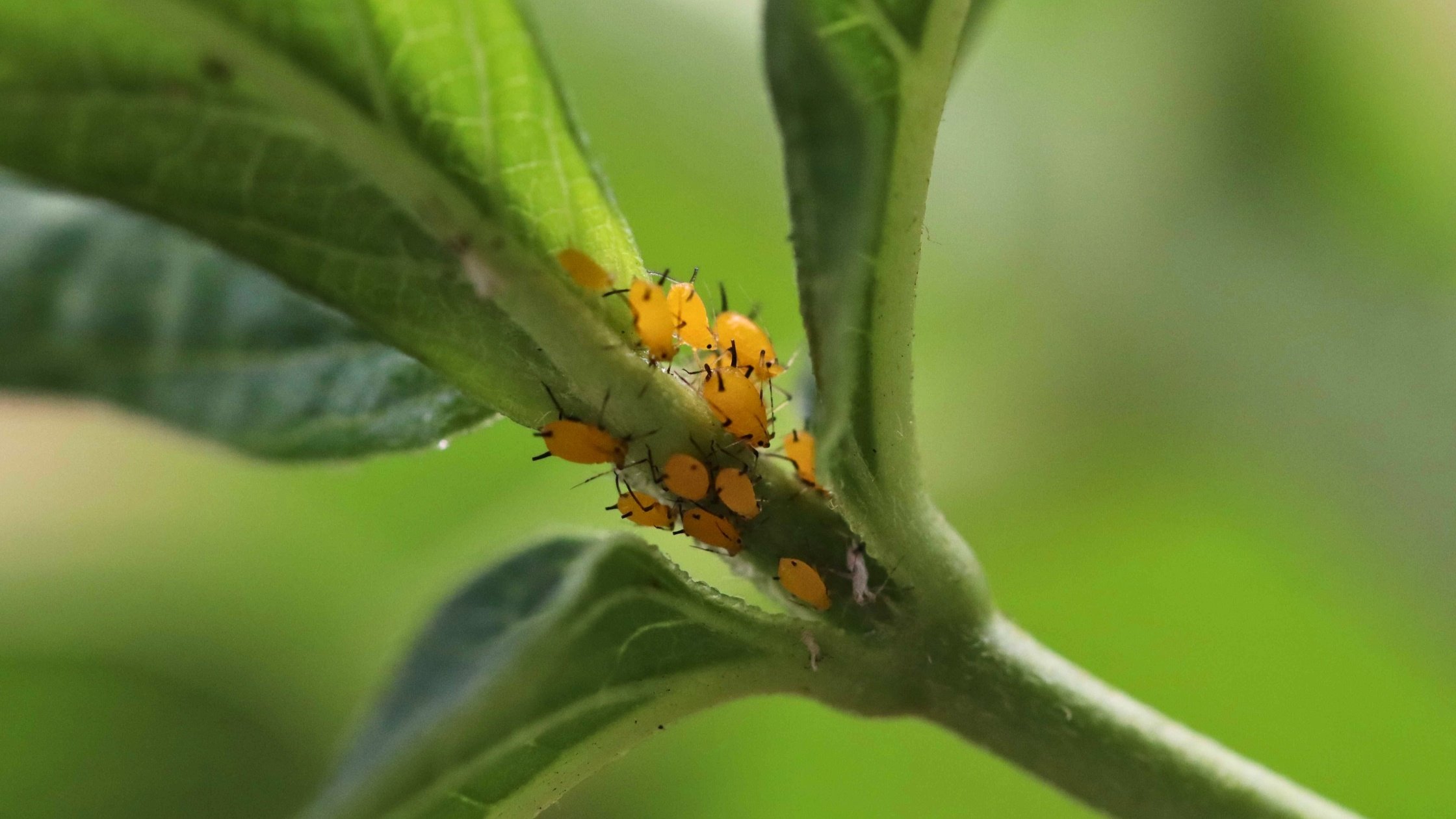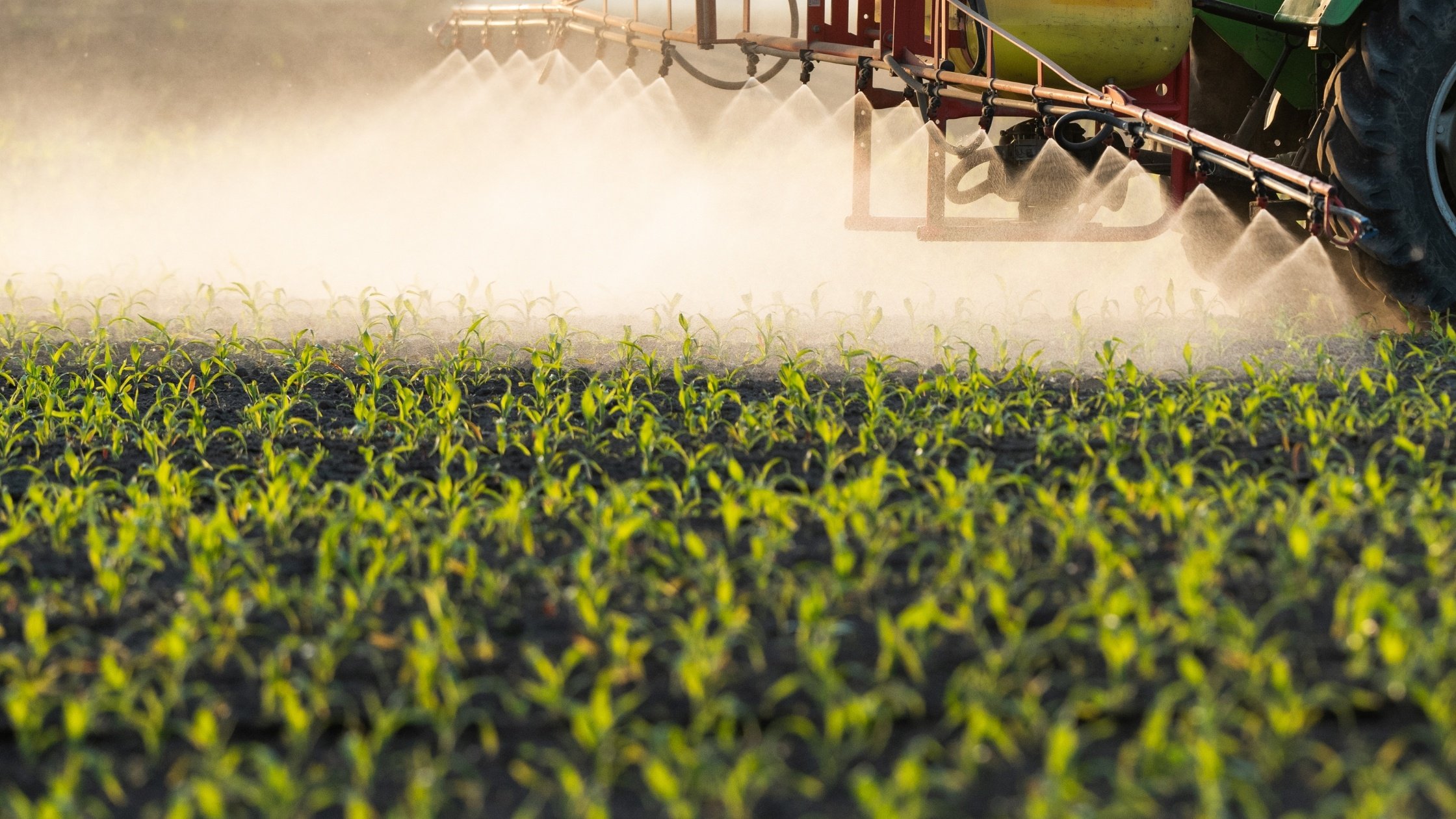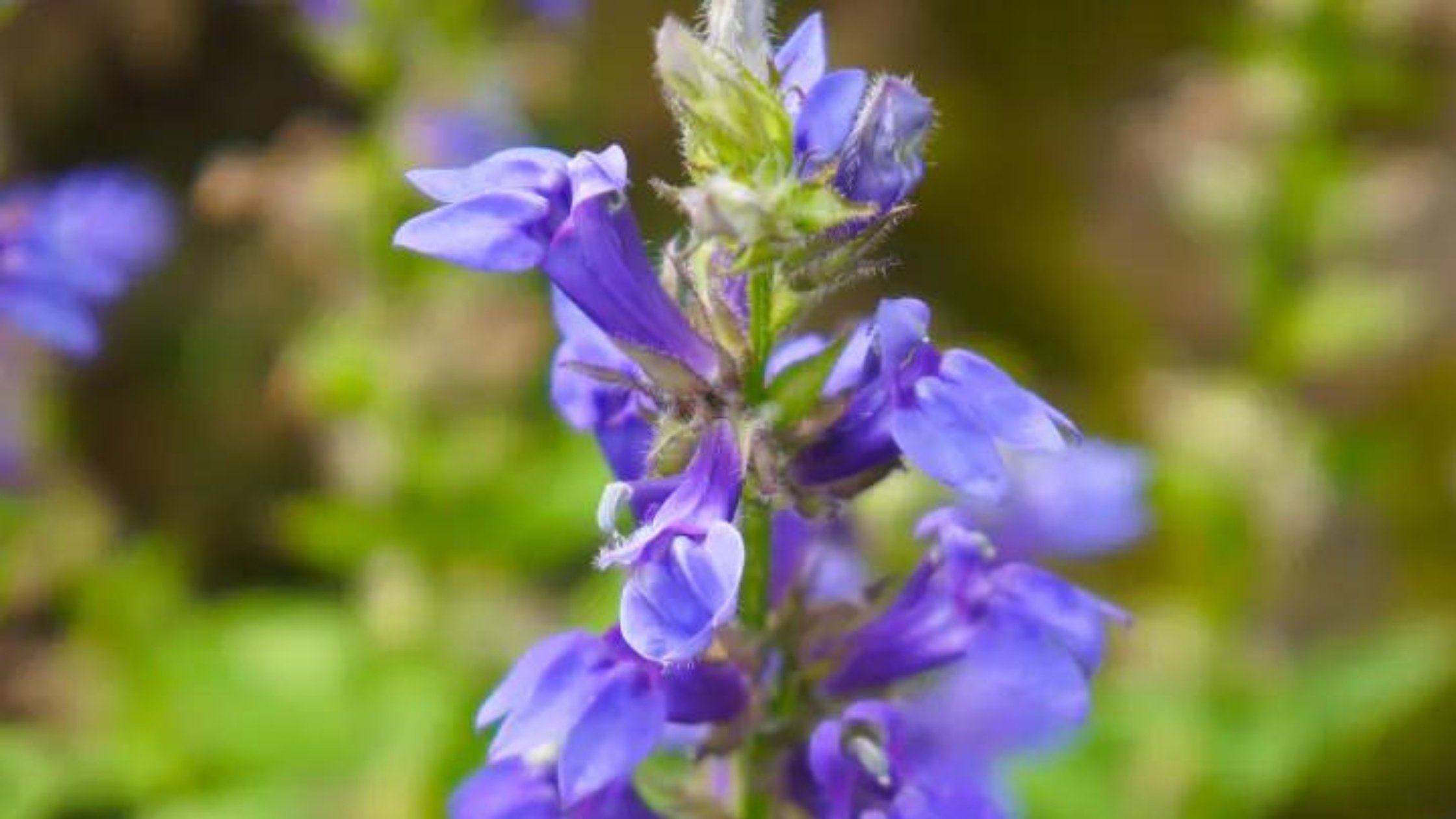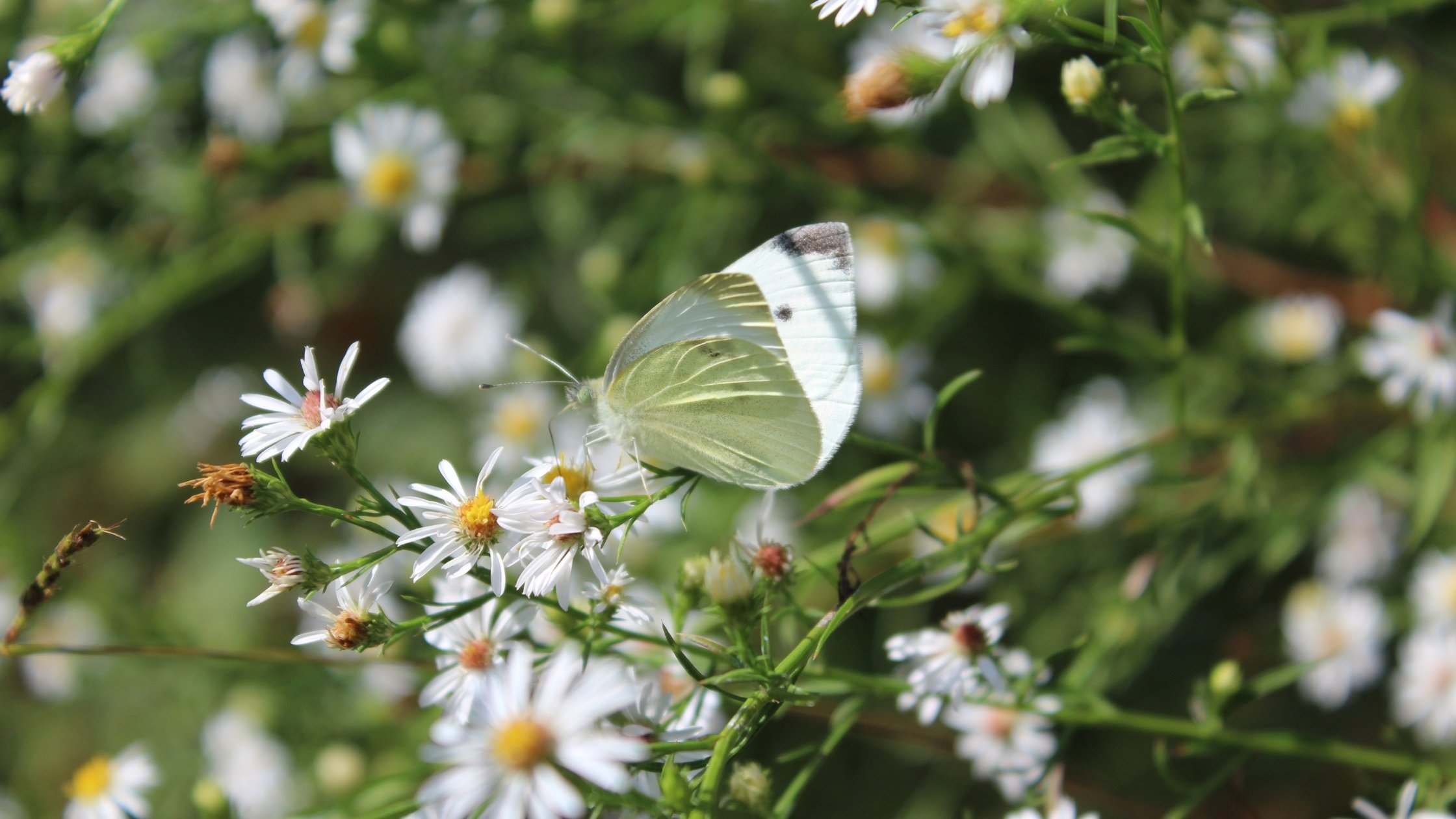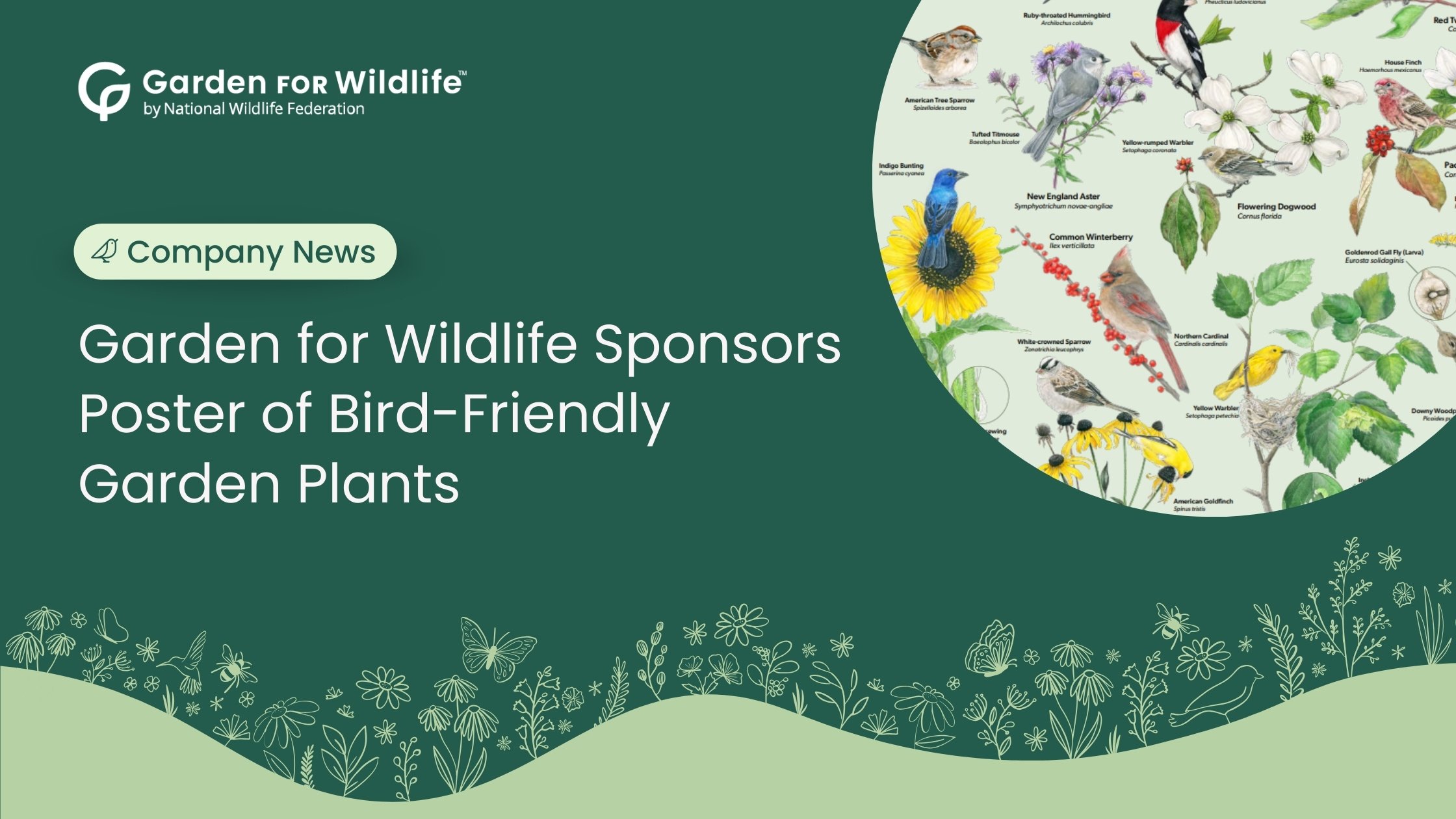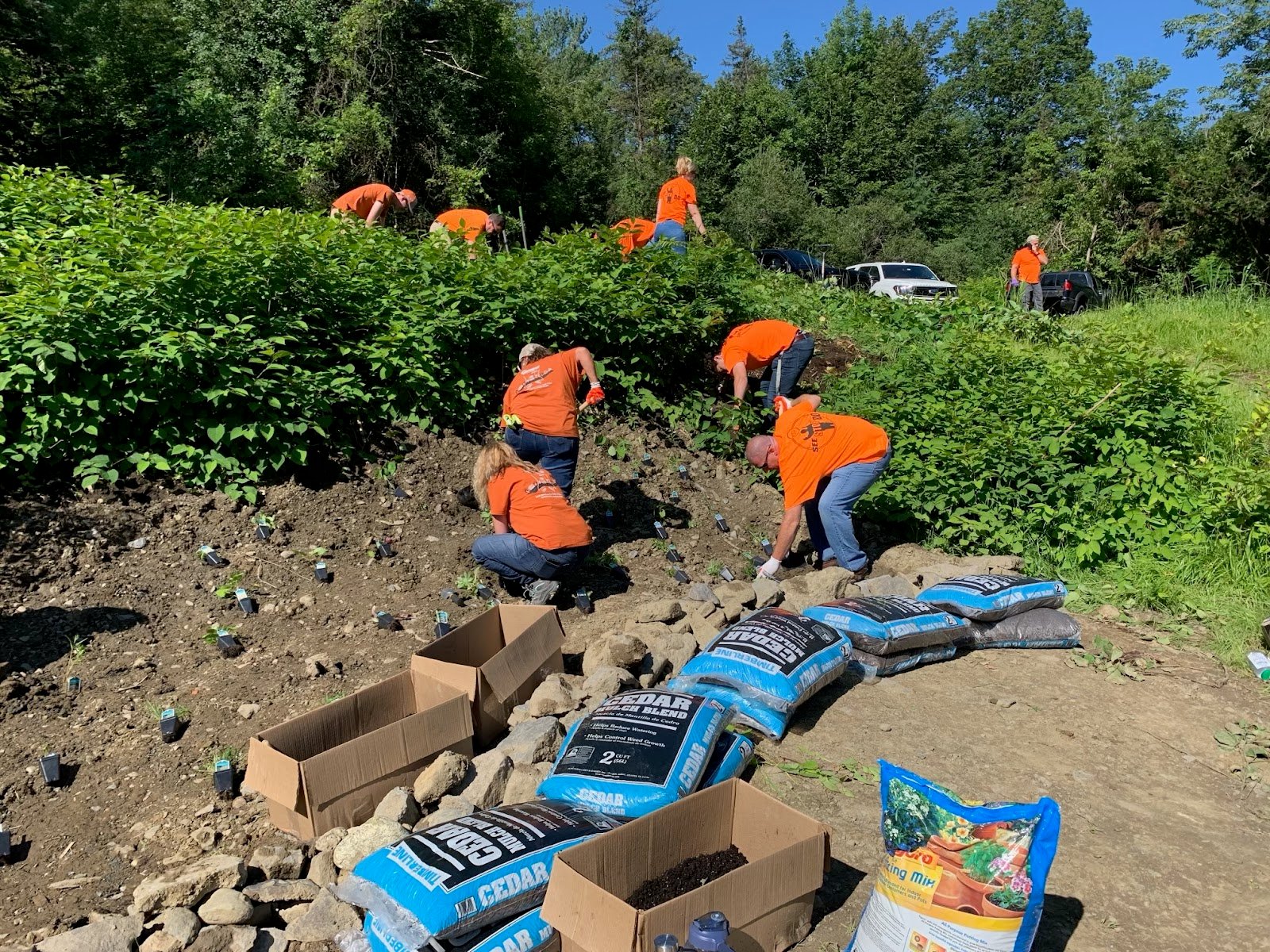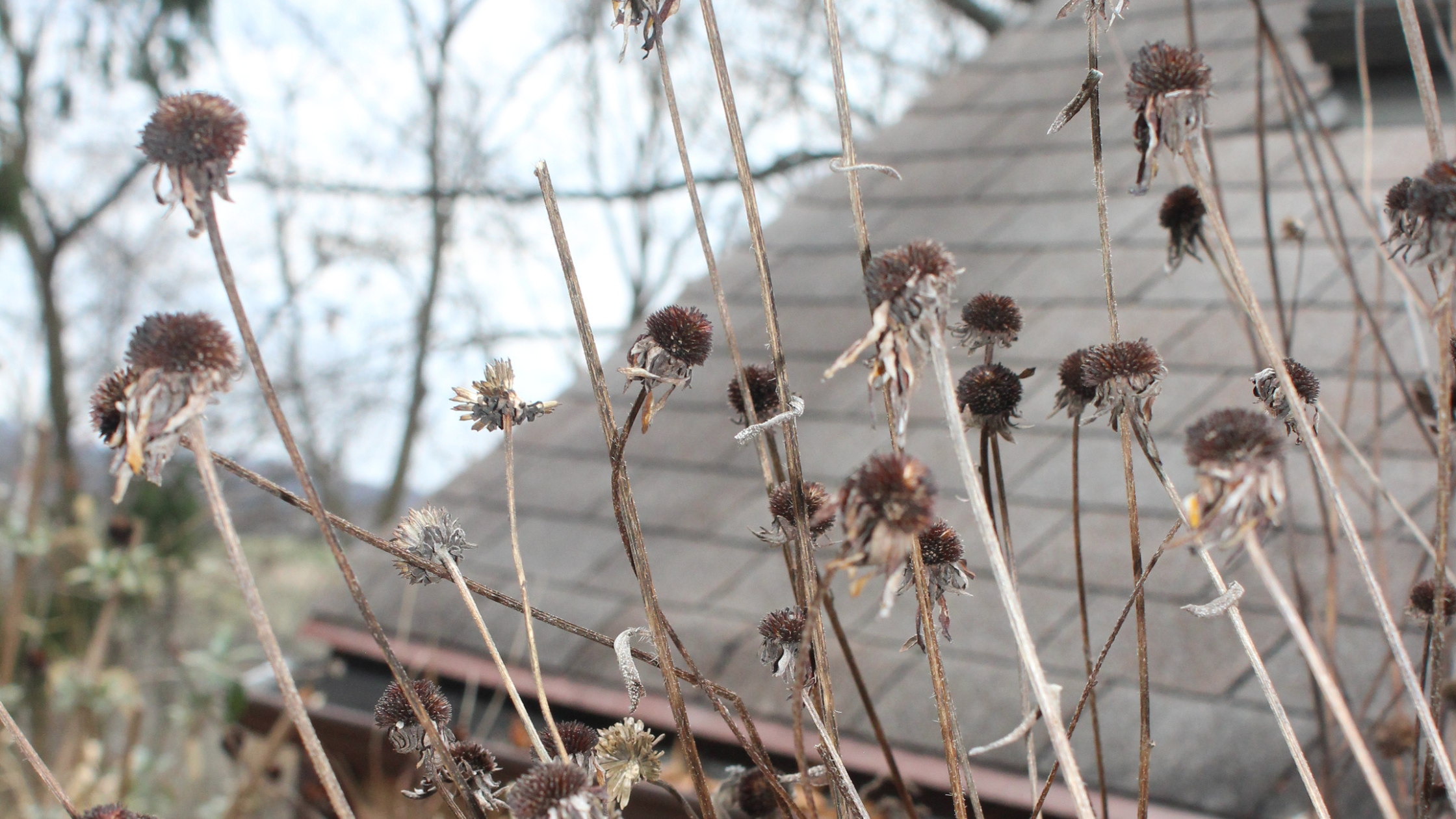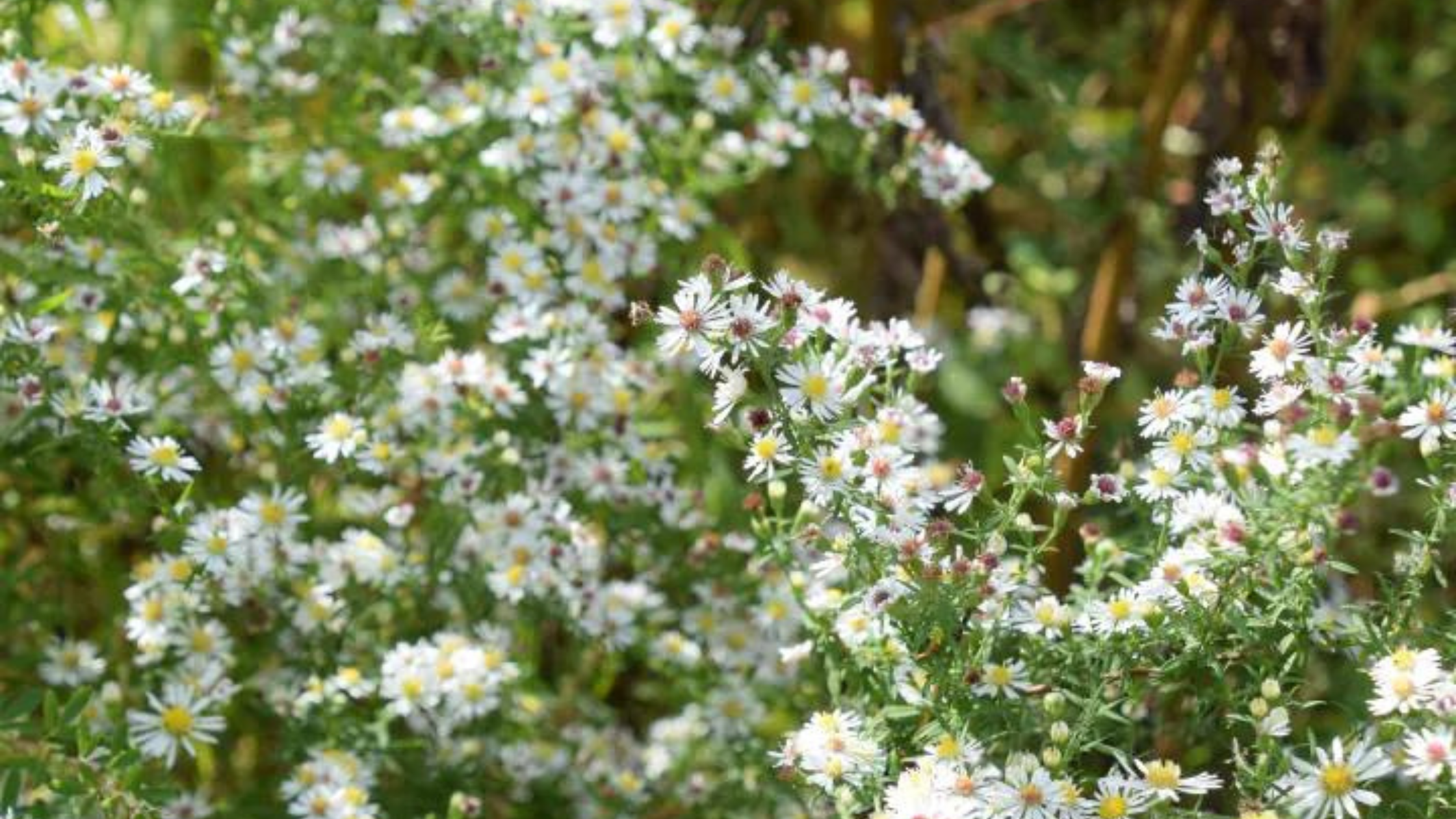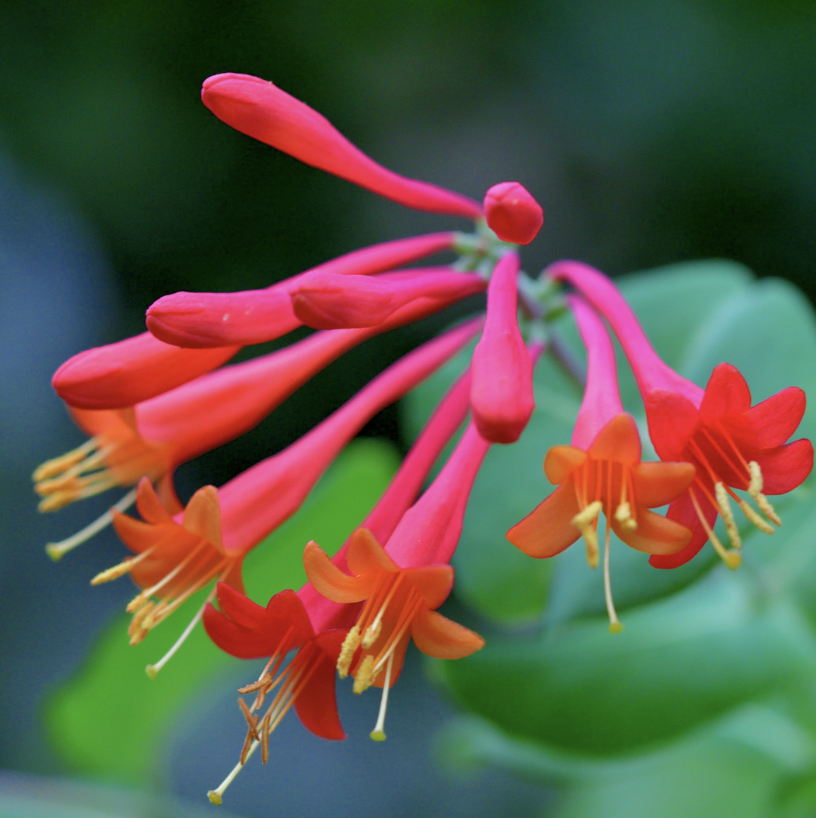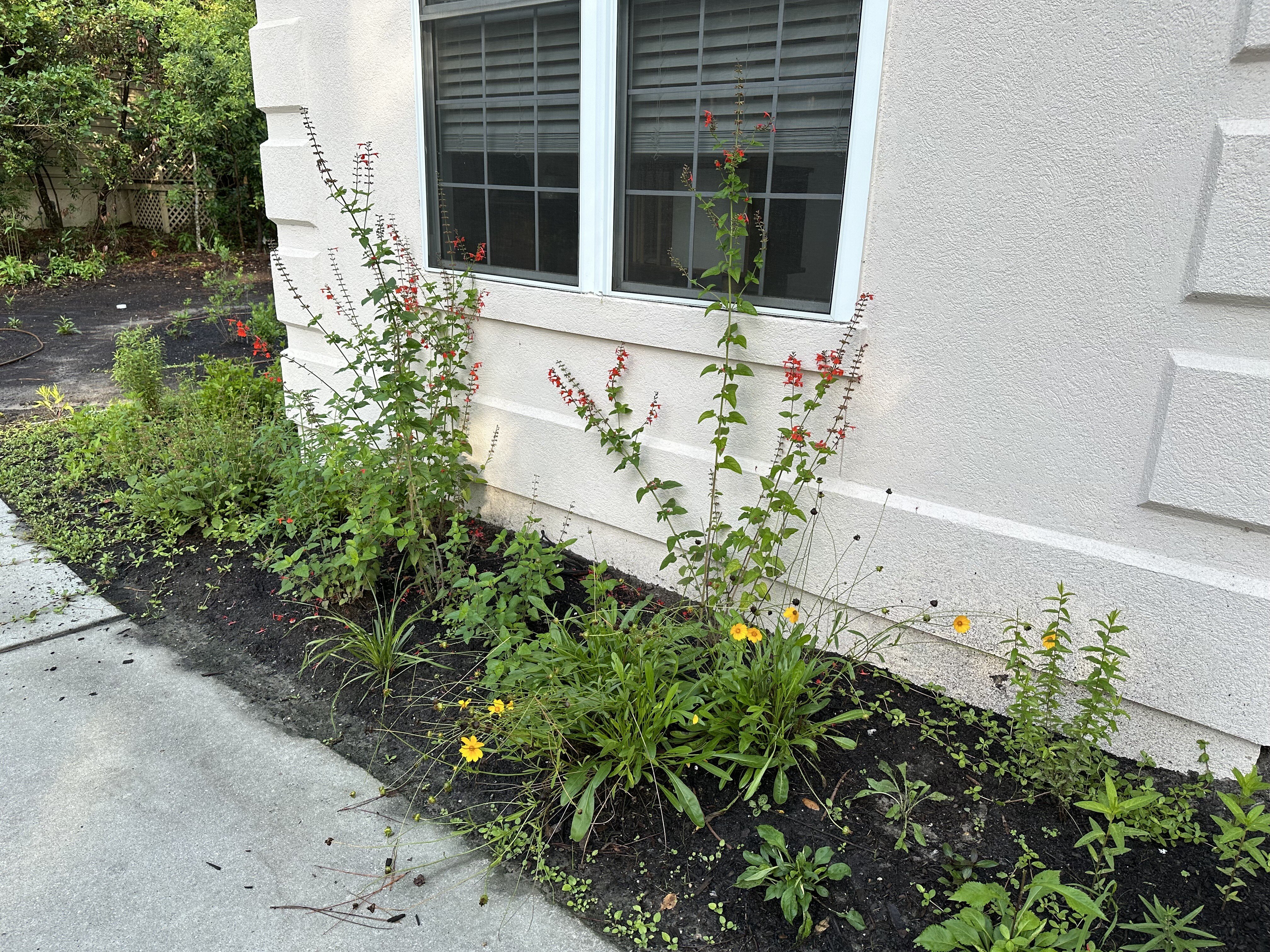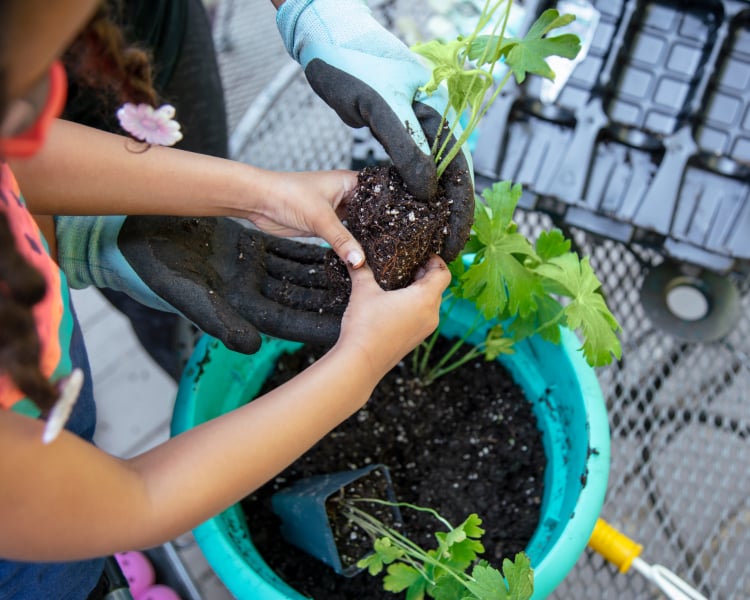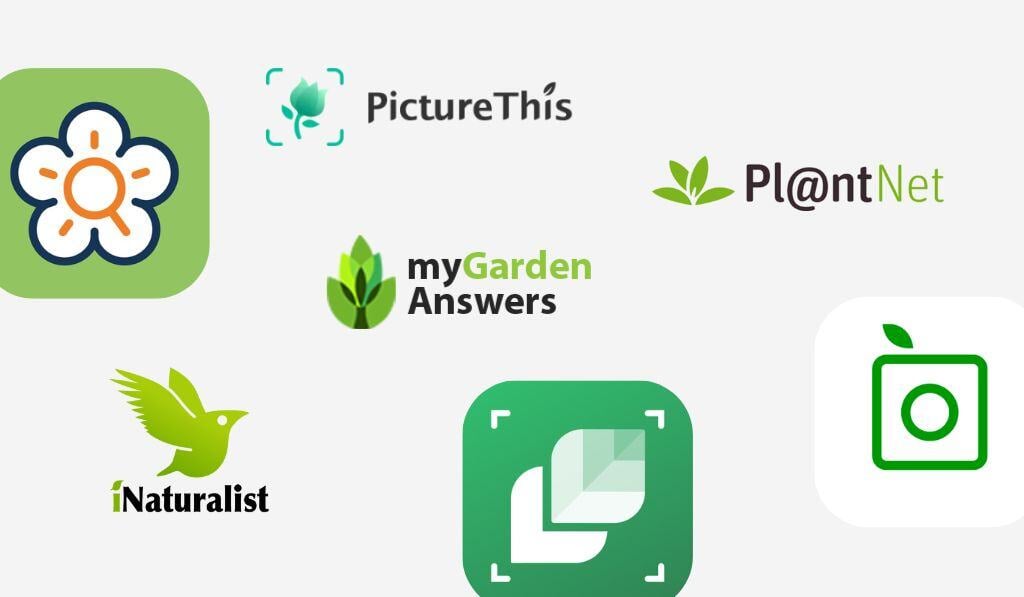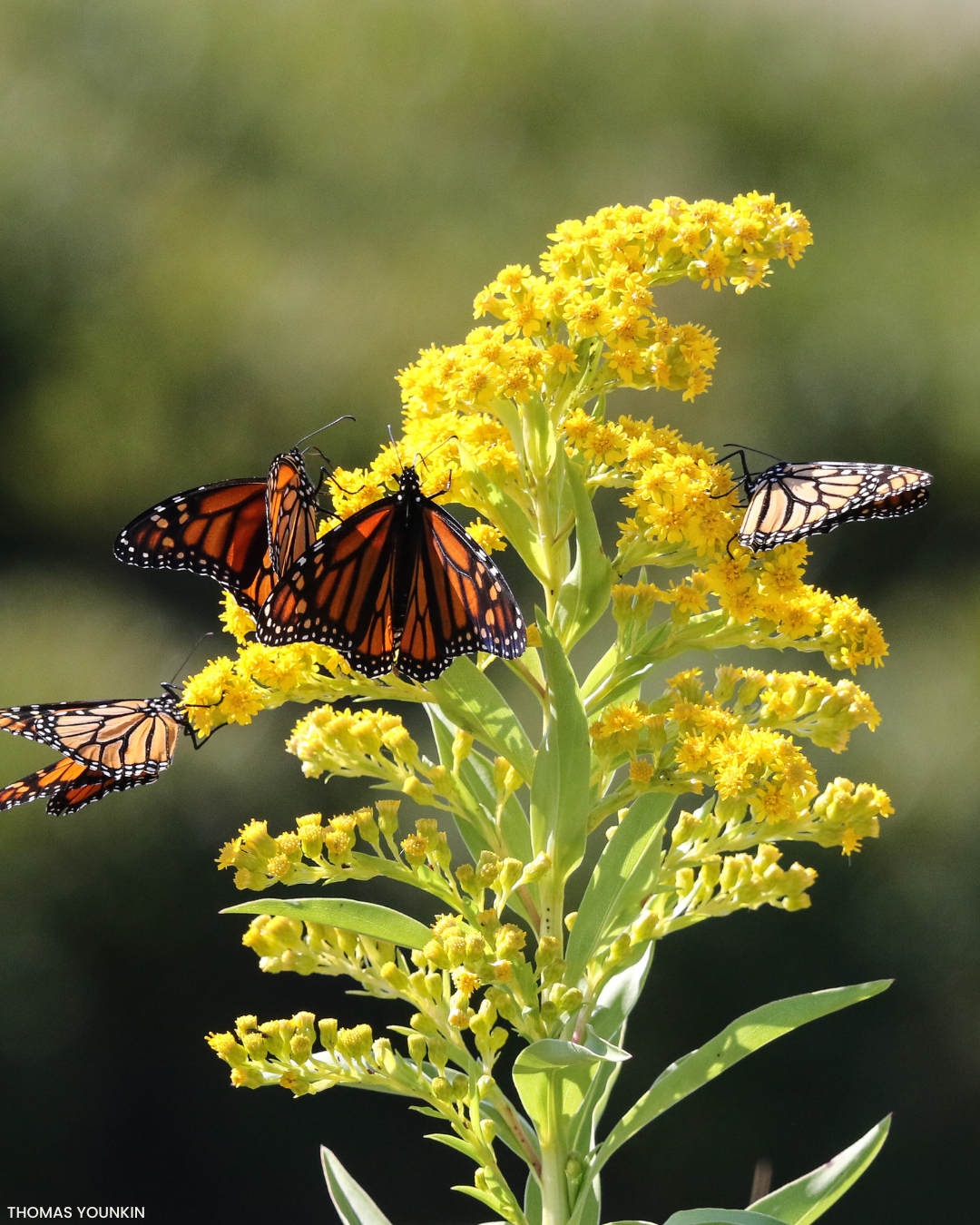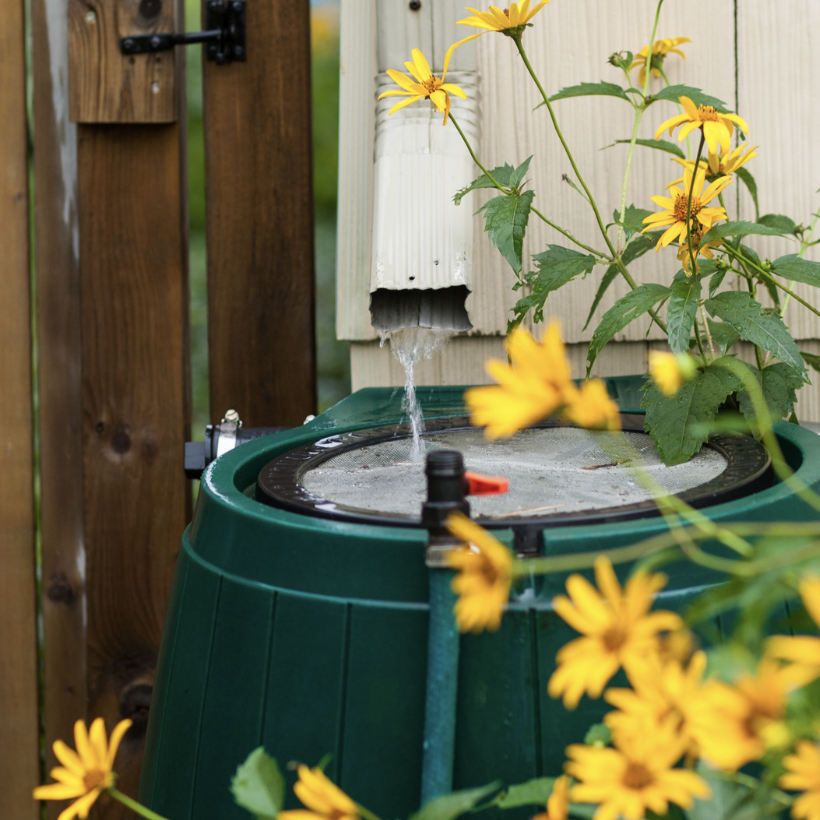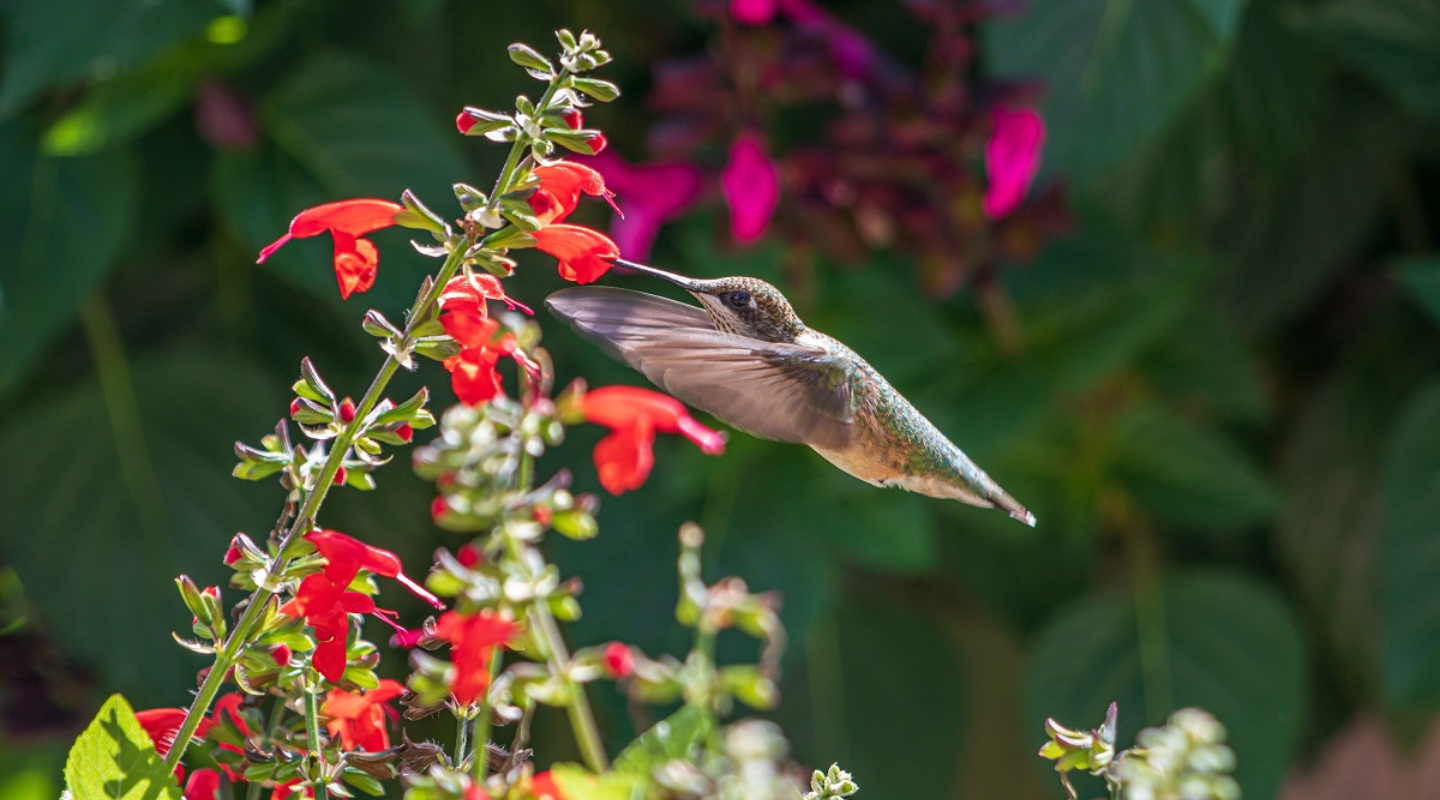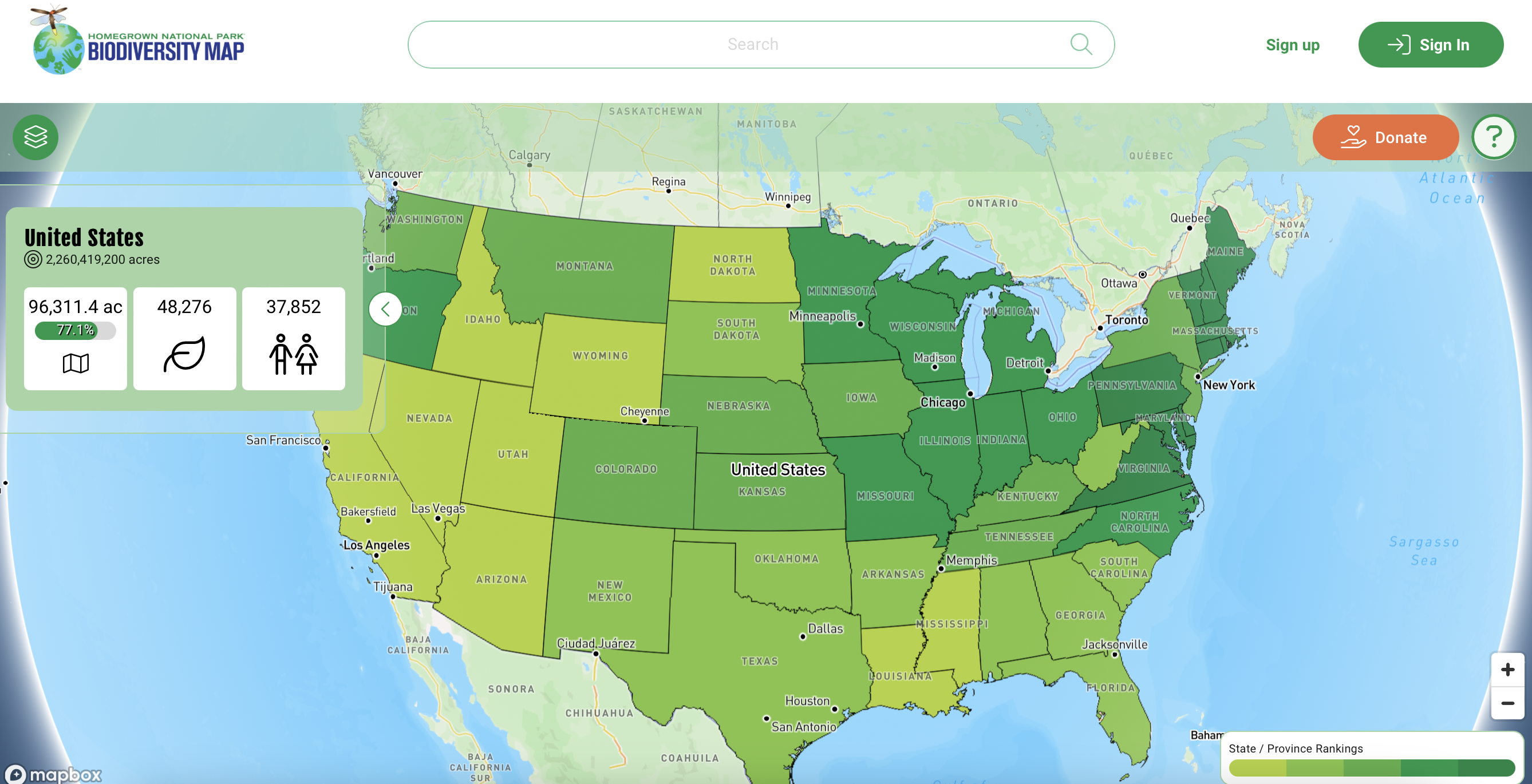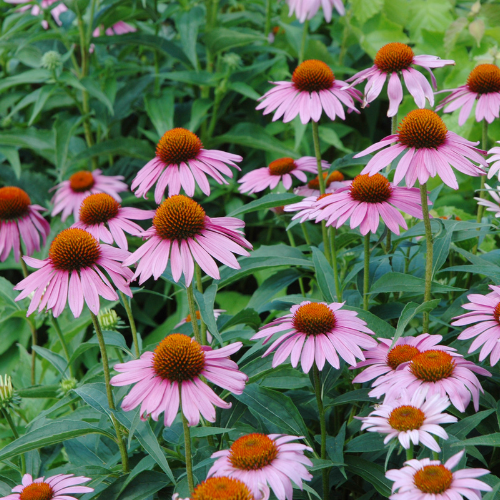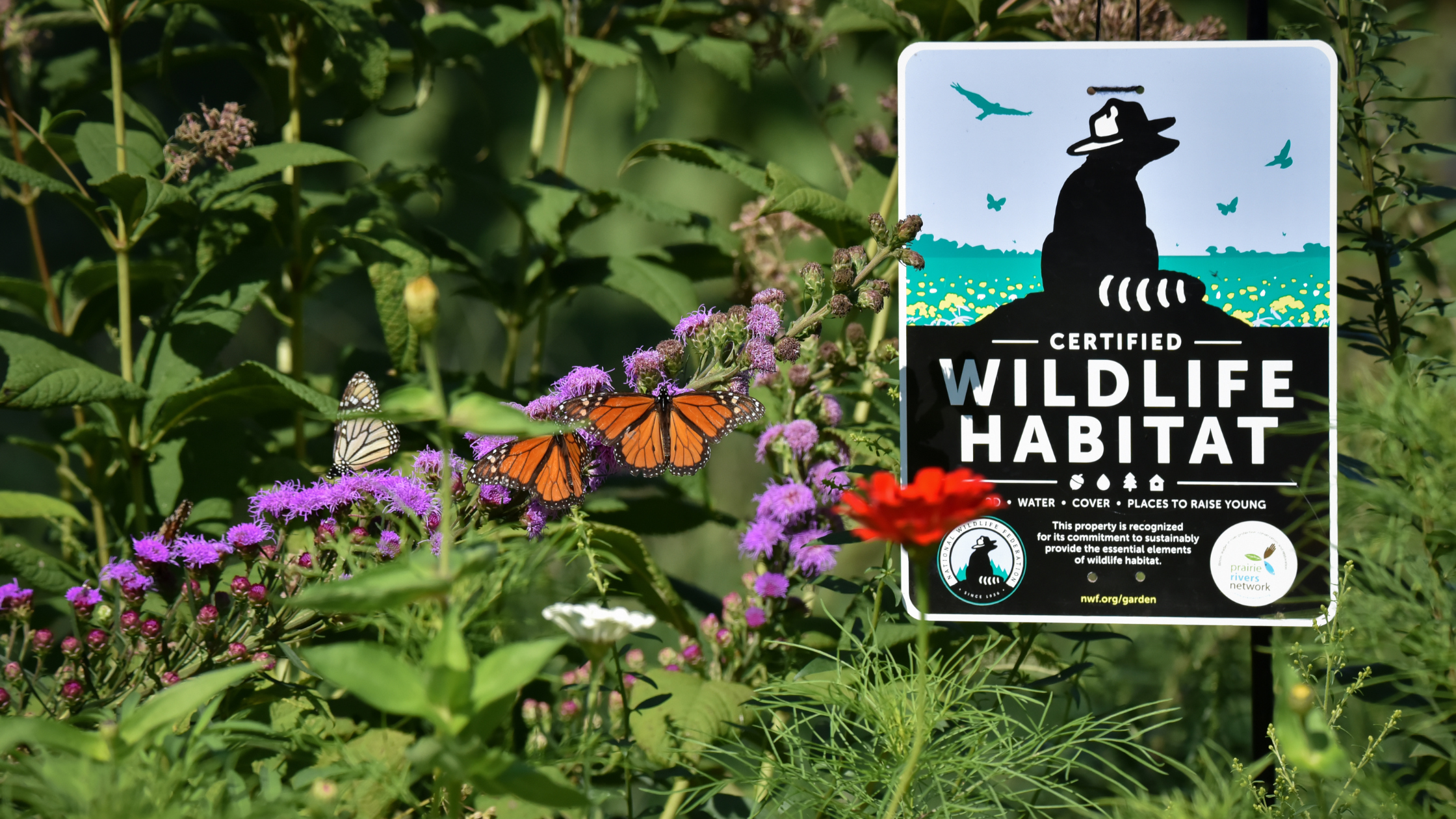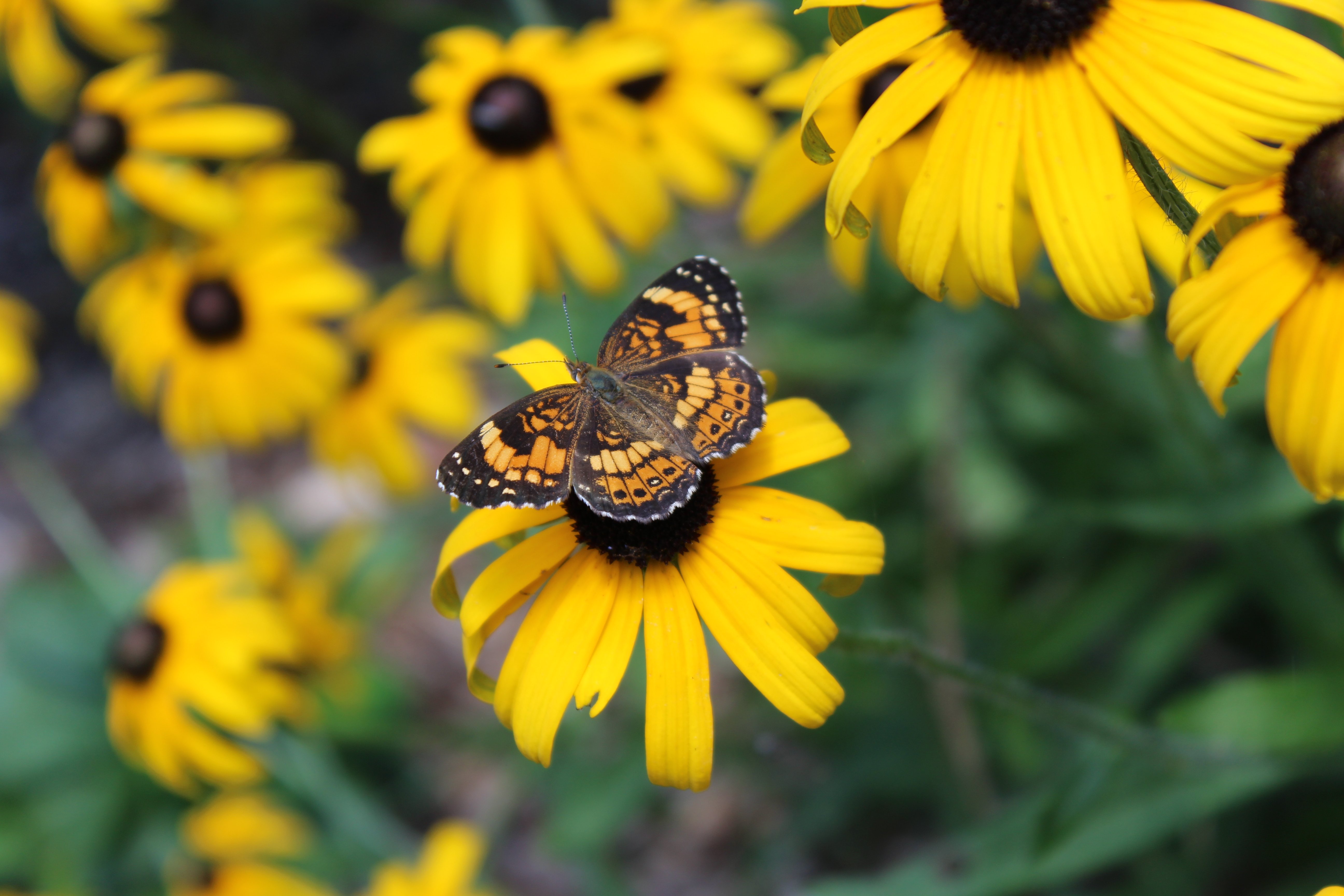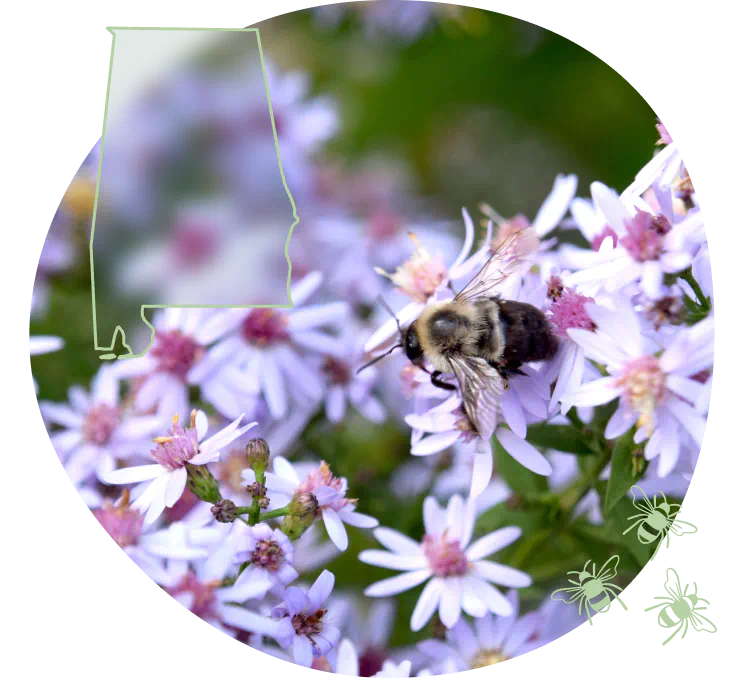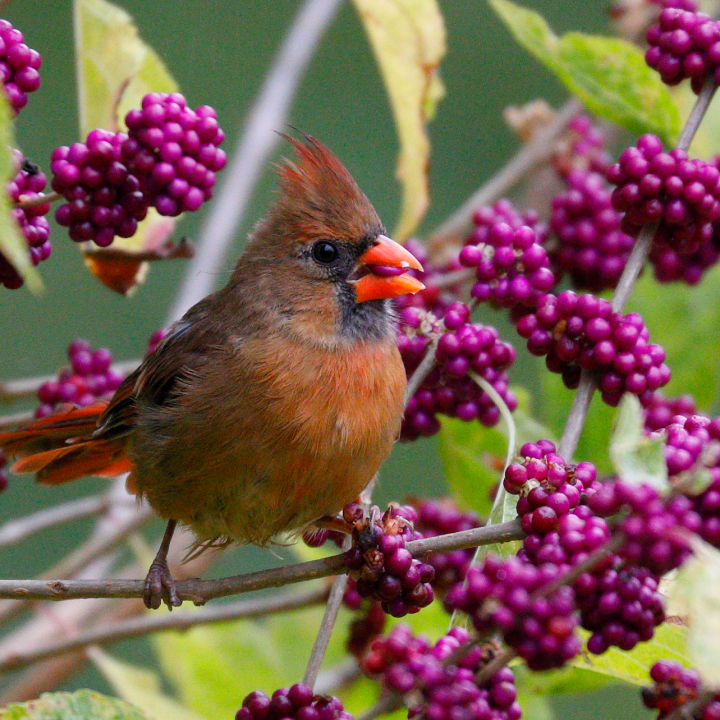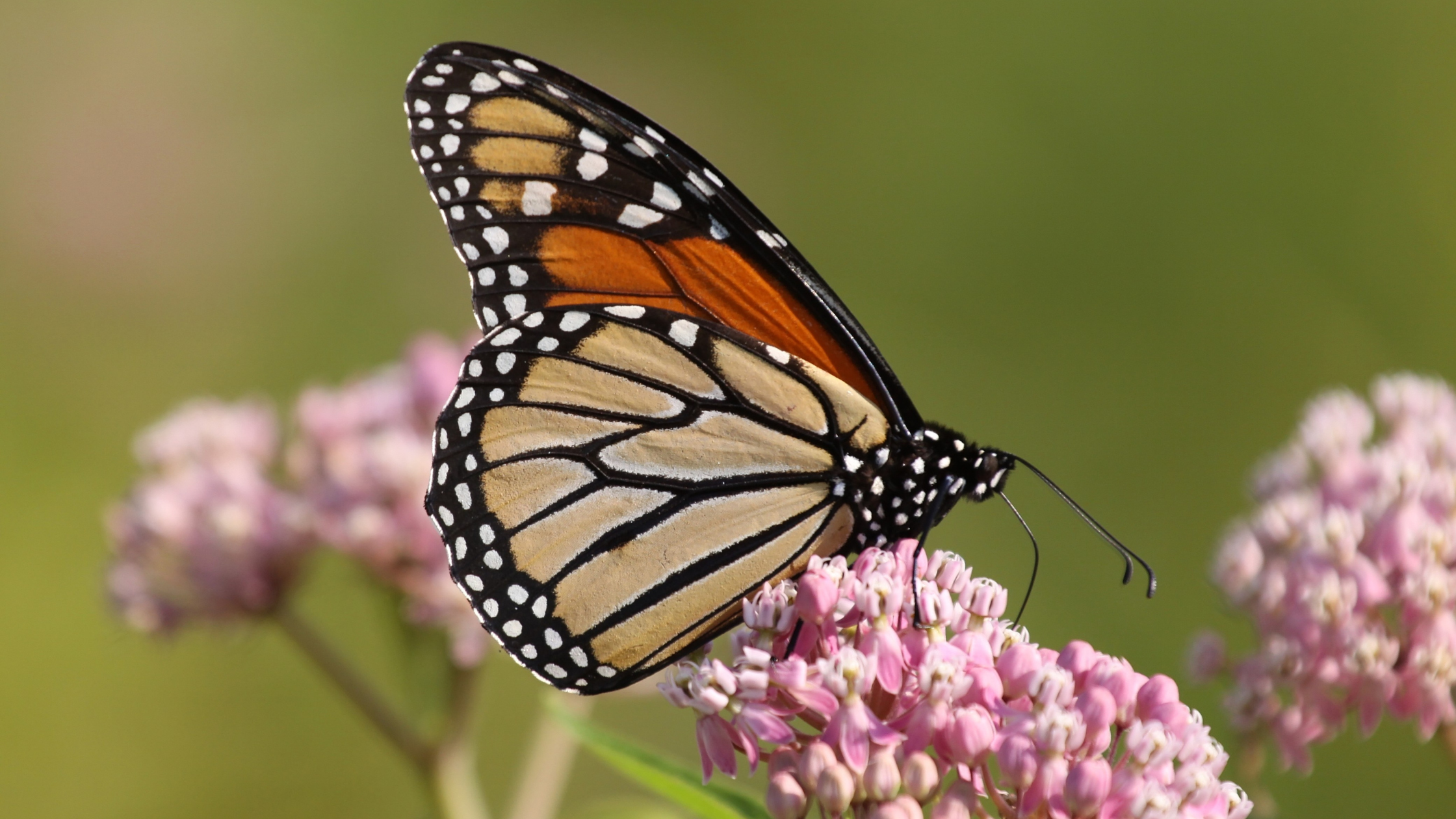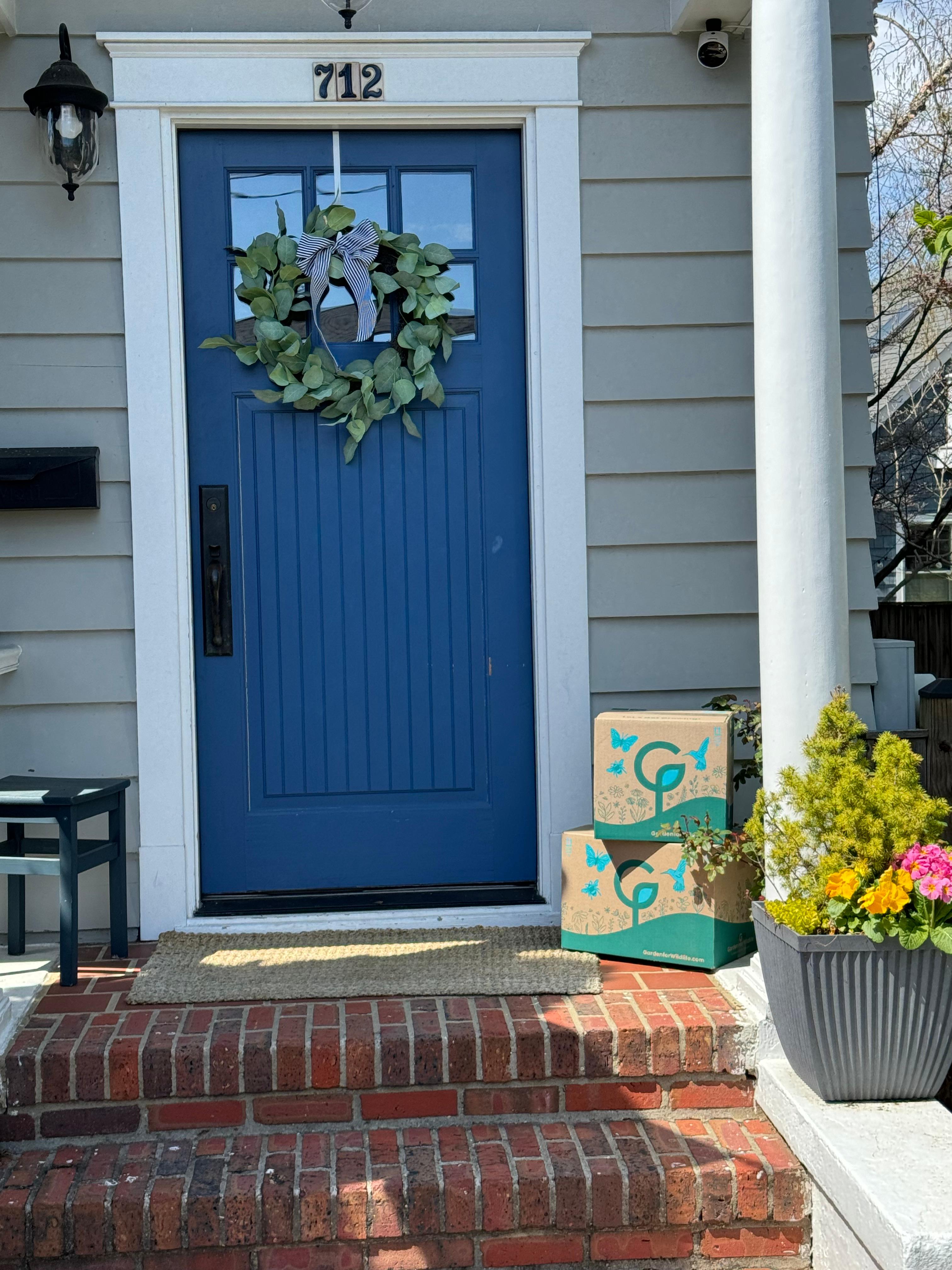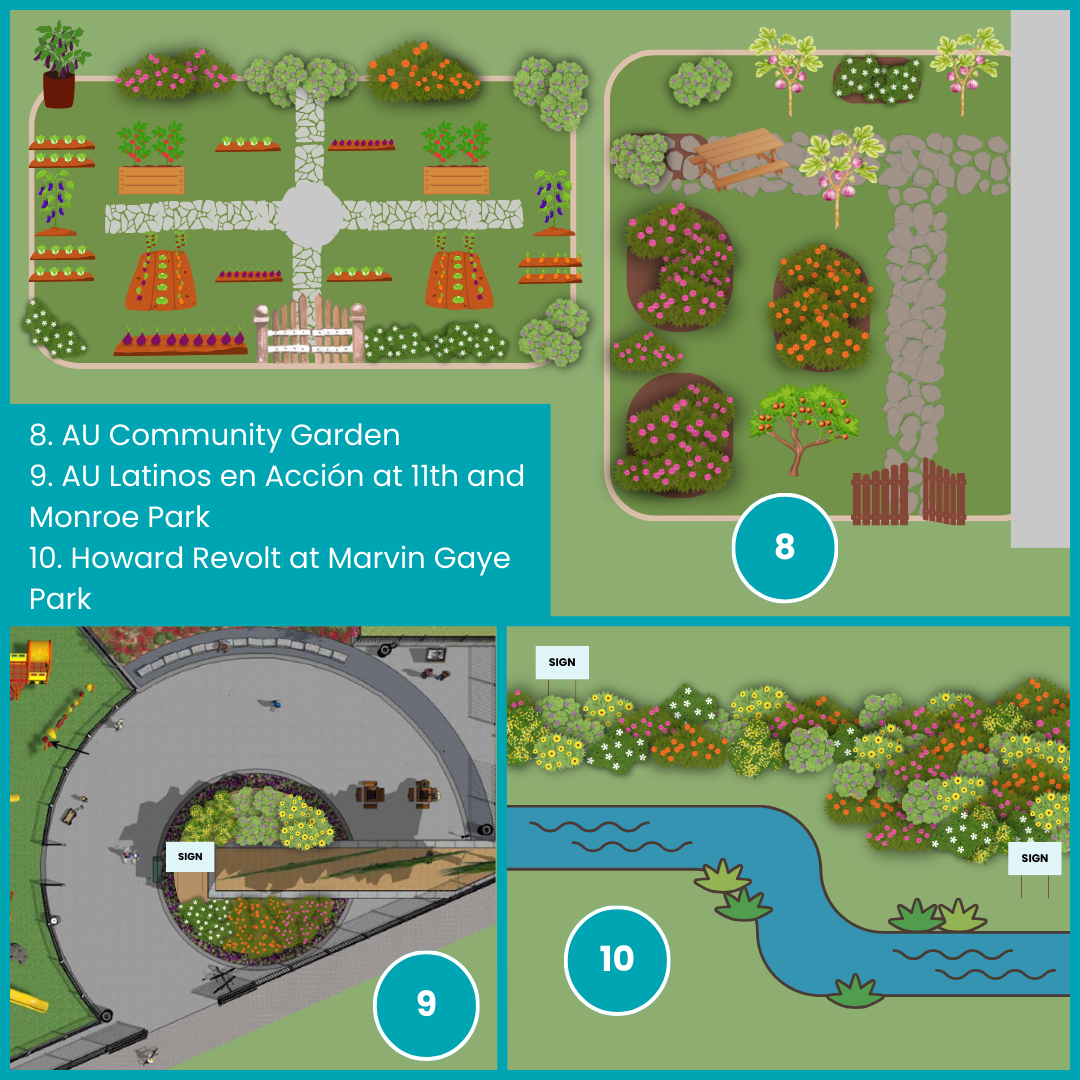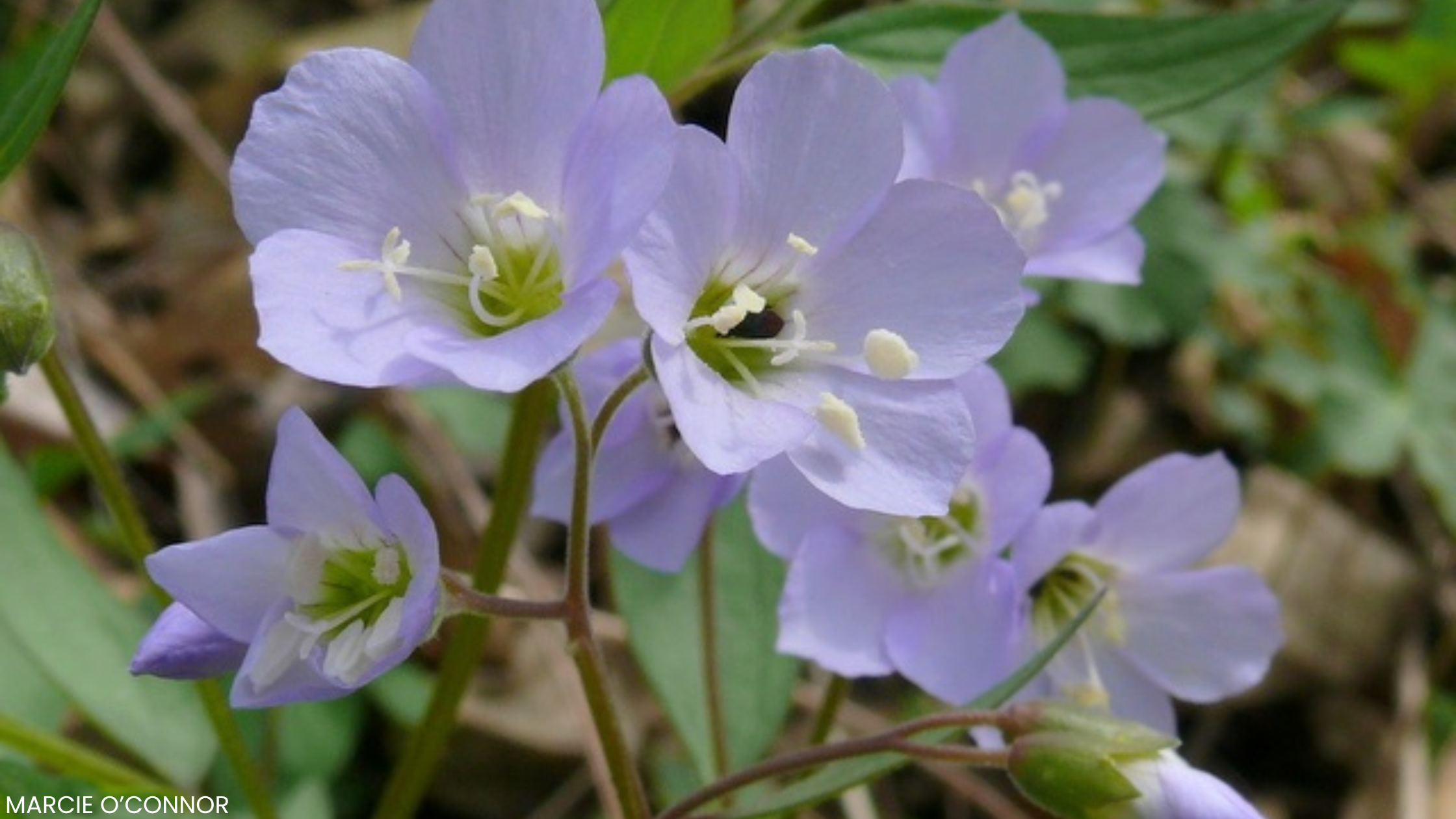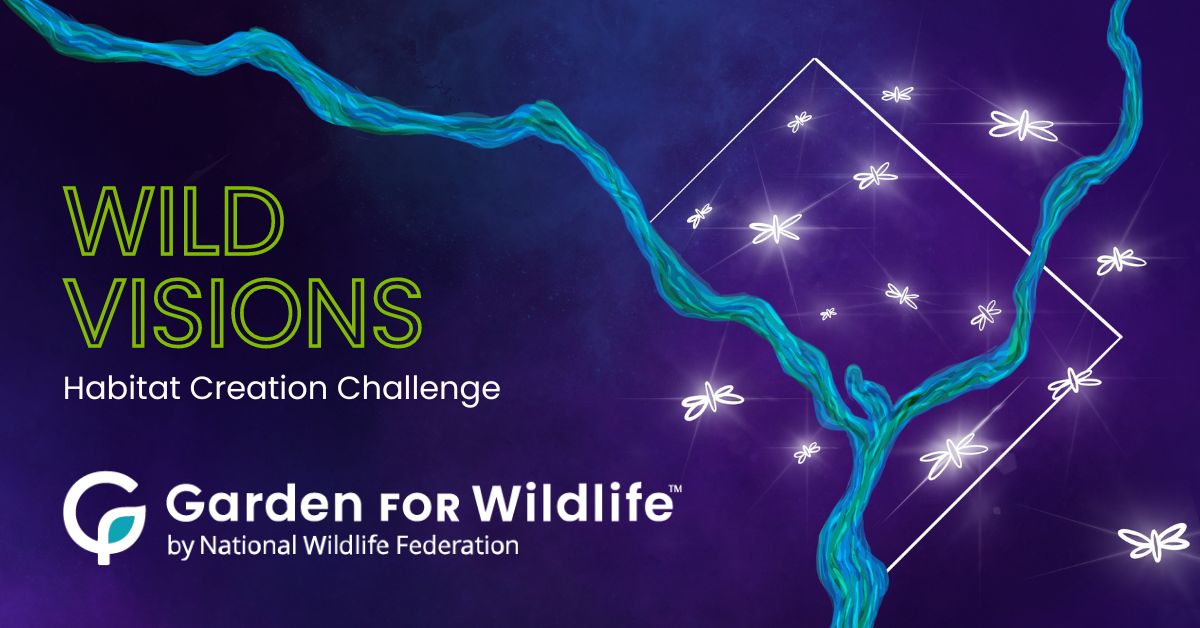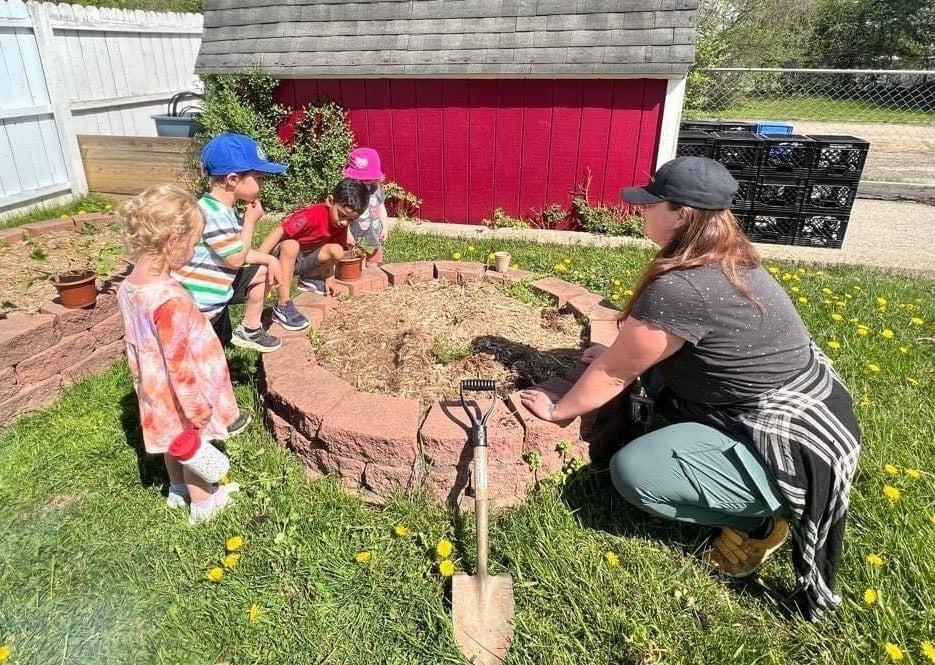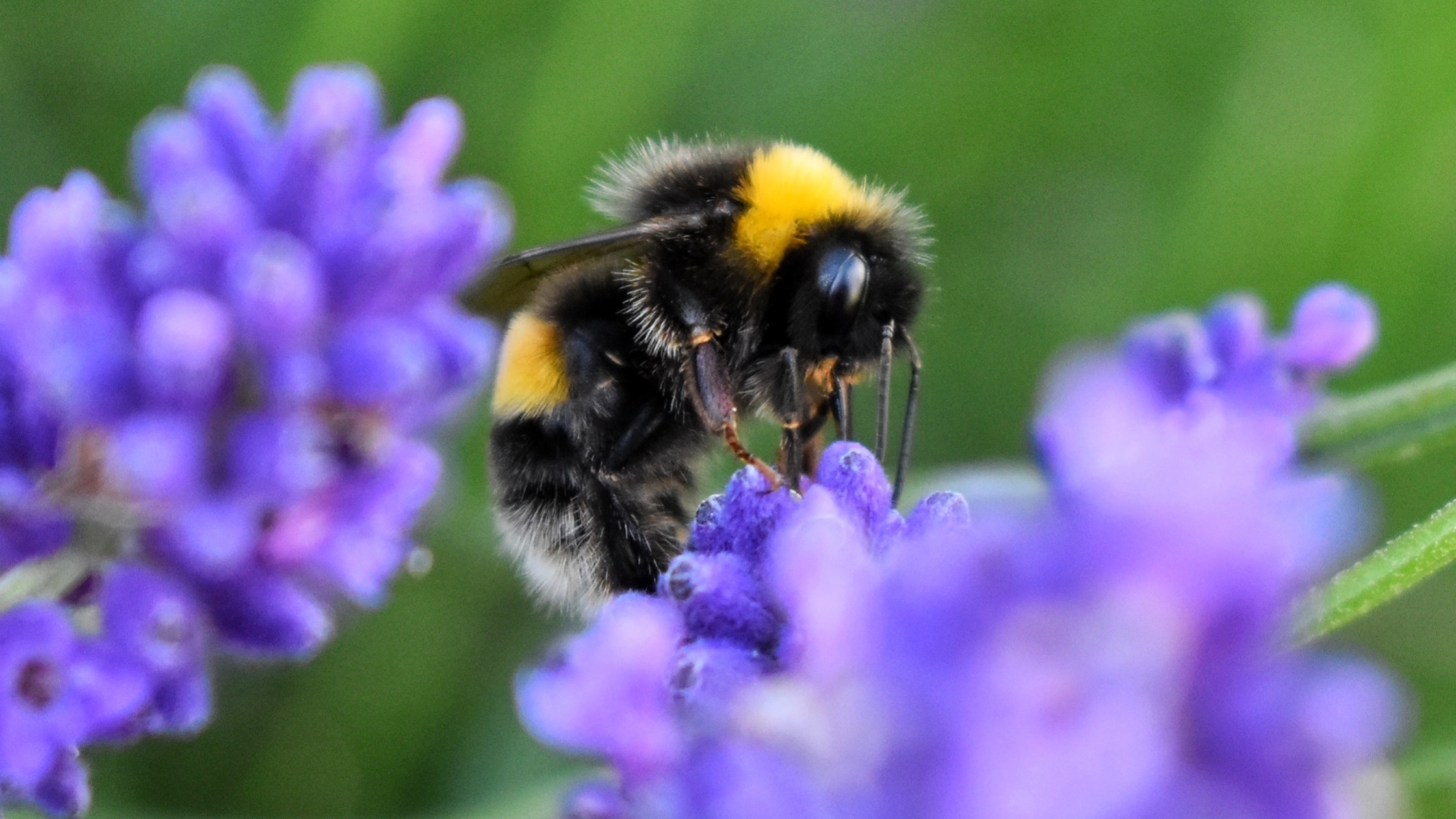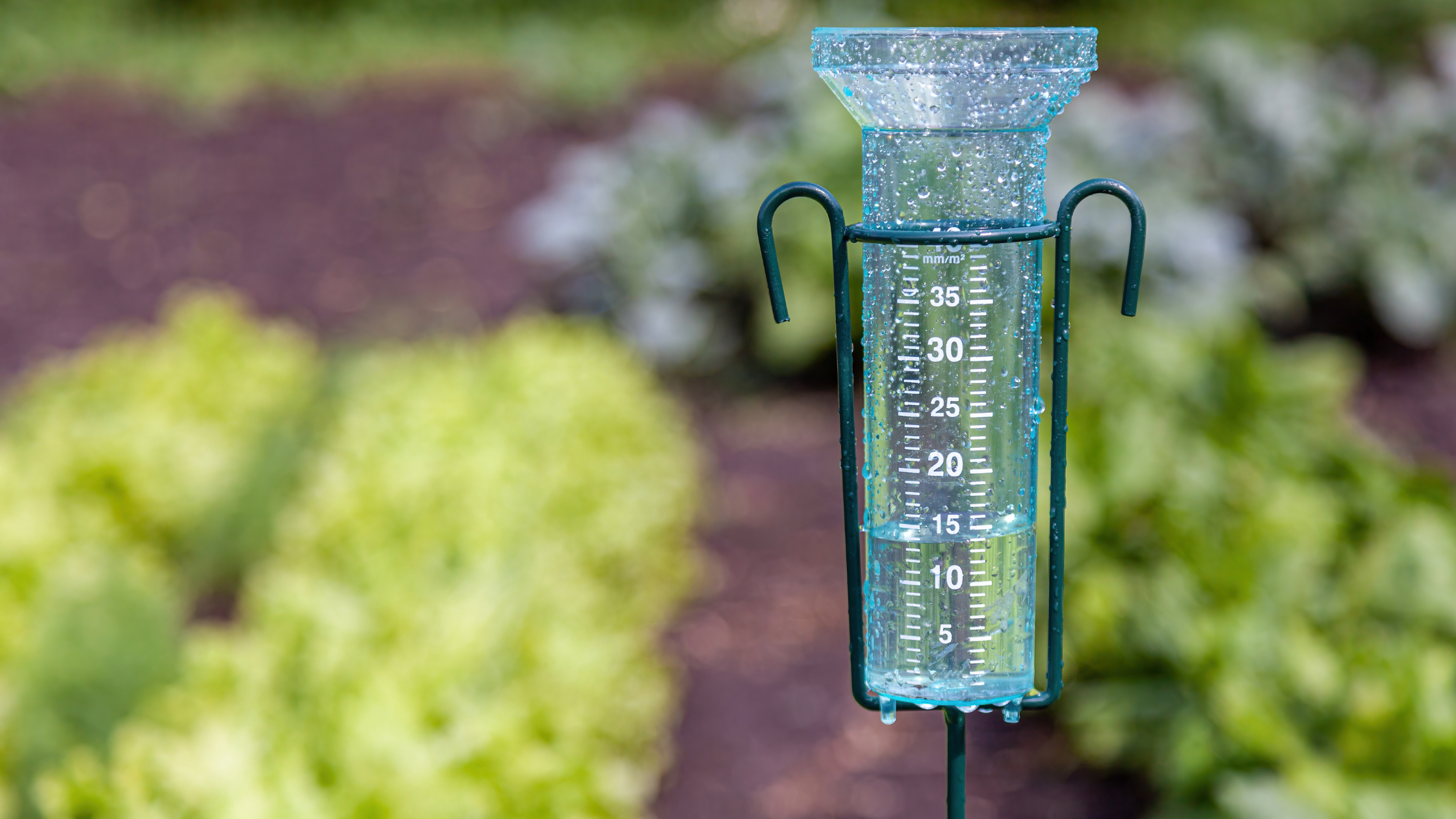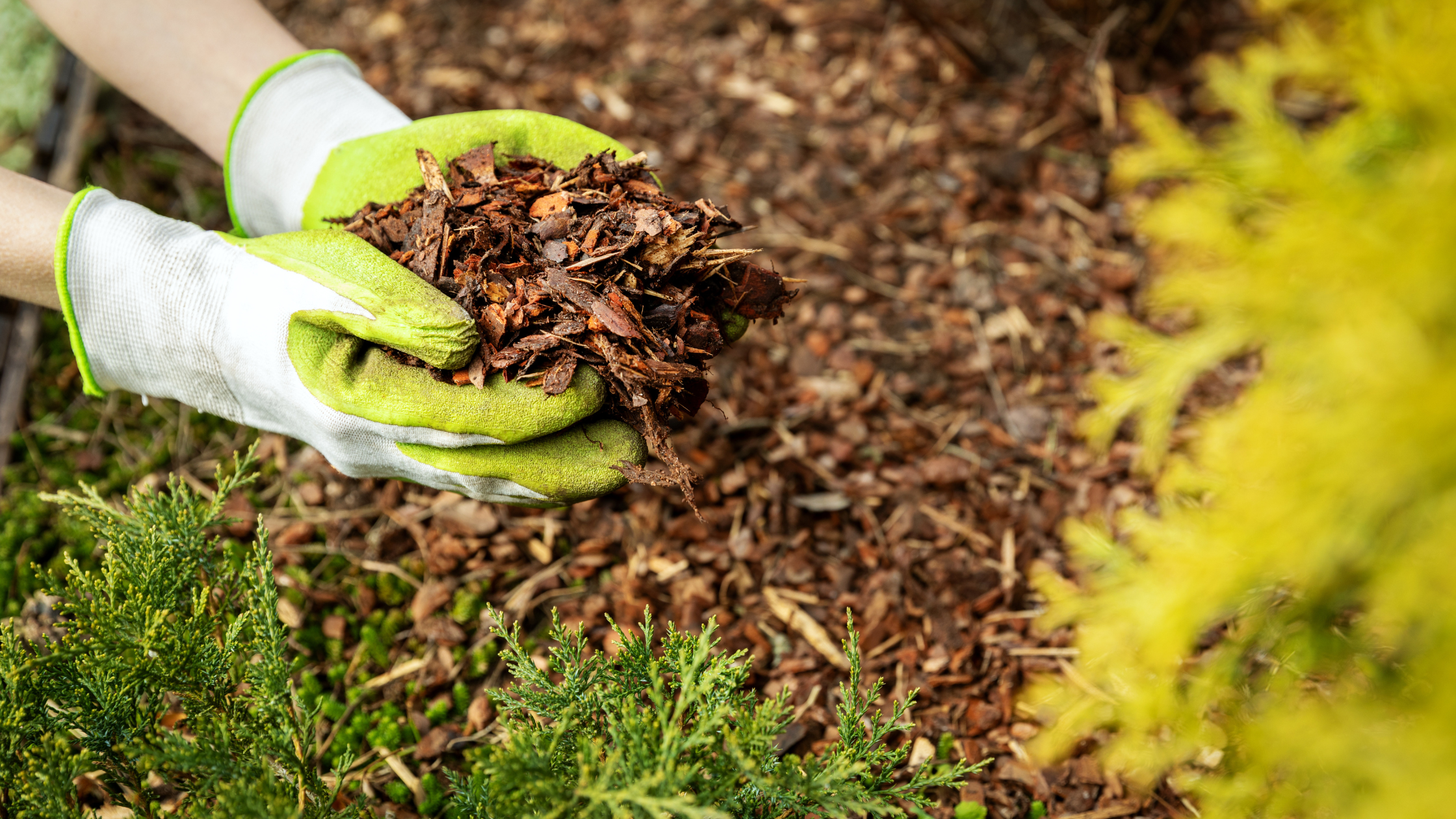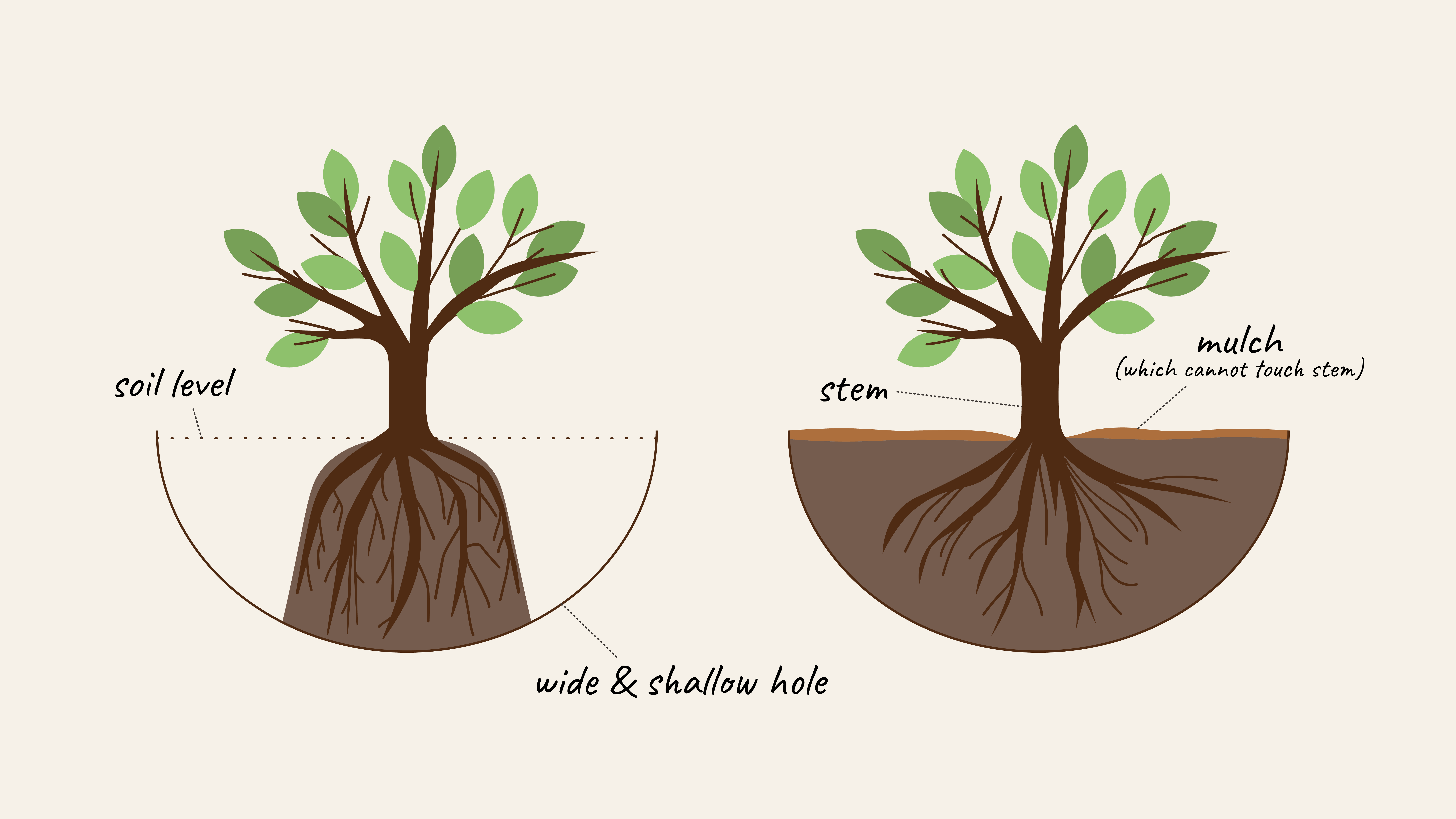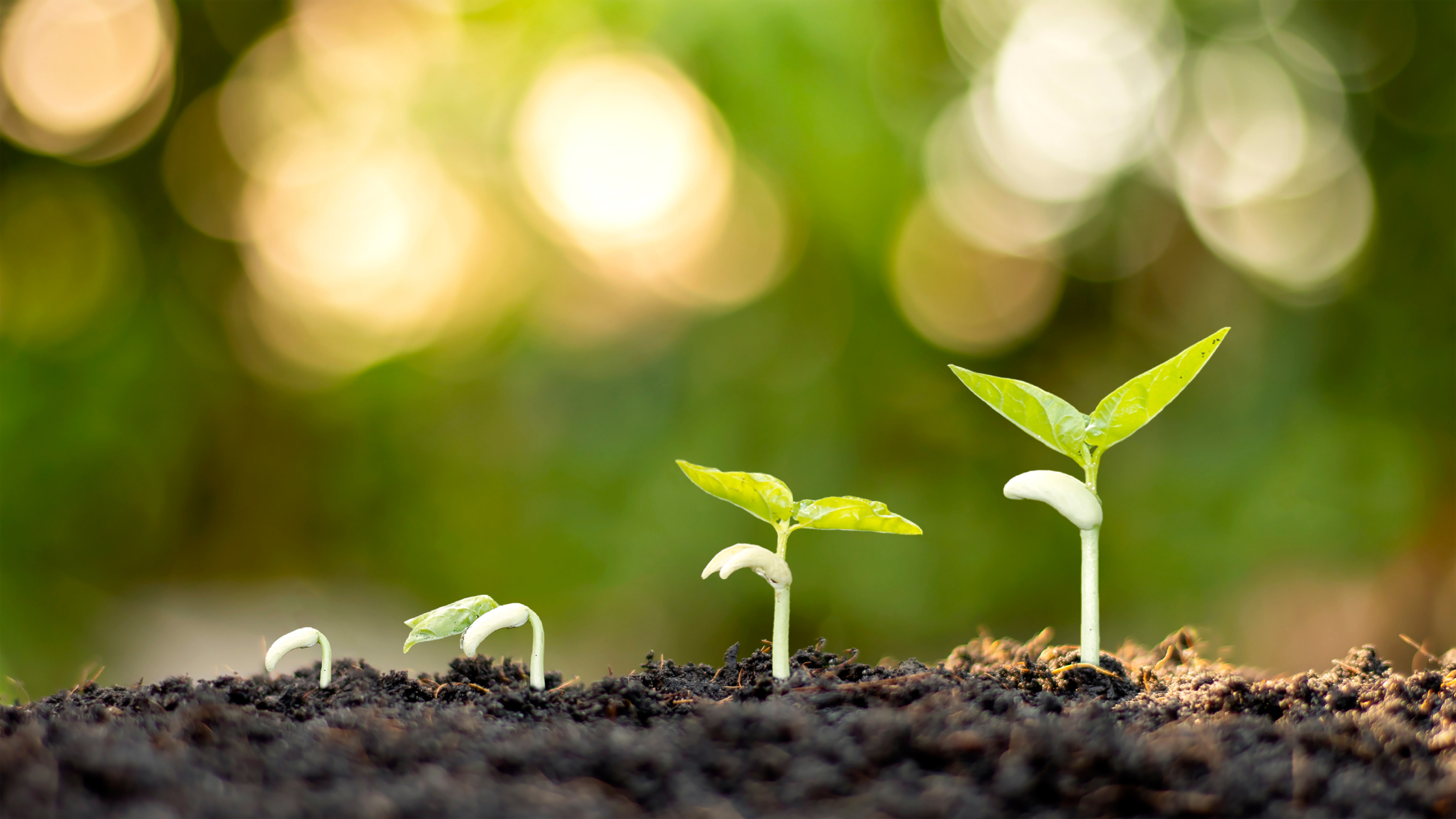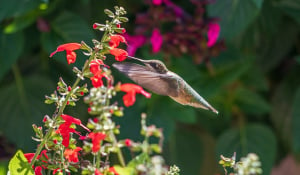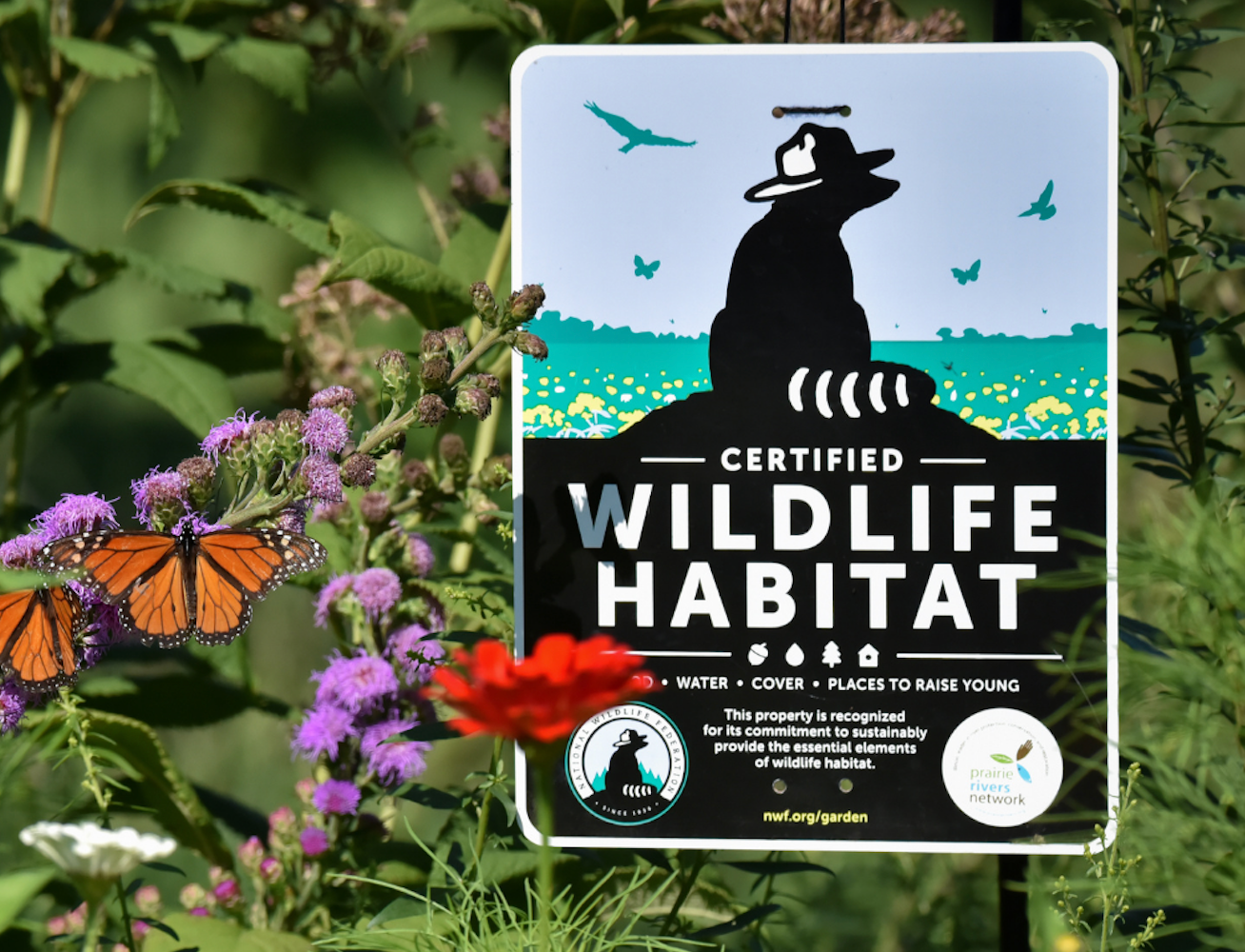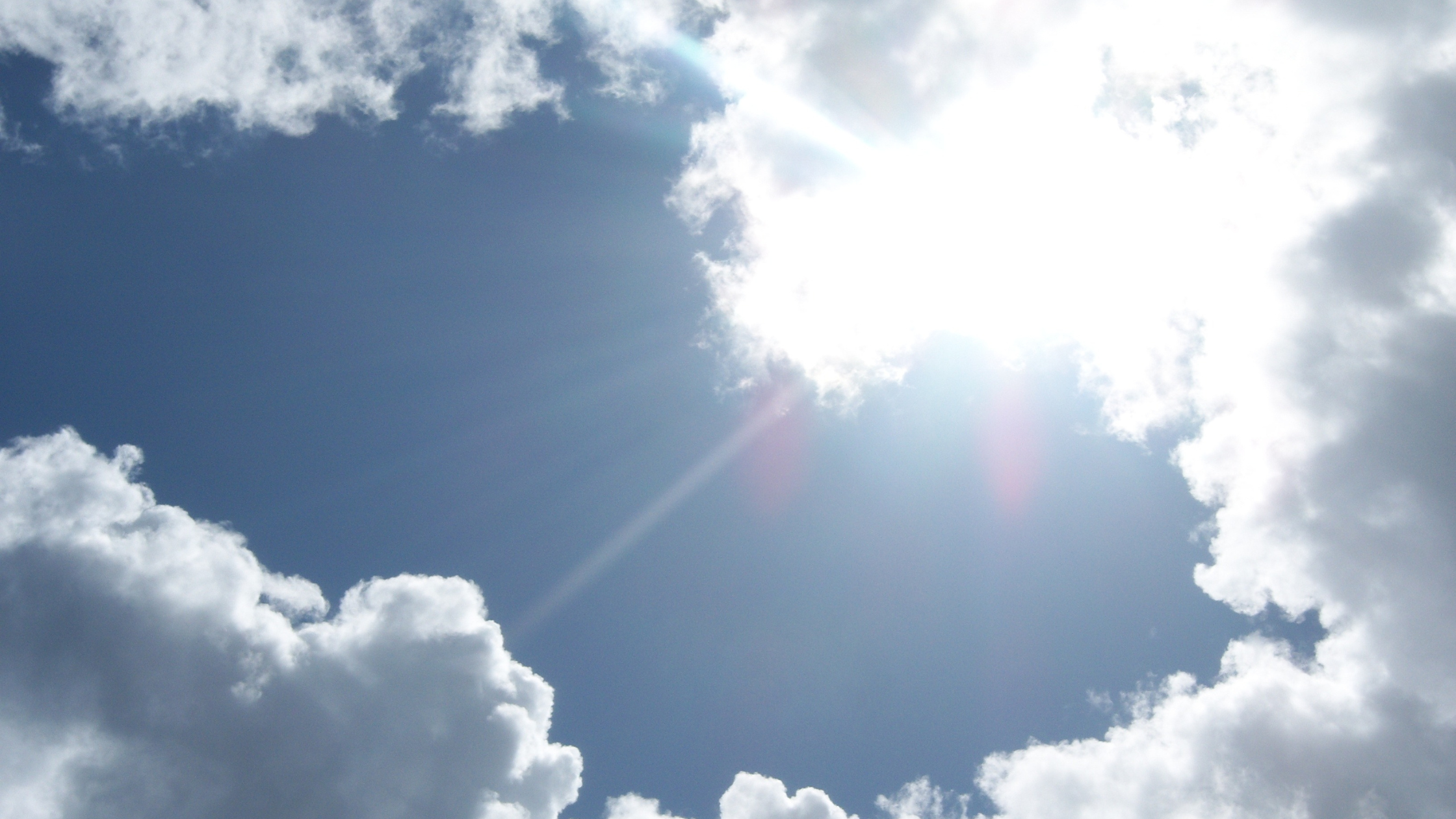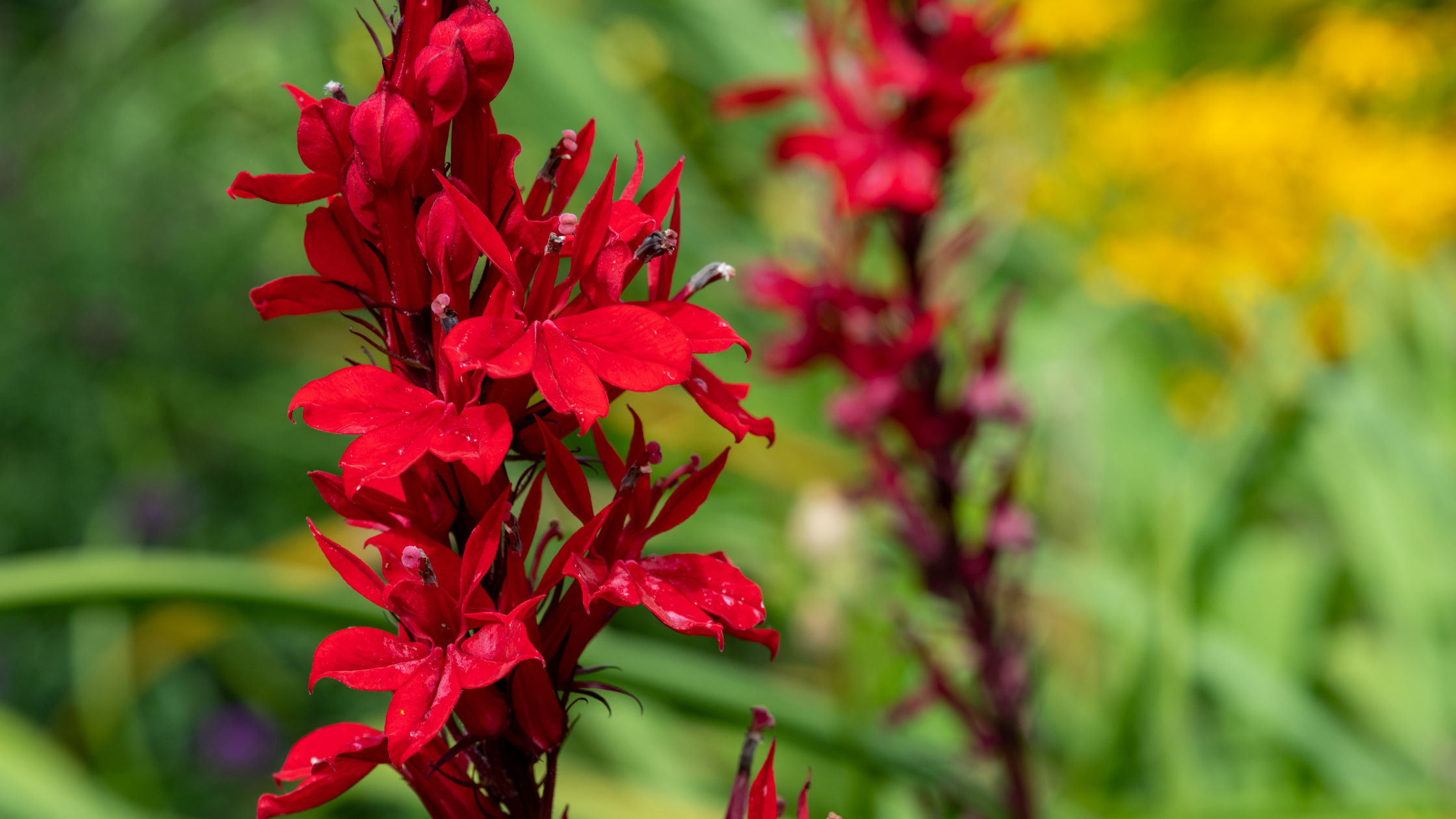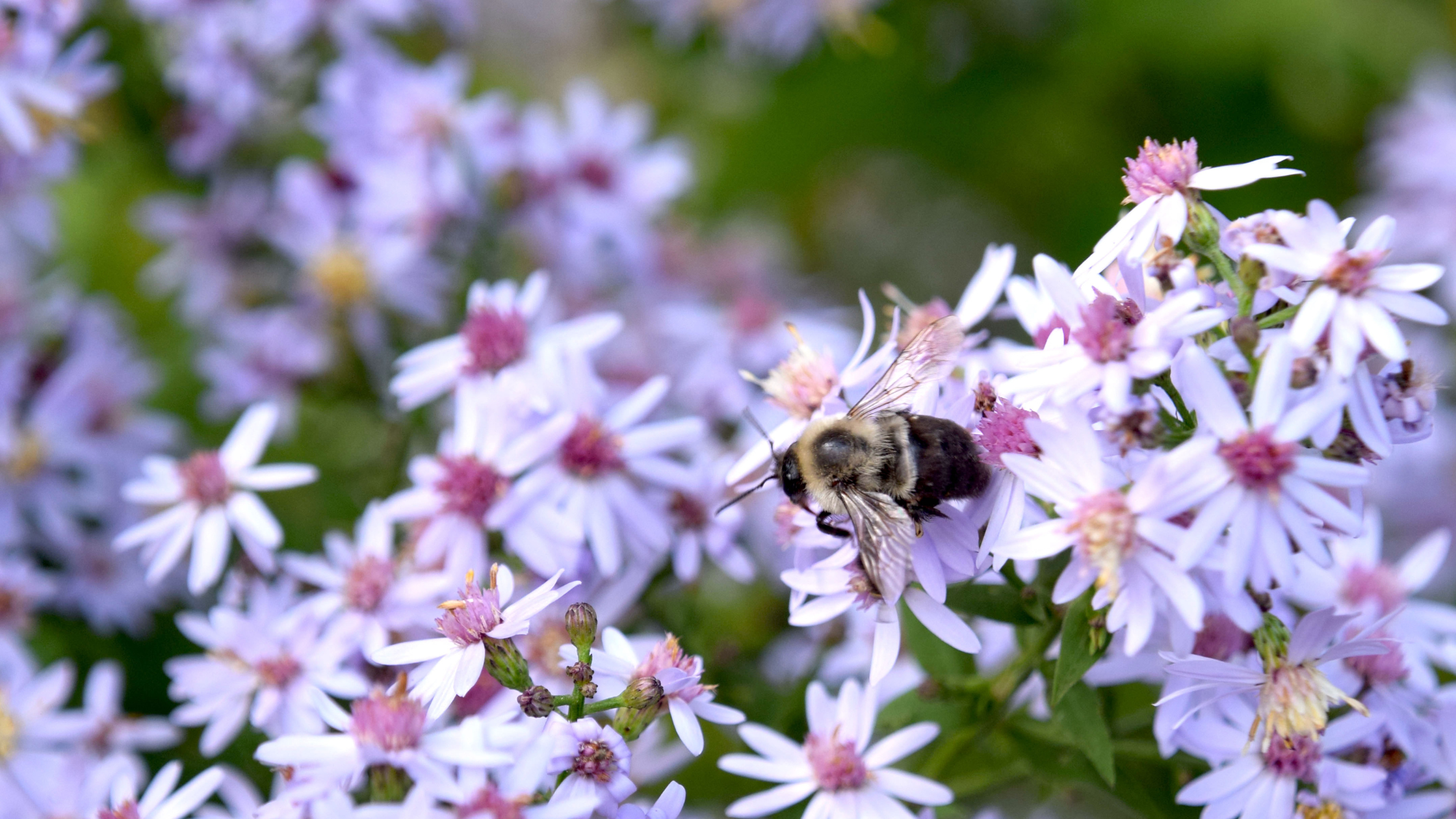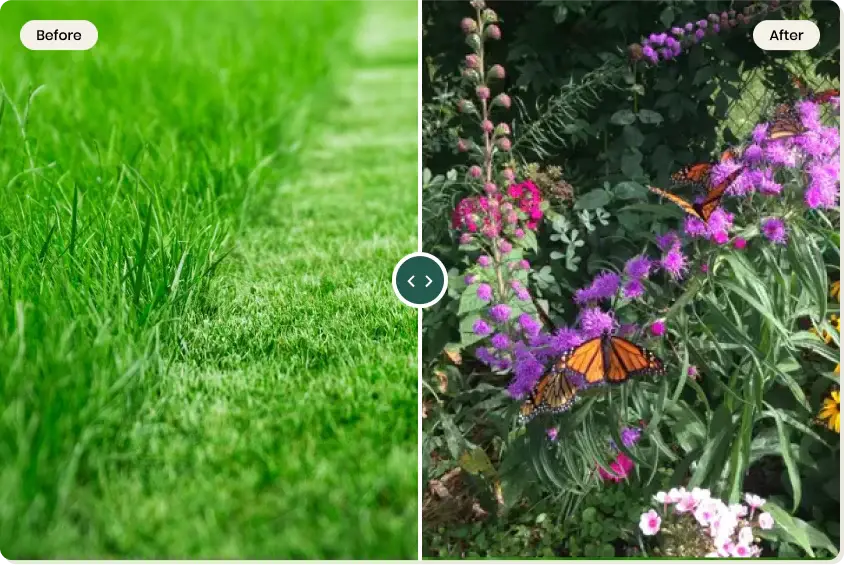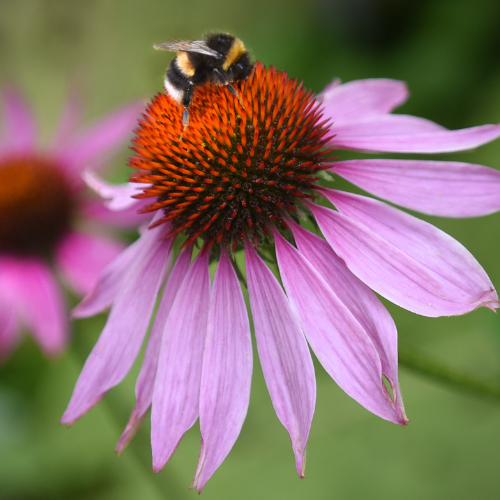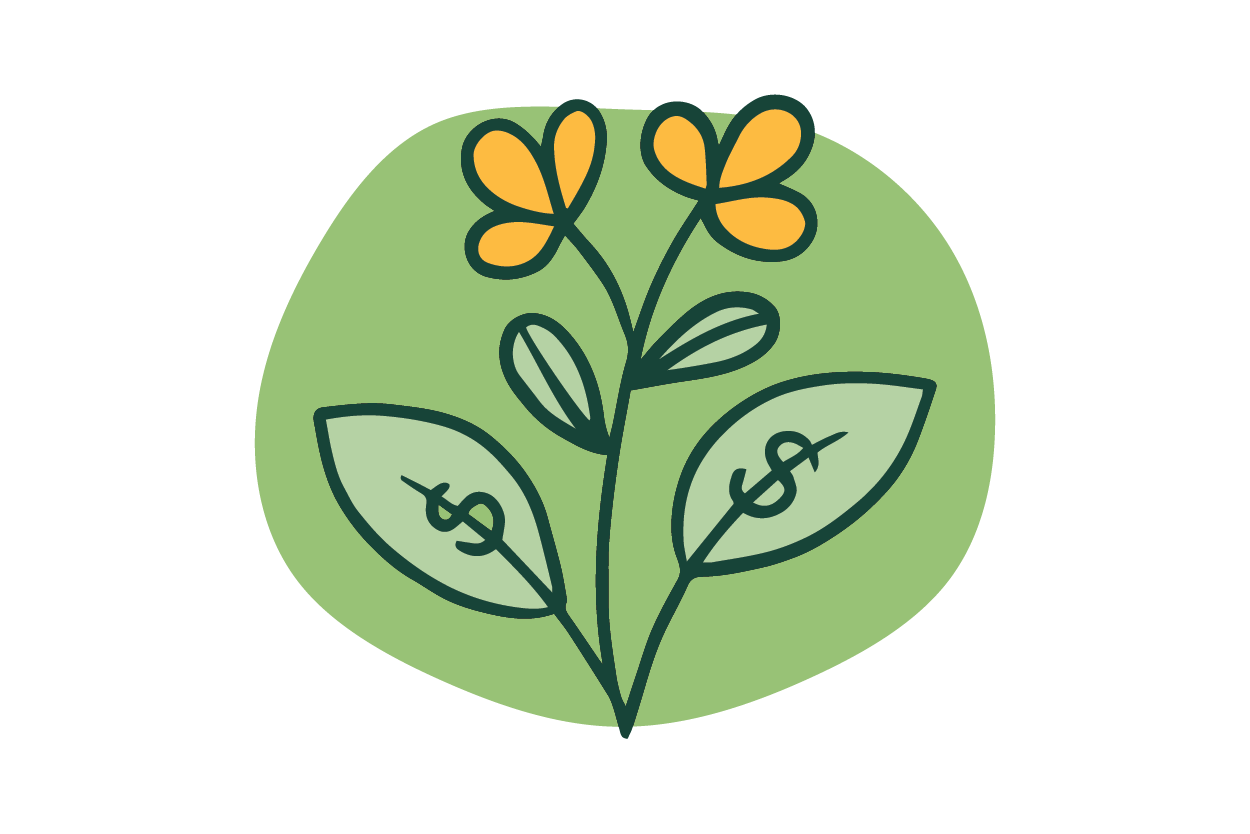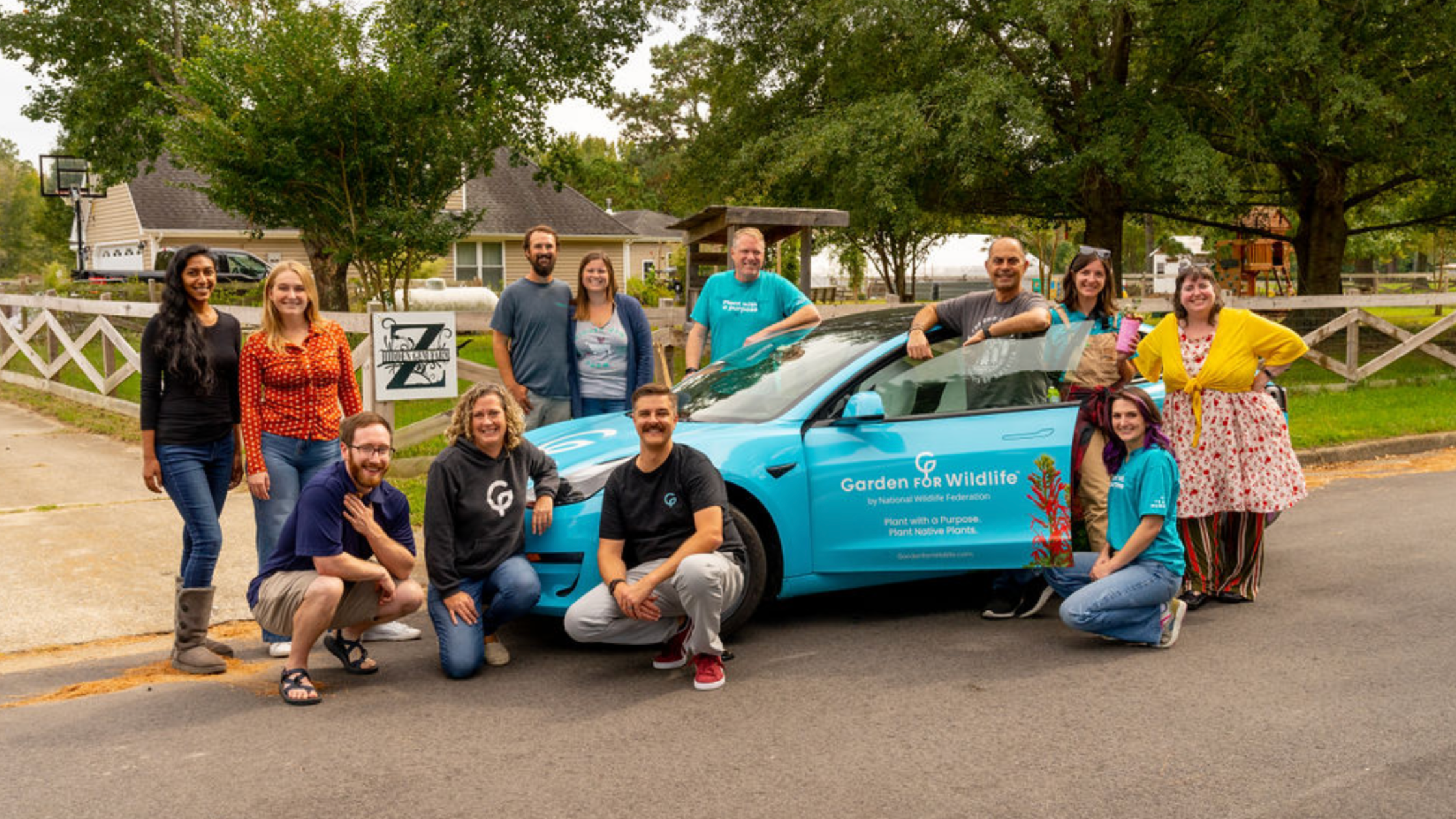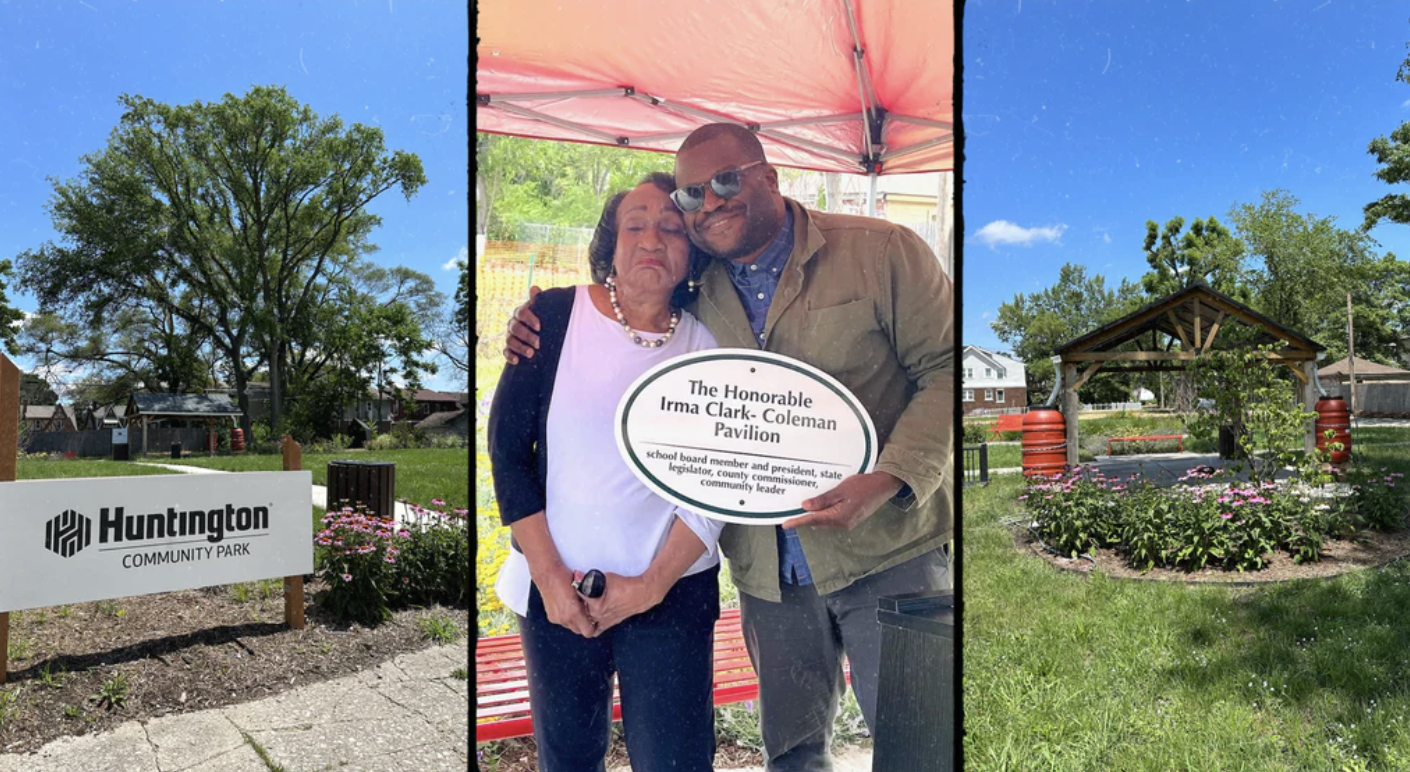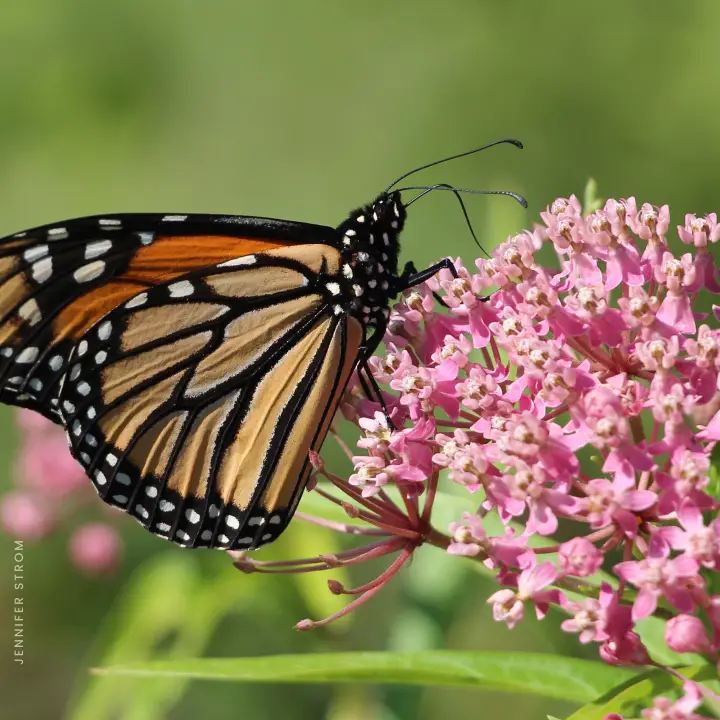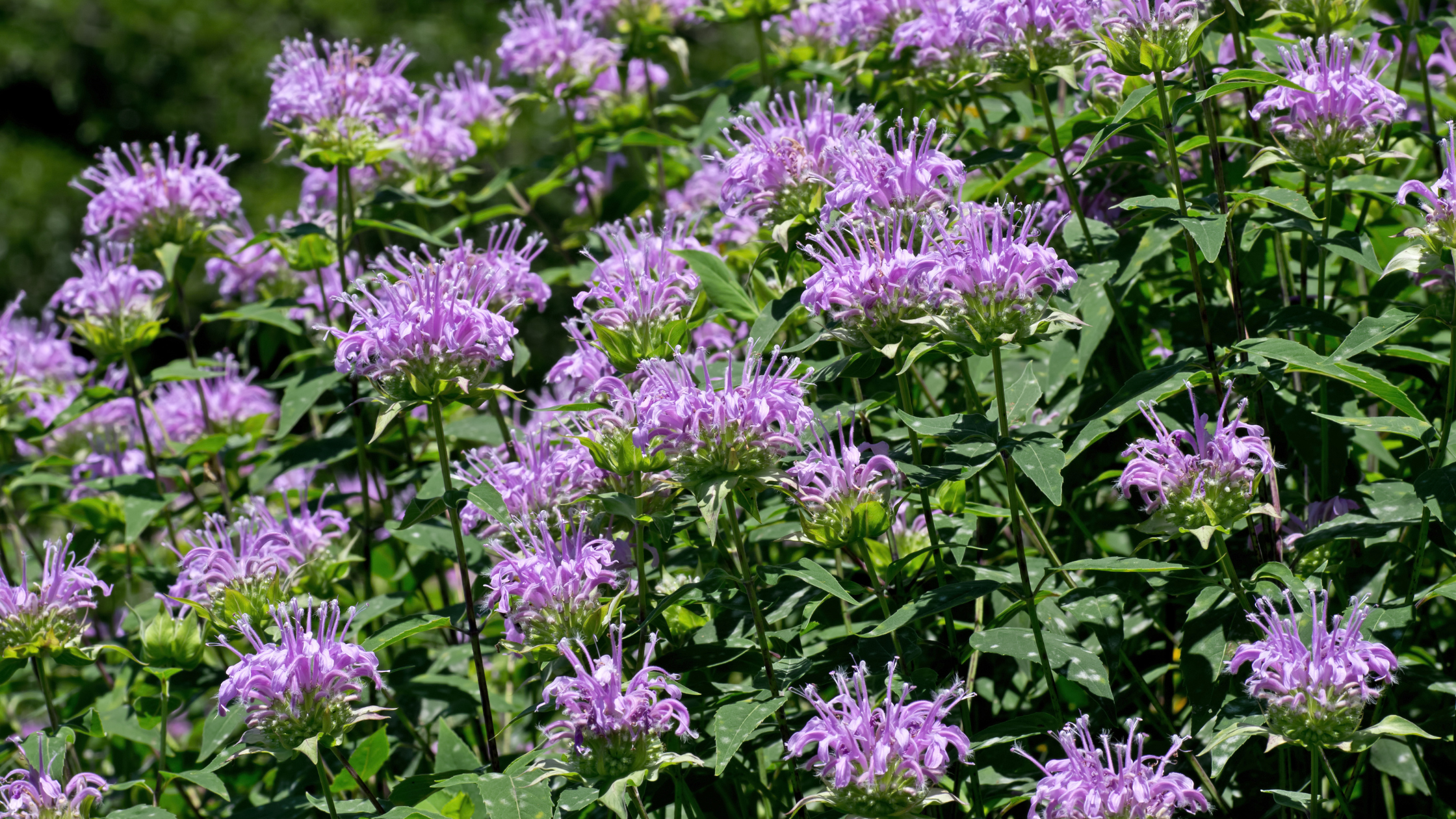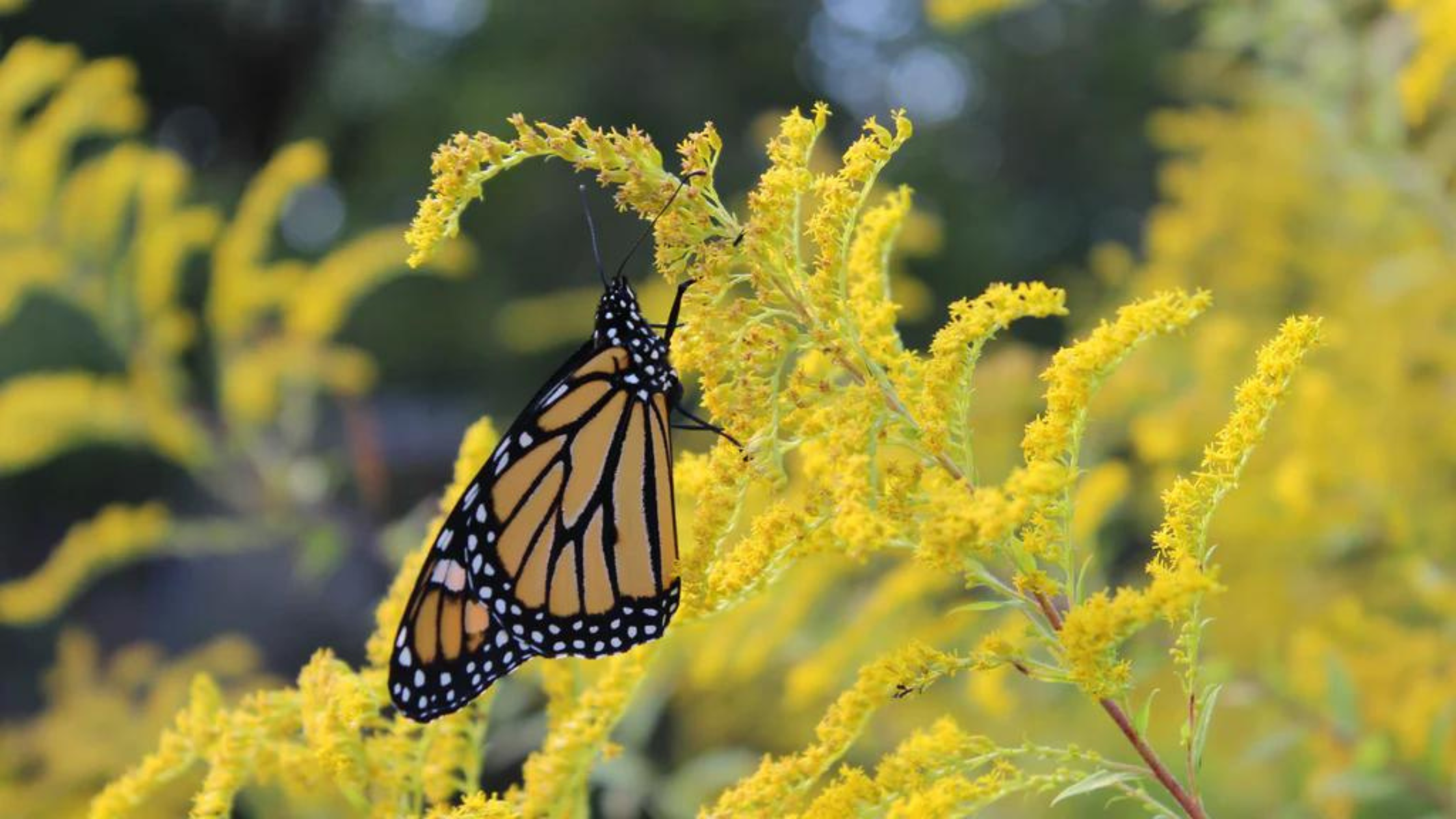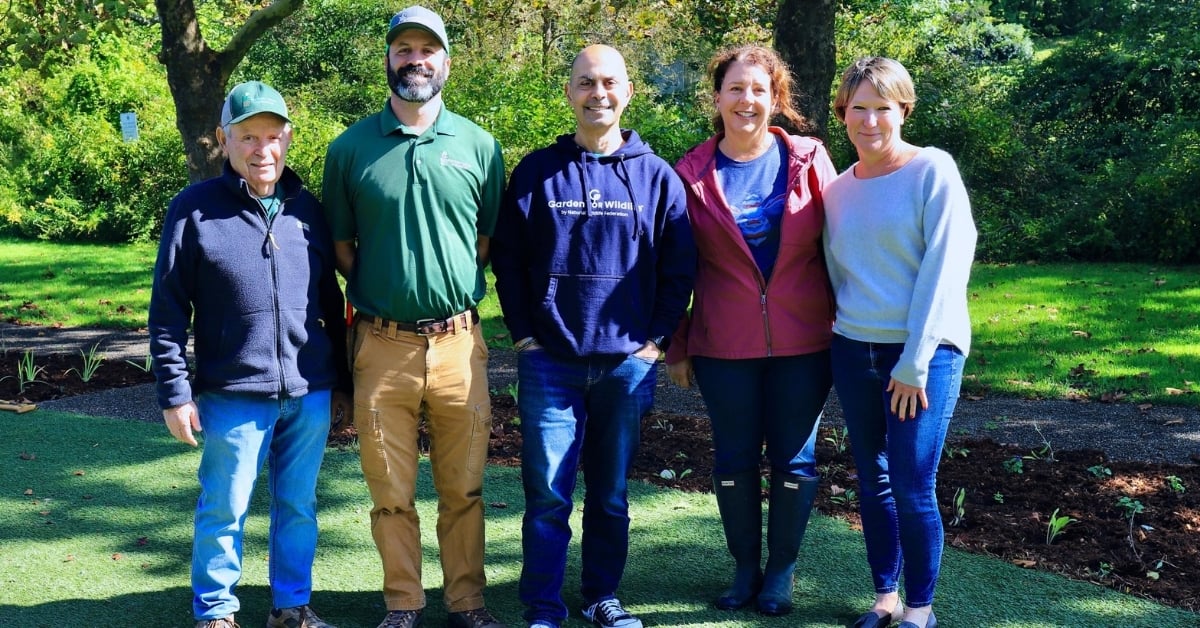Conserve water and support biodiversity by xeriscaping with native plants, perfect for creating lush, drought-tolerant gardens that thrive in any climate.
Learn
Tag: plant-donations
Popular Topics
- Native Plants (69)
- Gardening (20)
- Beginner Gardener (16)
- Planting Tips (14)
- Butterflies (9)
- Video (8)
- How To (7)
- Sustainable Gardening (7)
- Wildlife (7)
- Plant Donations (6)
- Plants & Products (5)
- Pollinators (5)
- Fundraising (4)
- News (4)
- Seasonal (4)
- Birds (3)
- Milkweed (3)
- Staff Spotlight (3)
- Customer Spotlight (2)
- Michigan (2)
- gardening for birds (2)
- Alabama (1)
- Community (1)
- Connecticut (1)
- Florida (1)
- Hummingbirds (1)
- Maryland (1)
- New Jersey (1)
- New York (1)
- Virginia (1)
Preparing native plants for spring involves careful transitions in the greenhouse, ensuring strong root systems and natural growth cycles for better garden success.
New Jersey's ban on Japanese Barberry is a call to upgrade your garden with native shrubs that enhance beauty, support wildlife, and improve public health.
Western Monarch butterflies are dwindling, with only 12,260 recorded this year. Learn how you can help preserve these vital pollinators.
Witness the monarch butterfly congregation and the power of collective action in preserving these magnificent creatures. Discover how you can make a difference this spring.
Discover the essential role native shrubs play in your garden for year-round interest, wildlife support, and versatile landscaping options. Learn tips and insights from expert David Mizejewski.
Engage students in nature appreciation with a native plant photo contest, fostering creativity and education on campus. Learn how to launch your own successful event.
Discover the winners of the Prairie Pics Photo Contest, celebrating Illinois's native plants and pollinators, while engaging college students in wildlife conservation.
Discover why fall is the perfect time to plant native species and learn key tips for supporting local wildlife from naturalist David Mizejewski.
Discover the essential role of shrubs in creating a resilient, biodiverse garden that supports wildlife year-round and unlock your garden's full potential.
Discover our new Southern California Native Plant Collection, designed to create a resilient, water-wise garden that supports local wildlife and thrives in your unique climate. Pre-order now for fall planting.
Let’s explore why pollinators are essential, what Pollinator Month and Pollinator Week are all about, and how you can create a pollinator-friendly garden.
Discover why native grasses are the key to a sustainable, wildlife-friendly garden, offering beauty, habitat, and ecological benefits without the maintenance of traditional lawns.
Transform your yard into a wildlife haven by layering native trees, shrubs, and plants. Discover the benefits of creating a diverse, eco-friendly landscape.
Happy National Native Plant Month! April is the perfect month to start planning your native plant wildlife garden.
Attract pollinators to your vegetable garden for better yields and natural pest control while supporting local wildlife and ecosystems.
Discover 25 native plants that attract birds and butterflies, enhancing your garden's beauty and supporting local wildlife in 2025.
Learn how one wildlife gardener supports monarch butterflies by planting native milkweed, turning her backyard into a thriving habitat to aid in conservation efforts.
Discover the beauty and benefits of late-emerging native perennials that extend bloom seasons and support pollinators in your garden. It's worth the wait!
Garden for Wildlife expands to the West Coast, providing native plants to all 48 contiguous states, enhancing biodiversity and wildlife habitats nationwide.
Discover 5 invasive plants that are popular in North America and the native alternatives that you should plant instead
Learn the difference between straight species and cultivars, and discover the benefits of planting straight native species in your garden.
Discover the benefits of planting native plants through Larinda Frushour's inspiring journey, creating pollinator gardens to support local wildlife and enjoy a low-maintenance, vibrant garden.
Create beautiful pollinator pots using native plants to attract butterflies, bees, and hummingbirds to your porch. Learn how in our step-by-step guide.
Help save the monarch butterfly by planting milkweed, creating pollinator gardens, and spreading awareness. Learn how small actions can make a big impact.
Learn how to distinguish between dead and dormant native perennial plants, and discover essential tips for caring for them during their dormancy period.
Discover why leaving fallen leaves benefits wildlife, the environment, and your garden. Learn how to create a sustainable fall landscape.
Create a thriving wildlife habitat on your patio or balcony with native plants, attracting birds, butterflies, and bees even in small spaces.
Create a butterfly garden with native plants to support local wildlife, offering essential resources for butterflies to thrive. Follow these steps for a flourishing, pesticide-free habitat.
Uncover the truth behind common misconceptions about native plants and learn how they can enhance your garden's beauty and support local ecosystems.
Discover the top five native plants planted by Florida gardeners in 2024, boosting biodiversity and supporting local wildlife.
Discover five native milkweeds to plant in your butterfly garden for stunning blooms that support monarch butterflies throughout their life cycle.
Discover why fall is the best time to plant native wildflowers, shrubs, trees, and grasses. Get expert tips for a flourishing fall garden!
Learn how to naturally control aphids on your milkweed plants by inviting ladybugs to your garden. Embrace sustainable gardening practices for a thriving wildlife habitat.
Studies show that neonicotinoids harm native butterfly and bee populations. Learn how to avoid these harmful chemicals and create a neonic-free garden.
Discover the benefits of planting native species in Virginia for wildlife and ecosystem conservation. Review commonly asked questions.
Discover five native asters to add to your garden for stunning fall blooms that support local wildlife while creating a vibrant, wildlife-friendly garden.
Garden for Wildlife sponsors a new Bird-Friendly Garden Plants poster with Cornell Lab of Ornithology to promote native plants for supporting local birds.
Discover how Callanan Industries is leading the way in sustainability with its pollinator garden. Learn about Rosie's Garden, employee engagement initiatives, and the importance of planting native.
Learn why you should resist deadheading native flowers to support wildlife. Discover the ecological benefits and tips for incorporating this practice in your garden.
Discover the beauty of calico aster. Learn about its symbolism, ecological benefits, and growing tips for a wildlife-friendly garden.
Native honeysuckles are a versatile and invaluable addition to any garden, offering beauty, biodiversity, and ecological benefits throughout the year.
Learn how one Georgia gardener transformed his yard with native plants, creating a vibrant habitat for wildlife.
Native plants thrive in summer, showcasing blooms & robust growth. They support local ecosystems, require less water & maintenance, enhance biodiversity.
Composting is a cornerstone of sustainable gardening, offering endless benefits for the health of our soil and planet.
A detailed look at top plant identification apps, each uniquely suited to help you cultivate your garden knowledge. Compare apps to find your favorite!
Goldenrod deserves recognition as a keystone plant for its invaluable contributions to biodiversity, wildlife habitat, and garden resilience.
The sustainable gardening approach encompasses various practices and techniques aimed at conserving resources, reducing waste, and fostering biodiversity.
As stewards of the environment, there are several ways we can help support spring hummingbird migrations.
Doug Tallamy's Homegrown National Park initiative embodies the transformative potential of community-driven conservation.
This year, skip the traditional bouquet of flowers and opt for something unique and sustainable: native plants!
Celebrate National Garden for Wildlife Month and unleash your inner wildlife hero this May! Learn how to create a thriving habitat for local wildlife.
Explore how to shop for native plants, decipher plant tags, and ask the right questions to ensure you're making informed choices that benefit both your garden and the environment.
Explore the benefits of gardening with Alabama native plants, supporting local wildlife, and conserving the state's biodiversity.
Discover how to start a native plant garden to support local wildlife. Find tips on choosing plants and shopping worry-free with our quiz and resources.
If Swamp Milkweed (Asclepias incarnata) is in your native range, it offers several benefits that make it an excellent choice for home gardens for wildlife.
Explore the significance of frost dates, how they affect gardening, and why shipping timeframes are essential for ensuring our plants' health and vitality.
Wild Visions 2024: Garden for Wildlife donates native plants to university student groups across the DMV & the students plant gardens across town.
By growing native plants, conserving water wisely, and fostering habitat for wildlife, home gardeners can play a crucial role in promoting sustainability.
Discover how Third Act partnered with Garden for Wildlife to support native plant gardening, connecting communities and wildlife. Join the movement today.
Shubber's decades of gardening allow him to share first-hand experience of how to build habitat and boost your backyard biodiversity.
Planting native flowers is the single most impactful way to support these early pollinators.
Garden for Wildlife challenges students to plant native gardens in DC. Garden for Wildlife provides students with plants and project development support.
Through our 1 for 1 plant donation program, we have planted over 700 native plants with Green Garden Child Development Centers at 7 campuses in Michigan.
Garden for Wildlife announces the launch of a new line of native plants specifically designed for health-conscious wildlife.
Moisture-rich environments present a unique opportunity to cultivate an array of native plants that are specially adapted to thrive in wet conditions.
Discover how to create a beautiful native garden while complying with HOA regulations in suburban areas.
Whether you've got acres of land or containers on your balcony or patio, you can make a difference by planting with native plants.
Learn how to launch a successful native plant fundraiser in just eight weeks! This guide covers everything from planning and promotion to engaging supporters.
Explore the ultimate guide to wildlife holidays in 2024, featuring a curated list of celebrations honoring nature and wildlife throughout the year.
Our guide equips you with the essentials to establish a thriving pollinator garden, highlighting its critical role in safeguarding our ecosystem.
Generally, sunny areas are characterized by receiving at least 6 to 8 hours of sunlight daily. Find out which native plants are best suited for full sun.
If your challenge is space, sloping land, or a super shady spot, finding truly native plants is crucial to meet the demands of the environment.
By incorporating powerhouse keystone plants, you're not just adding beauty, you're actively contributing to a thriving ecosystem in your own backyard.
An interview with poet Tess Taylor about Leaning Towards Light, an anthology of garden poetry. Gardens and poems help us imagine and create a better world.
Turf grass is so last year! Let's explore why native plants might be a better choice for YOU, your yard, wildlife, and our planet.
From our dedicated team members to our loyal customers and community partners, women are actively involved in every aspect of our business.
Native plants aren't just pretty additions to your garden; they're the backbone of a healthy ecosystem, support wildlife, and combat climate change.
Watch our 13 minute video session on Garden for Wildlife fundraising with native plants hosted by Rebecca Ali.
We’re taking a moment to reflect on 2023 in this video: our third year of empowering our community with native plants from our independent, regional growers.
For every plant sold, we reserve one plant to be donated to a community garden or public space, doubling our collective impact on wildlife and the planet.
Discover the joy of wildlife gardening! This guide outlines 10 steps to create a flourishing native plant garden that benefits both you and local wildlife.
Learn how a wildlife garden with native plants benefits the environment by supporting biodiversity, promoting healthy soil, and combating climate change.
Discover an effortless and sustainable way to raise funds for your nonprofit organization with Garden for Wildlife Fundraising with native plants.
The 6th Branch, Broadway East Community Association and Garden for Wildlife came together to establish a community garden in East Baltimore, Maryland.
In this comprehensive guide, we'll explore the world of wildlife gardening and how native plants can help you get started on this rewarding journey.
Discover the beauty of the Kindness Gardens in Newtown, Connecticut. Learn how this Garden for Wildlife collaboration is promoting more than biodiversity.
